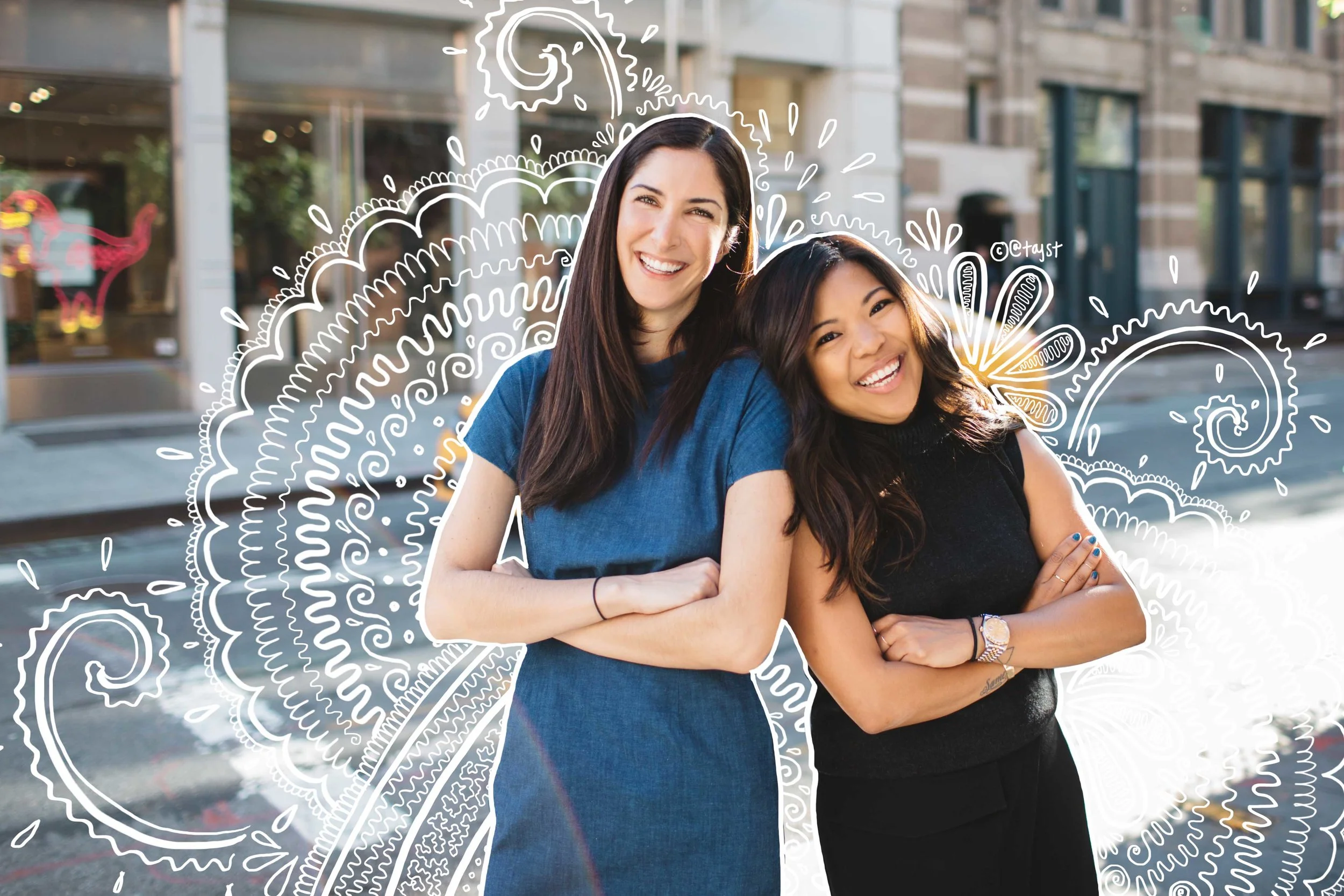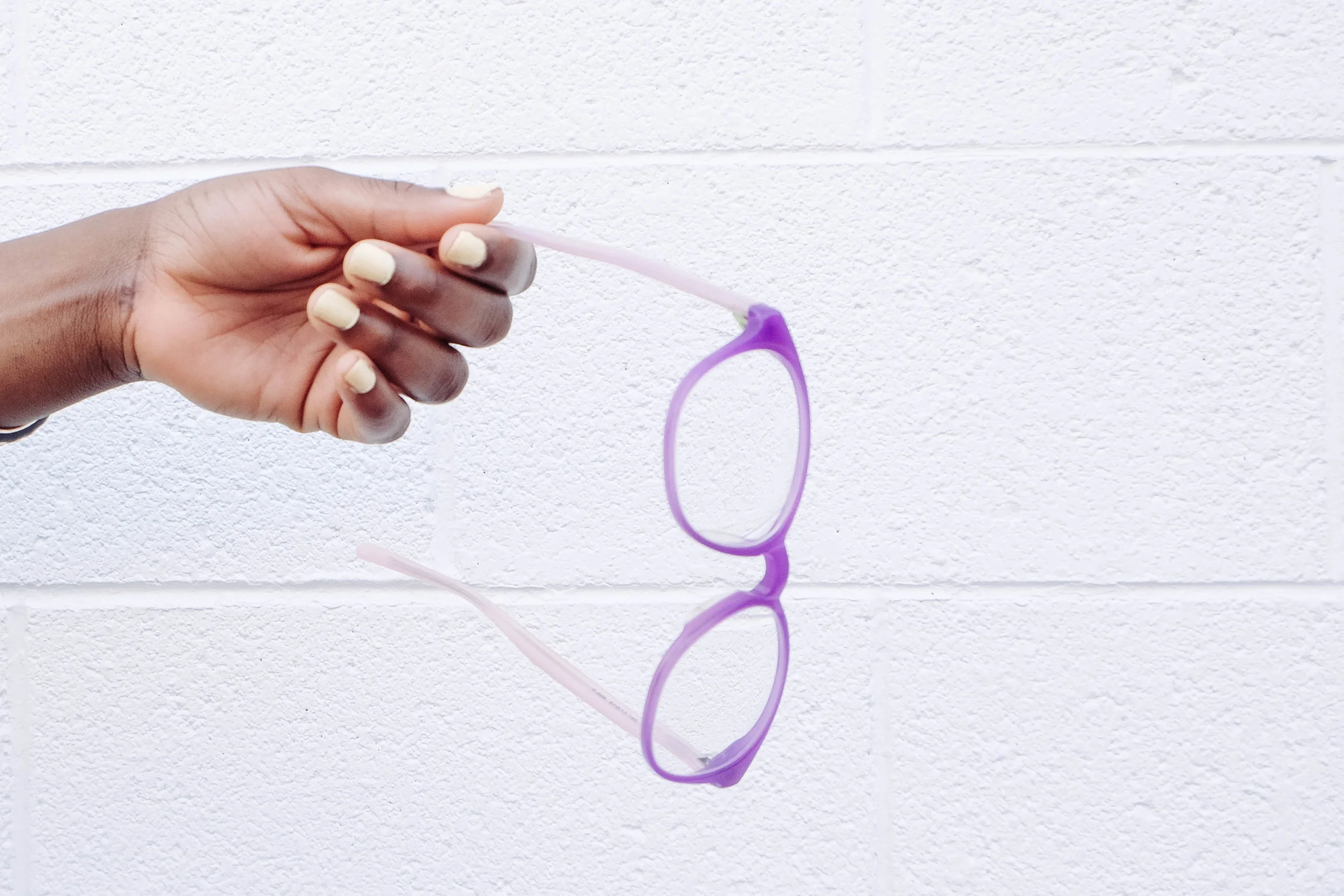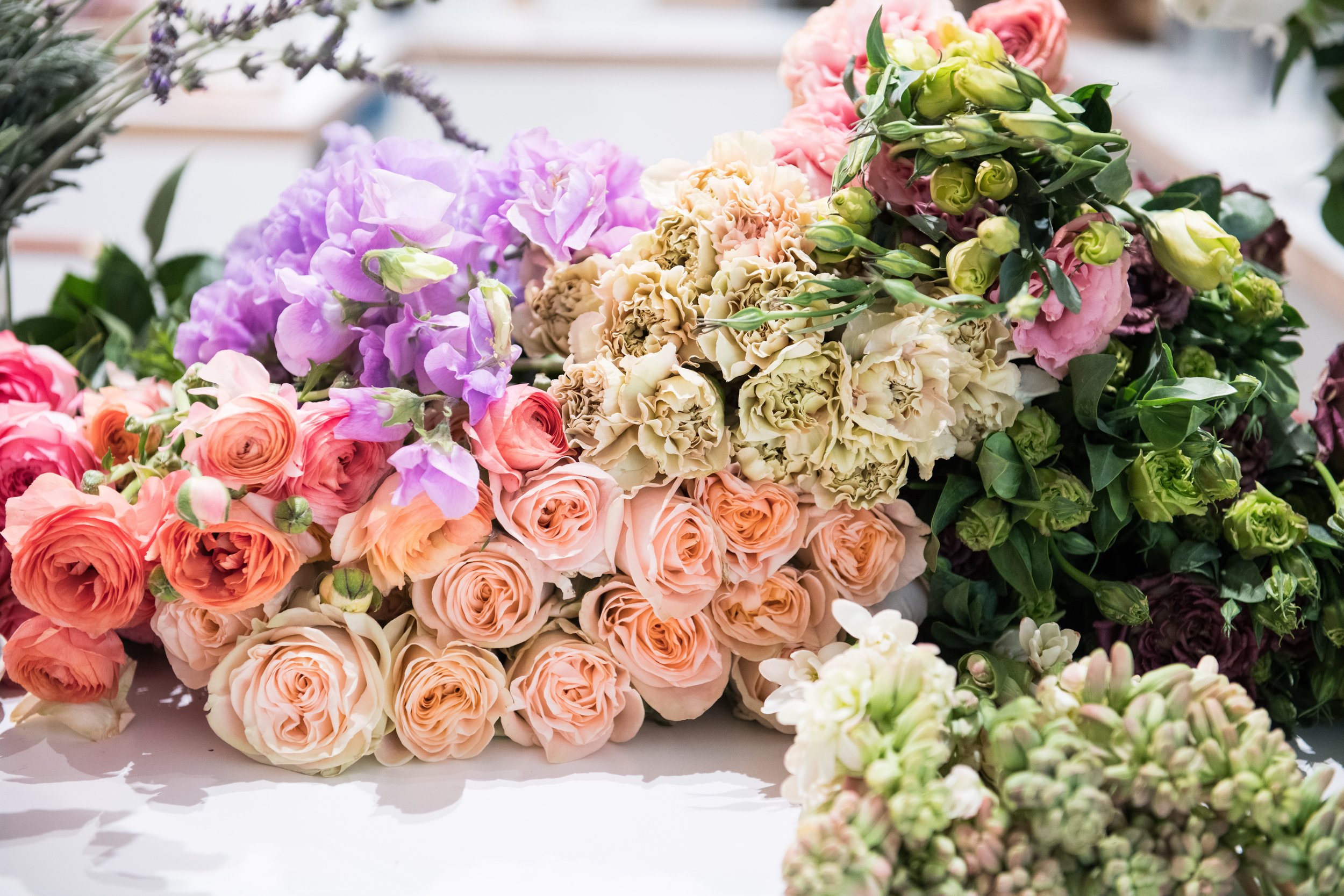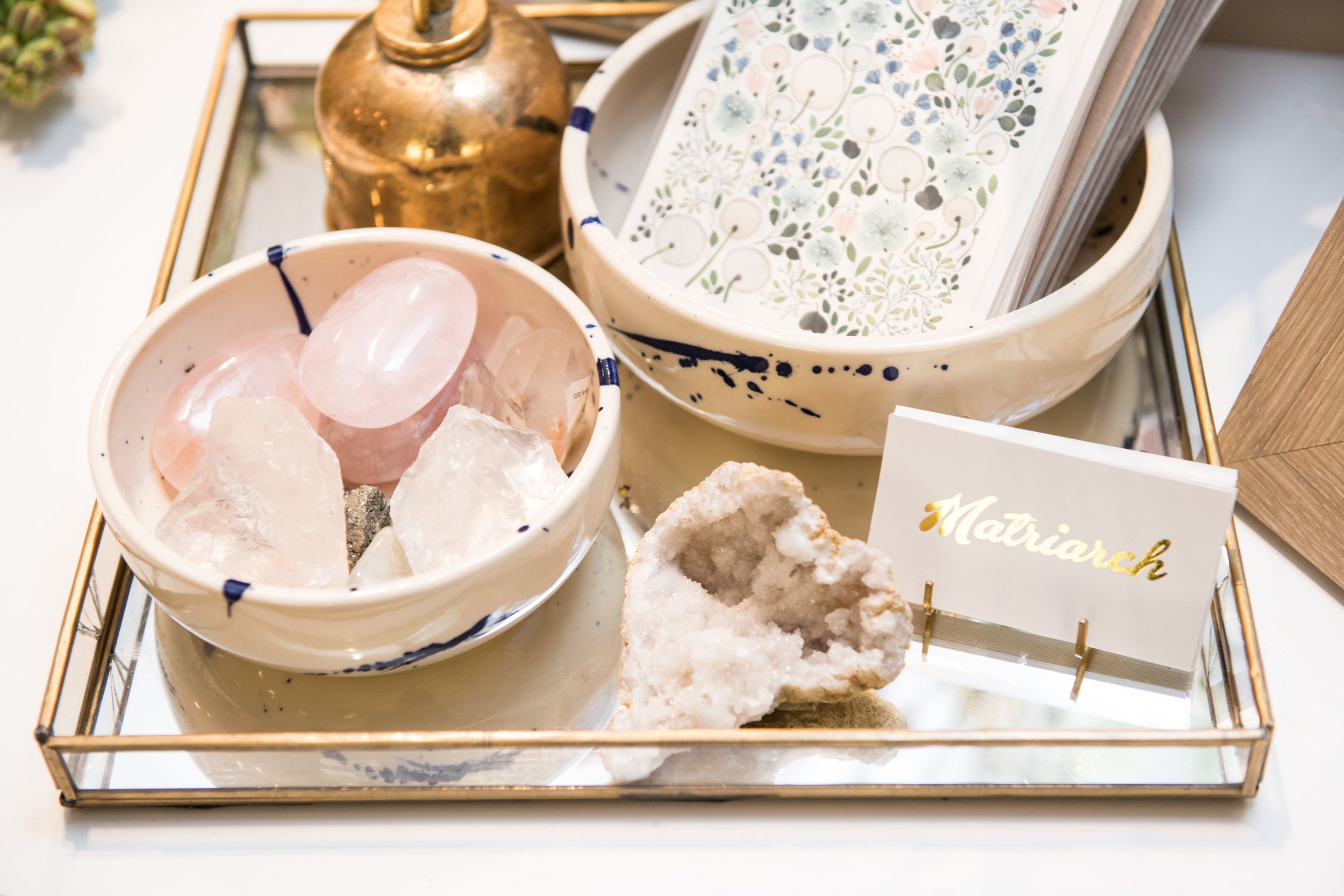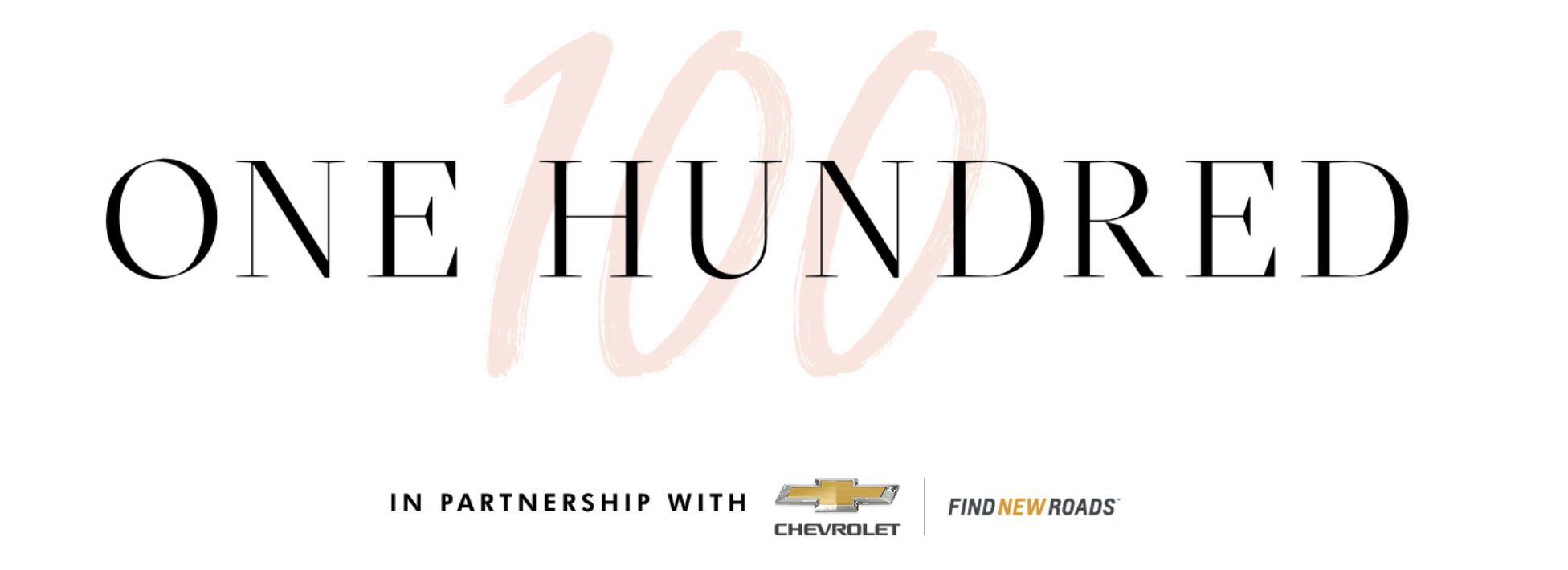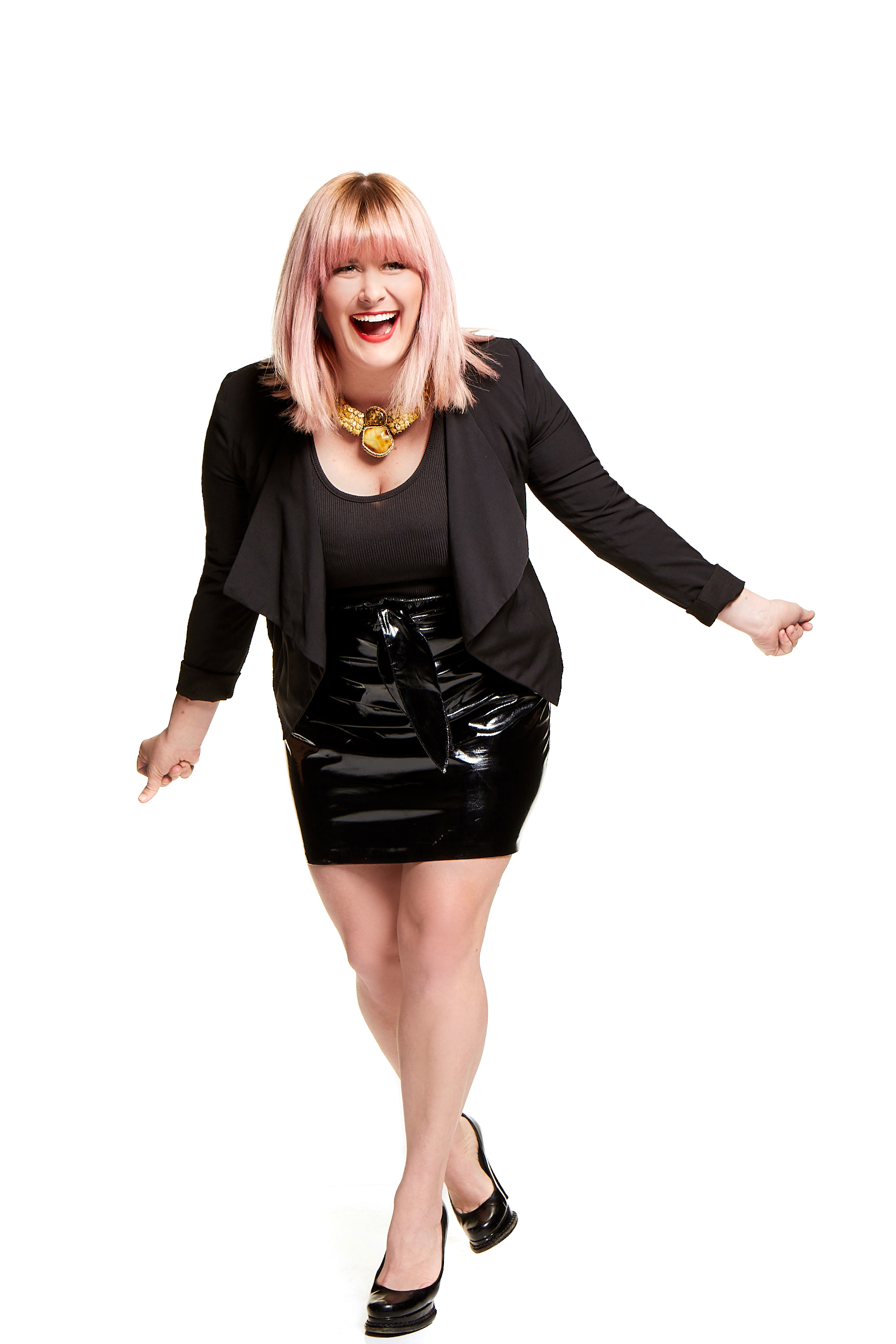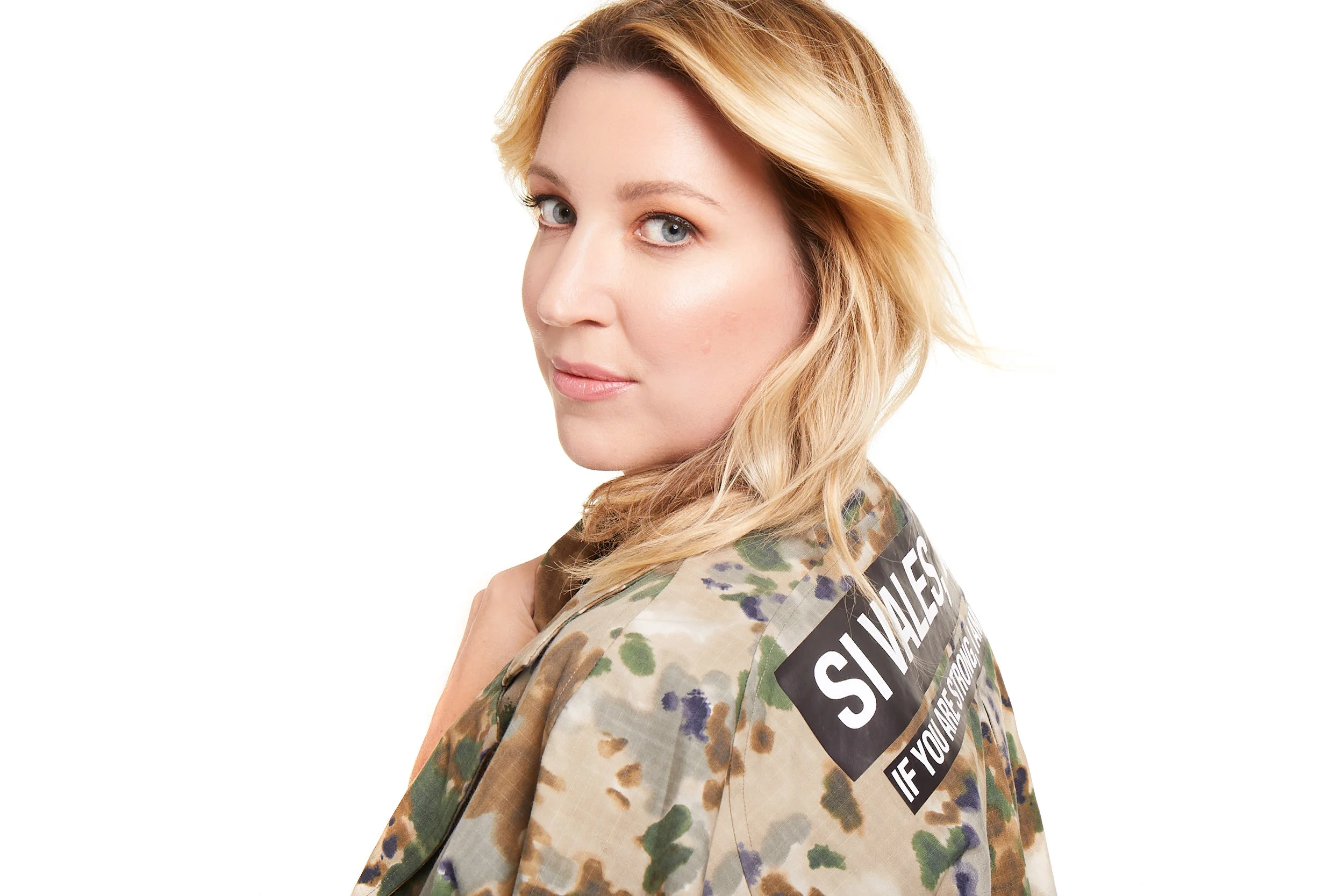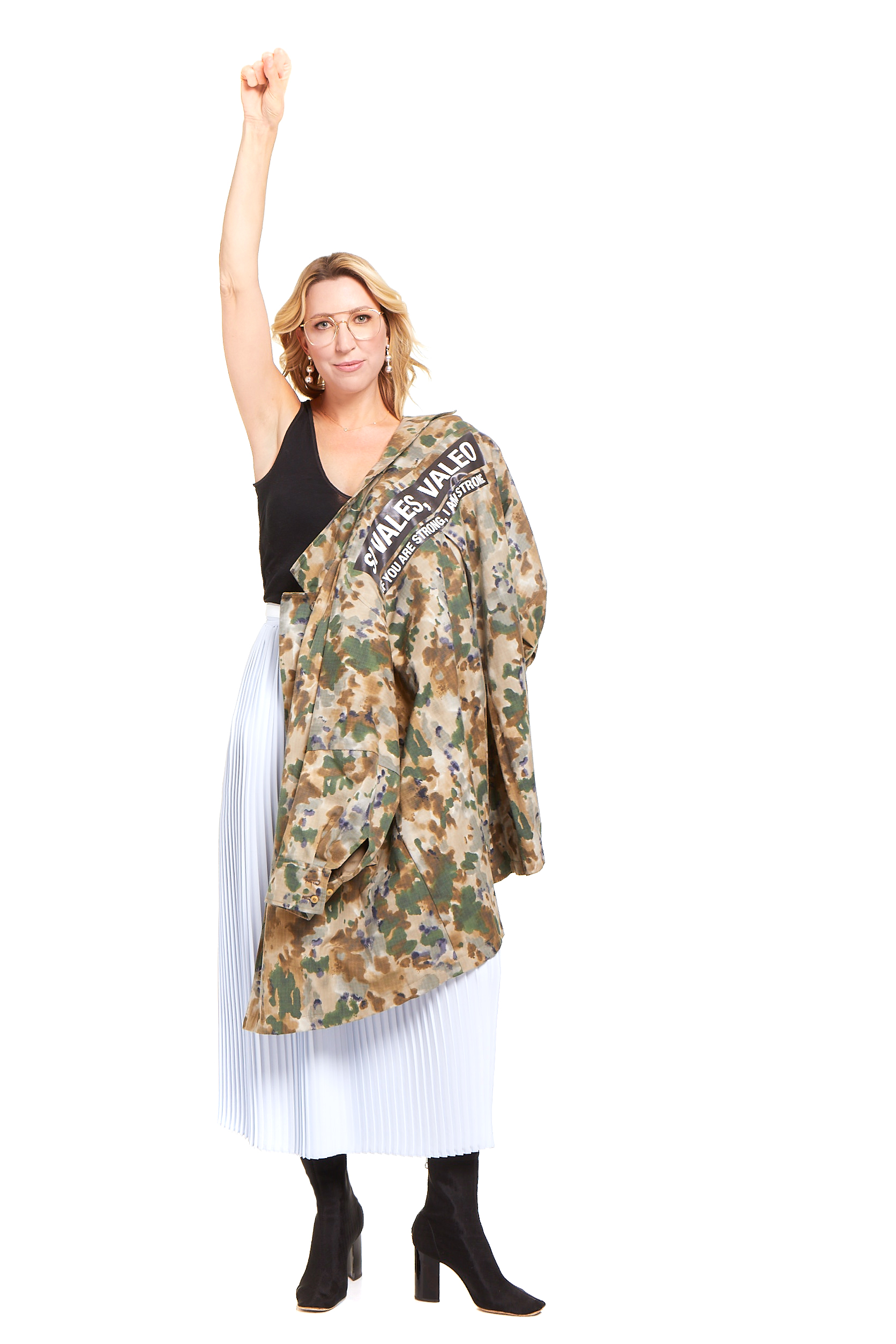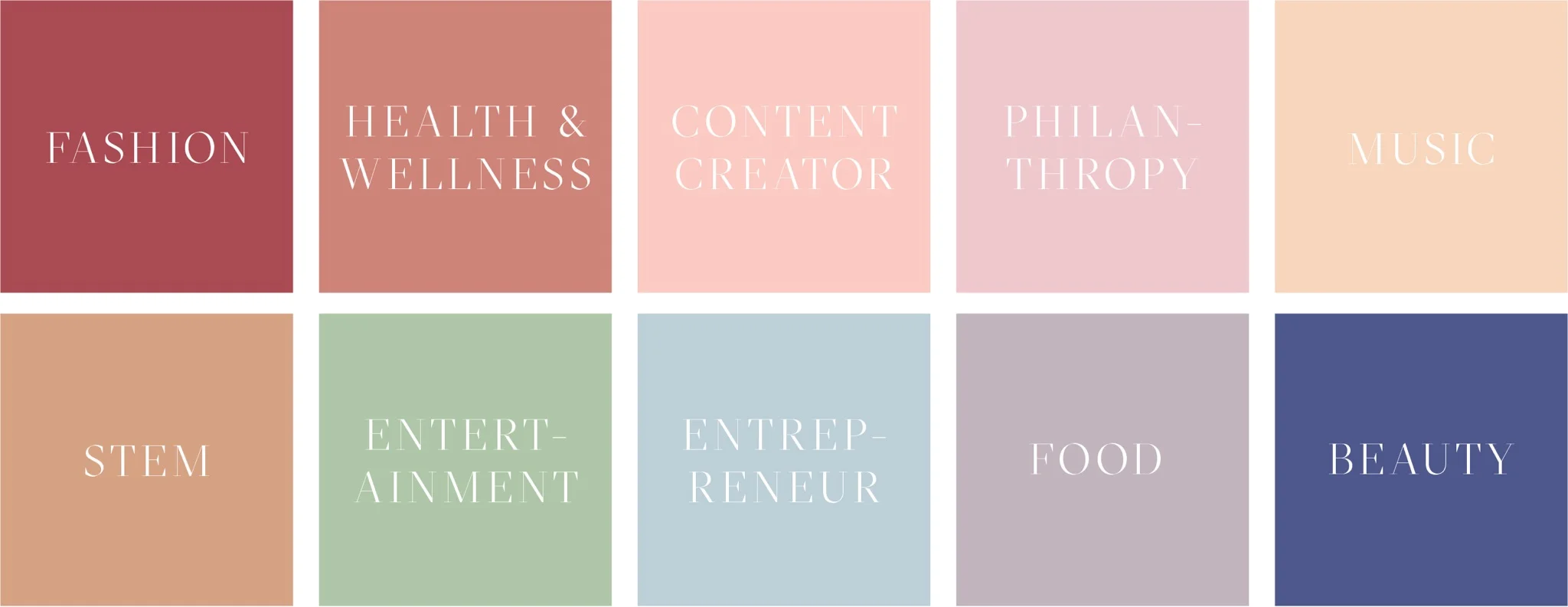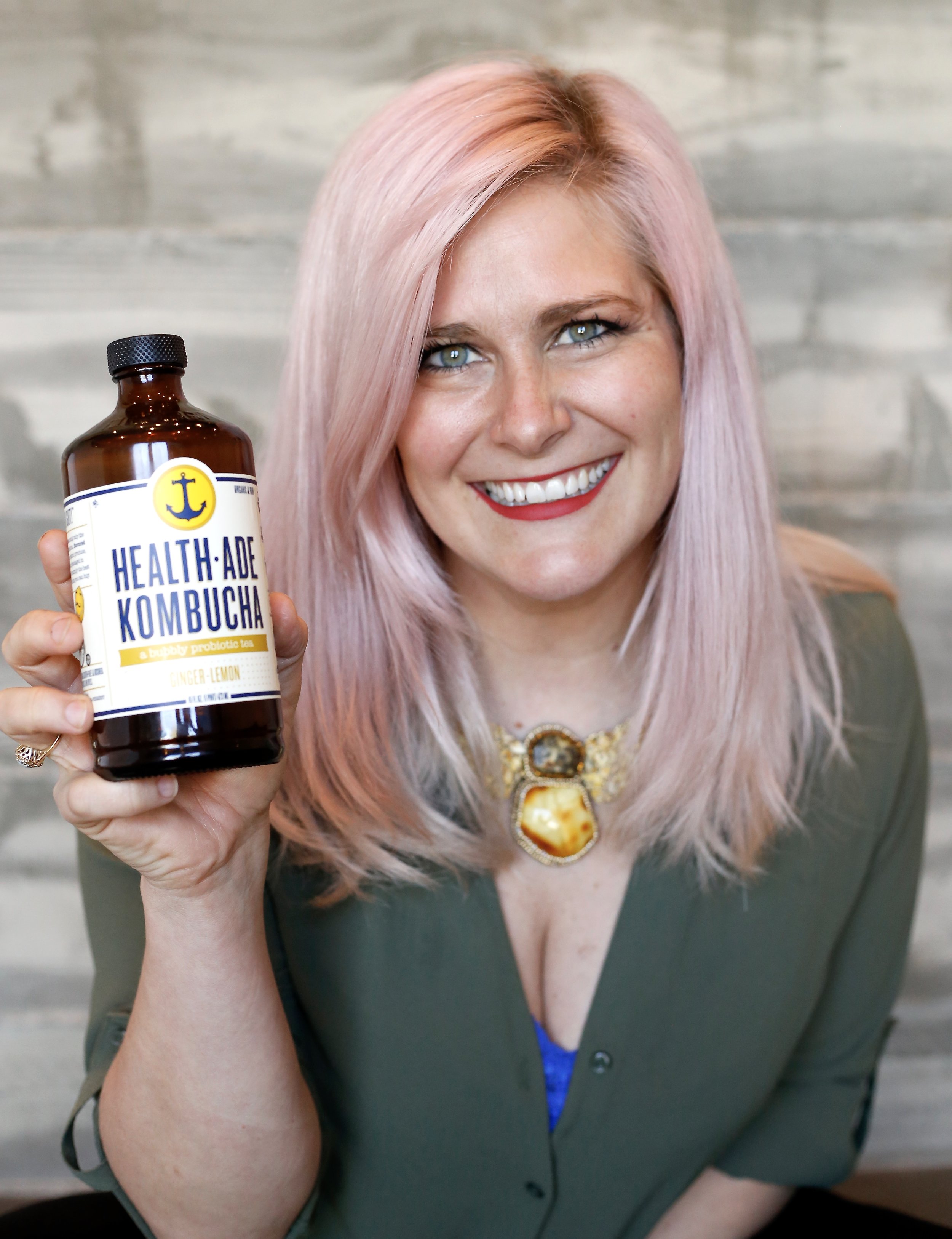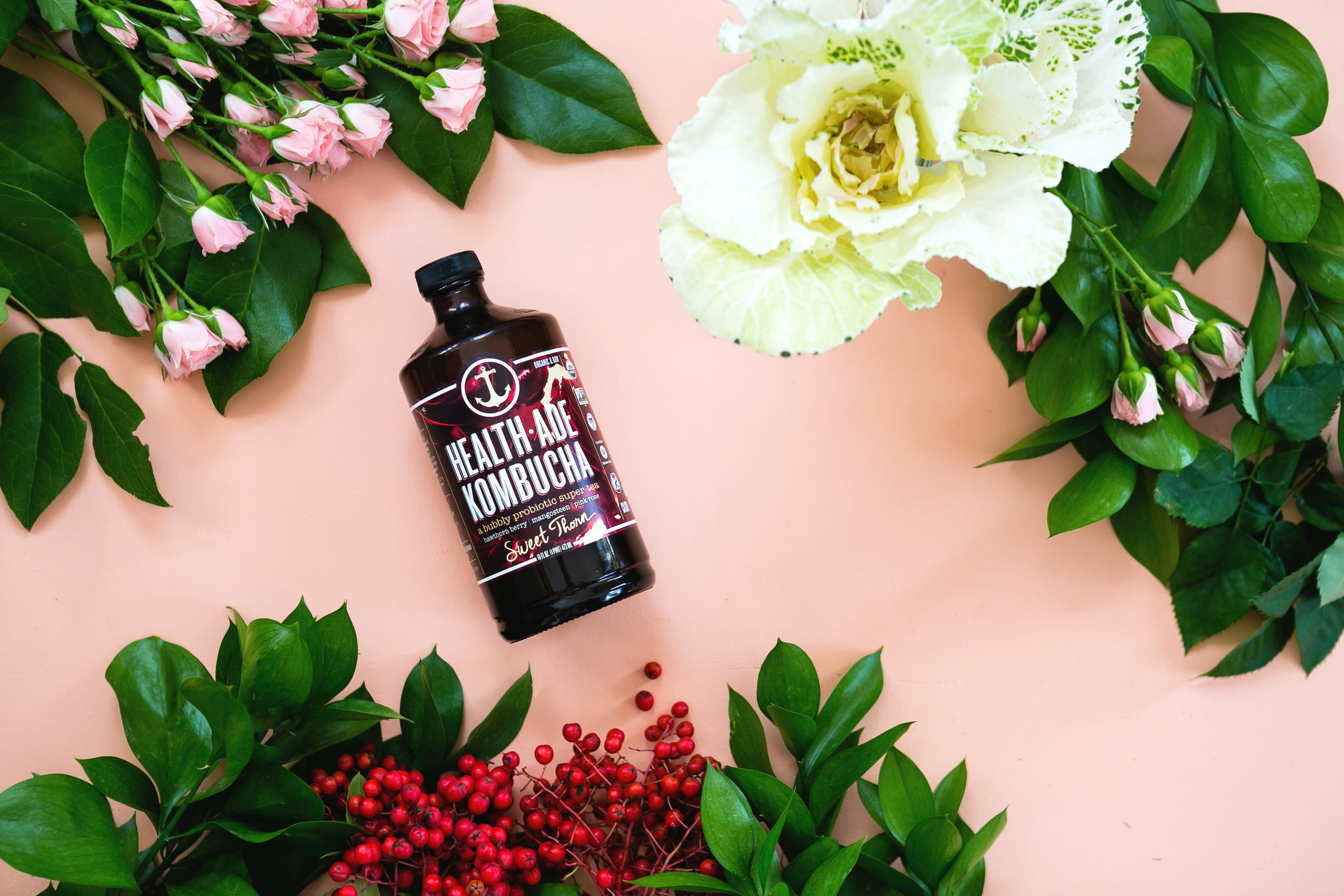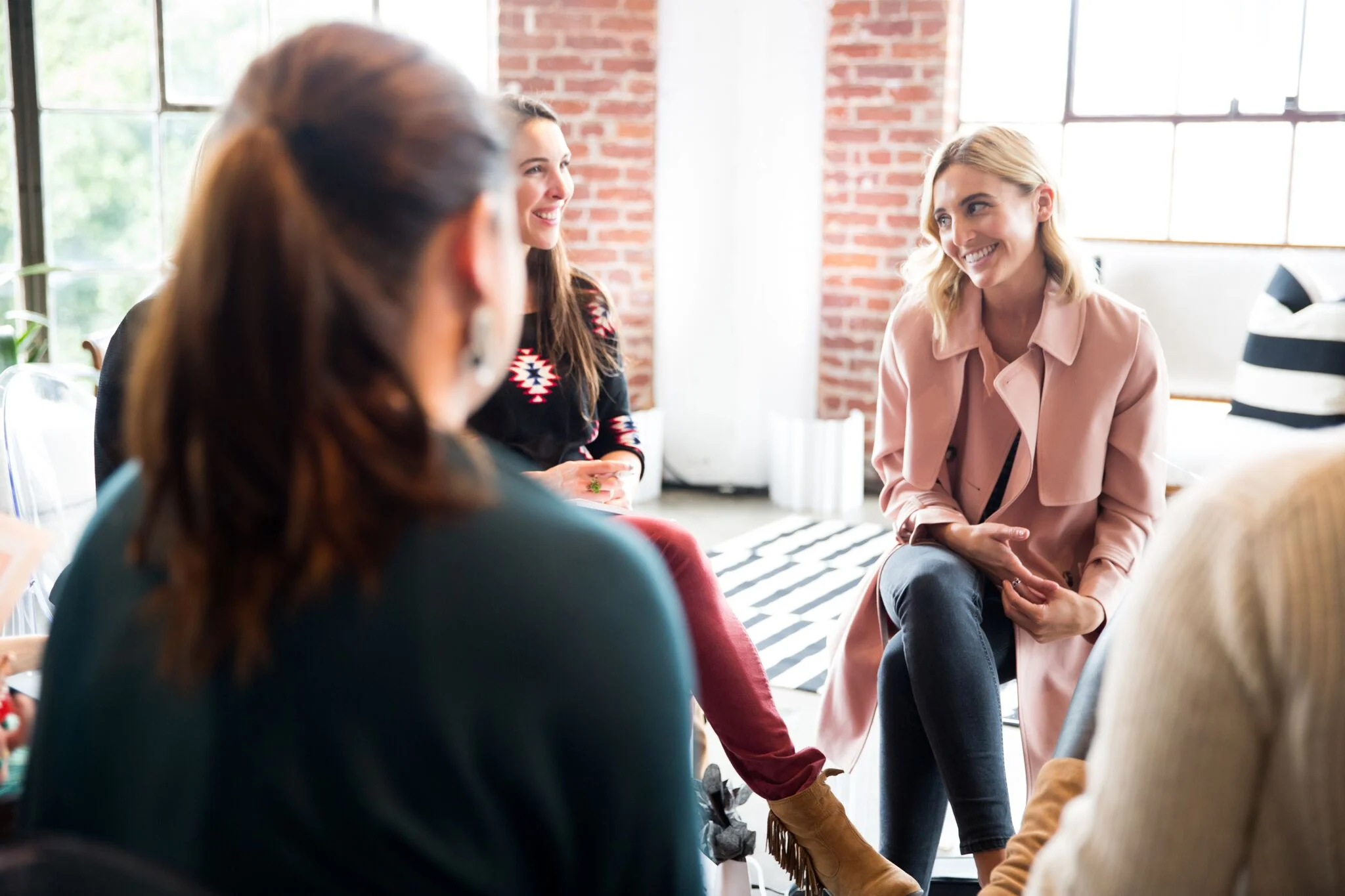Jen Rubio—Co-Founder of the Billion-Dollar Start-Up, Away—Covers Inc. Magazine
Going the distance.
The new disruptors.
Jen Rubio, co-founder and creative director of Away says that “When you're starting a business for the first time, you're doing everything for the first time.” It’s a perfunctory explanation as to why startup founders struggle. The ins, the outs, the ups and downs; it’s turbulent. But Rubio along with her co-founder Steph Korey have weathered the storm and come out on top.
The company (which made the Forbe’s 2018 Next Billion-Dollar Startups list) was recently valued at $1.4 billion after raising $100 million. Last year, the company was on track to do $150 million in revenue and was valued at roughly $700 million. So it only makes complete sense that Rubio would be on the cover of Inc. Magazine today.
She shared the exciting news on her Instagram, graciously congratulating the team at Away for the achievement.
“This cover is for @stephkorey, team @away, all of our customers who rolled with us through the airline battery ban and continue to spread the love, everyone who said we couldn’t do it, everyone who said we could obviously do it, my mom, my dad who would’ve driven all over NJ to buy all the copies, and for every single entrepreneur out there—regardless of your background or pedigree or MBA or no MBA—who is busy doing the work and making things happen. Grateful to the wonderful team at @inc and @youfoundchristine. Cover photo by @tawnibannister”
But when Jen and her co-founder, Korey, both former execs at Warby Parker, left to launch Away, they knew that luxury travel accessories needed retooling and they were ready for a bumpy ride. Dedicated to a piece of luggage for the way "people really move" that didn't come with a first class price tag, the first product was a beautiful, high-end minimalist carry-on without the zeros. Away made traveling in style a whole lot easier. Vogue called it, “the perfect carry-on.” Forbes 30 Under 30 took notice. They had accolades in the bag, but they didn't stop there.
Away now offers varied sizes and chic travel accessories. Steph says the goal is to “be a part of the company that’s the first thing anyone thinks of when they have travel needs.” They're changing how we travel, one charged up suitcase at a time.
Read a little about their journey below.
What is the most important step you took this far?
Steph: I made it a point at every step in my career to always look for opportunities to go above and beyond. That mentality really prepares you for all the unexpected challenges that come your way when starting a business.
Jen: Having conviction in an idea and committing to seeing it through all the way.
What keeps you going?
Steph: Coffee? Just kidding, the biggest thing that keeps me going is the excitement for the game changing travel company we're building and the mind-blowing members of the Away team who constantly inspire me.
Jen: Relationships. I'm energized by people and conversations and am at my most creative when I find myself really connecting with those around me.
What is the best piece of "real talk" advice you've received?
Jen: "You will never be great on your own if you don't learn how to work with other people." That snapped me out of my early 20s "I can do it all" hubris and got me thinking about how to be a team player and people manager.
Steph: "Hire slow, fire fast. Better have a hole than an a-hole." - Neil Blumenthal, Co-Founder and Co-CEO of Warby Parker
What are some challenges you’ve encountered along the way?
Steph: The list goes on and on. If you push yourself in your career, you're constantly being challenged because you're always taking on things that push your boundaries. I wouldn't have it any other way.
What is your favorite life advice?
Jen: "Ships are safe in harbor, but that's not what ships are built for." Take the risk!
What is a habit or routine you swear by?
Steph: My clothes all look pretty similar to each other: black, white, grey, denim. Taking out the day-to-day thinking about clothes frees up brain space for other things.
Jen: Every night before bed, I think of five things from the day that I'm grateful for. Gratitude is a practice.
International Women’s Day is coming up. It's a global day celebrating the social, economic, cultural and political achievements of women. If you could steer the conversation around International Women’s Day, what would that dialogue be about?
Jen: I'd want to highlight the disparity between the opportunities of women in different places around the world and bring attention the the incredible, resilient women I've met in the Democratic Republic of Congo, Rwanda, Haiti, etc. and their stories.
Steph: That the goal should be to one day stop celebrating it because men and women are so equal across the whole world that there would be no need.
What does female empowerment mean to you?
Steph: Historically, women haven't always had the same legal rights as men. It's really in the last generation that it became socially acceptable for women to have the same career potential. To me, female empowerment means reminding women that if any person can do something, so can they.
Jen: Being open, honest, and vulnerable with the women I call my friends, and as a result, encouraging each other to do better and enjoy the process.
What do you do to support other women, either professionally or personally?
Steph: I treat them the same as men, both personally and professionally. The whole point here is that people are people, so when it comes to hiring, promotions, or supporting your friends, everyone should get the same great support.
Jen: I try to be active in mentorship, panels, and discussions that help women, and while doing so, try to be as transparent as possible about my own experiences.
This article is part of our Create & Cultivate 100 List created in collaboration with KEDS, you can view the full Entrepreneur List Here. This post was originally published on January 23, 2017, and has since been updated.
Top LA Recruiters Dish 8 Interview Mistakes to Avoid
A coffee is too casual and other pro tips.
"Grandma Dawn is turning 89 this year and still comes to the office every day," says Natalie Levine over coffee (mine) and mint lemonade (hers). She can't drink caffeine after 2pm, "or she'll be up all night," explains her sister Emily.
The referenced "office" is Century City-based Career Group Companies, a staffing firm specializing in full-time and temporary placement of administrative staff for today's leading companies. Founded in 1981 by the sisters' then 25-year-old mother, Susan Levine, it remains a family run business.
Emily serves as Vice President, Natalie as Senior Account Manager, and dad, Michael Levine is CEO. Grandma Dawn, "in her Chanel and Etro," is an office staple.
"Our mom was a pioneer of the boutique staffing firm," says Natalie, "when staffing was all about making the deal, instead of the people side of the business."
It's this hands-on people-centric approach that propels Career Groups clients' businesses forward and makes a difference in applicant's lives. The company now employs approximately 150 people with offices in LA, New York, Redwood Shores, San Francisco, and Connecticut.
Candidates come to Career Group Companies by appointment only and leading companies rely on the CGC to deliver top notch direct hire and freelance/temp candidates for their open jobs. "We are essentially job match makers," they explain. "We grant candidates access to exclusive companies, and we serve as their counselors along the way. We are there for every step of the process, from assisting with their resumes, interview tips, delivering the offer, and more."
Jobs are their job. And we make jobs are our business.
So for the graduating class of 2018, who better to ask the the do's and don'ts of the interviewing process? According to Emily and Natalie here are 8 common mistakes you should avoid:
1. NOT WRITING A THANK YOU NOTE
Or not proofreading a thank you note. This is a chance to show off your writing skills, so a typo in a follow-up letter is most definitely a red flag. It’s important to thank the interviewer for their time. Hiring managers want to move forward with candidates who leave a positive impression and have good manners!
2. NOT ASKING QUESTIONS AT THE END OF AN INTERVIEW
Even if an interviewer is extremely thorough during the meeting, it’s always important to convey interest and come prepared with questions. A lot of applicants don’t realize that they should ask questions.
3. NOT BLOCKING YOUR SOCIAL MEDIA
Most companies are checking Instagram, Facebook, Google searches, IMDB, and more. You shouldn't have anything (public) on the internet that you wouldn’t want HR at a company to see before even meeting you. First impressions cannot be taken back and it’s important to remember that companies are concerned with their own reputation, and want to bring people into their companies that are aware of their presence.
4. DON'T LIE ON YOUR RESUME
If you didn’t receive a college degree, do not put that you graduated! Fact check your GPA. Triple check your dates of employment. Candidates will lose offers at the end of an interview process if a background check exposes falsifications on the resume or application. Honesty is the best policy here, always.
5. DON'T INFLATE YOUR PREVIOUS SALARY
Be accurate about your previous salary. Don’t inflate your previous salary to get a higher offer. Companies will pull w2s to verify earnings more often than not. If you didn't make the dollars, it doesn't make sense to pretend you did.
Job Application Tip: "Don’t inflate your previous salary to get a higher offer."
Tweet this.
6. NEVER BE LATE. EVER.
Being on time means being 10 minutes early. You need to allot time for parking problems, traffic, and any to other unforeseen circumstances. There is no excuse to be late to an interview because it shows a lack of foresight and consideration that you will likewise bring to the position.
7. LEAVE THE COFFEE IN THE CAR
Don’t bring a beverage to the meeting (it's too casual), don’t chew gum, don’t have your cell phone out or on, and make sure you aren’t wearing a lot of cologne or perfume.
8. DON'T FORGET TO DO YOUR RESEARCH
Do your homework on the company you are interviewing for! That goes for the person you are interviewing with as well.
To be considered by Career Group send your resume to their website directly! You can apply to jobs on: www.careergroupinc.com, www.fourthfloorfashion.com, or www.syndicatebleu.com, and your resume will be routed directly to a recruiter.
And be sure to check back for more from Natalie, Emily, and to hear about their soon-to-be launched startup, Work Grades, that's set to deliver "unparalleled transparency to the employment sector by taking the guesswork out of references."
MORE FROM THE BLOG
How to Show Jet Lag Who's Boss
And other first class travel tips from this CEO.
photo credit: El Camino Travel
I own an international travel company so naturally, I travel a lot for work. There are months where I spend more nights in hotel beds than my own. However, I am not one to complain. Traveling for work has afforded me great opportunities; I have met some incredible people in other countries and I have spent way too many boisterous nights dancing and sipping on national liquors all in the name of work. I have been able to keep up with a transcontinental schedule by creating a routine out of the chaos. I also called on some of my other globe trotting lady friends to get their input on how to stay balanced when traversing so many time zones.
ON JET LAG
This might be the worst aspect about travel. Jet lag can lead to fatigue, anxiety, insomnia, irritability, and digestive upset. Basically, it sucks. My friend Kalsoom, who travels to Pakistan on a regular basis highly recommends taking natural melatonin supplements that help control your sleep. I always use the long plane rides and overnight flights as an opportunity to start to get my body adjusted to the time zone I will be landing in. Neck pillows, eye masks, large scarves that double as a blanket, and noise canceling head phones (per Kalsoom’s suggestion) make the process of avoiding jet lag much easier.
ON STAYING HEALTHY
Exercise and being active is of high importance to me and it is what helps manage my stress levels. Before I take off, I usually check to see if there is a gym near where I am staying and particularly, the classes they are offering. Classes are a great way to immerse yourself in the local community and culture. For example, I have taken champeta and zumba classes in Colombia, yoga in Mexico City, and signed up for beach boot camp on the shoreline of Copacabana Beach in Rio de Janiero. Beyond that, I use running as a way to see the city or roam new neighborhoods. There is no better way to explore a city than by foot.
"Keep up with a transcontinental schedule by creating a routine out of the chaos."
Tweet this.
If time is tight and I have to do a quick HIIT (high intensity interval training) workout in my hotel room, I use apps like Nike Fit Club and ProDay. All will make you sweat and often no equipment is needed.
ON LIVING OUT OF A LUGGAGE
As soon as I arrive to my hotel, I unpack my luggage and organize everything. It takes a quick fifteen minutes, but allows me feel more settled in rather than on-the-go. Beyond that, I treat myself by bringing along some sort of luxury item so it feels special. For example, when I am home, my body wash is basic, but when I travel, I splurge on Malin Goetz Rum Body Wash. It might seem simple, but for whatever reason it works for me and gets me excited about my trips. It is all about the mental games you play with yourself when you are traveling so much.
On a practical level, I always take my time when preparing for my trip. Being rushed or anxious that I forgot to pack something important is not worth the stress for me. Rather, I block out a few hours in my calendar, use it as an excuse to catch up on podcasts and do it with calmness. I always try to pack a fun wardrobe where pieces can be mixed and matched and be used for all types of occasions. Jewelry (which, barely takes up any space) is an easy way to take an outfit from day to night as well as a bold lip color. Because I love exploring a location by foot, comfortable, but stylish shoes are the first items I pack. A similar pair to these or these, have worked really well for me.
ON MAINTAINING RELATIONSHIPS
I get asked about this a lot. My husband and I both travel a ton for work and this year has been particularly intense. We have had several occasions where I will be flying in and he will be flying out the next day. We are both at a point where we are hitting major strides with our careers, in our early thirties, and have both worked hard to get where we are. In short, travel is not slowing down for either of us. We are fully supportive of each other going big or going home for the next few years. That being said, our relationship is of high priority and we have seen (and felt) what happens when we are not proactive about maintaining it. One of the biggest challenges is communication and starting to feel disconnected. When he is sometimes sixteen hours ahead or I am not getting back to my hotel room until one in the morning, hopping on a call is difficult and sometimes the last thing either of us want to do. However, we make texting each other the best thing that happened to us every day a priority. That makes us feel like we know what is going on in each other’s lives and it keeps our work travel positive.
"We make texting each other the best thing that happened to us every day a priority."
Tweet this.
Maintaining relationships with friends and family can also be difficult when you are on the road. My friend Corey -- who has lived in Nairobi, Kenya for the past few years and is often traveling to very remote and rural areas of the country-- uses technology and social media to her advantage. Although she has tried to keep a blog, send long email updates to friends, or schedule the habitual Sunday night Skype call with her parents, she has found that social media makes it easier (and faster) to maintain relationships while abroad. Whether posting an Instagram picture of your travels, sending a Snap Chat of your commute to work, or even playing a quick round of Words with Friends, you can use the breadth and ease of technology to stay connected to those you care about. While no substitute for in-person catch-ups, these short, virtual "touches" help maintain the foundation for long-term, quality relationships. And that's #nofilter.
Sticking to the above allows for work travel to continue to feel fun and exciting instead of starting to have it feel burdensome.
###
Katalina Mayorga is the CEO and founder of El Camino Travel. El Camino was featured in AFAR in their 2015 Vanguard Issue under, "Surprise Is the New Luxury" category, as well as Mashable, the Guardian, Marie Claire and Forbes for their innovative approach to travel. El Camino works closely with local tastemakers to curate off-beat experiences for small groups of people to unique locations. The trips all come with a creative photographer in tow, so that their travelers can thoroughly enjoy their experiences while ensuring that their memories are captured and that they will have great social media content. In addition, a percentage of profits are donated to a local social entrepreneur working to better his or her country.
MORE FROM OUR BLOG
6 Ways to Get Back on Business Track
June gloom won’t stop ya.
June gloom brings more than cloudy, grayish weather. It’s also the year’s mid-way point, the pit stop on our journey to NYE that reminds us of those lofty goals we set on Jan 1. And that can make some of us as gloomy as the weather. In part because we’re looking at everything we’ve yet to accomplish, leaving us feeling like tail chasers.
But let’s make this a coffee cup half full situation and get back on the grind. Here’s how to set yourself and your business goals right once more.
REVIEW
Where’s that list you wrote? Whether scribbled on paper, the notes section in your phone, or stored in your memory bank, it’s time to review. Look at what you have accomplished and what you haven’t. Do a brutally honest assessment of where you are. Reflection is a fundamental skill set of successful people. This time put it to paper-- if it’s not already.
"Reflection is a fundamental skill set of successful people."
Tweet this.
WHY WORDS ON PAPER?
Two words: Accountability and commitment. Though many sites report the findings of the “1953 Harvard study” or the “1979 Yale study” both said to have found evidence correlating the act of writing down goals and the long-term performance of people, neither such study ever took place. However, putting your goals to paper does make you more accountable. For your mid-year review put your goals in two columns: A and B. In column A write down what you’ve already accomplished. In column B write down what you want to or have yet to accomplish. Notice if one column greatly outweighs the other. If the scales are tipped in favor of column B, consider creating a third column: C. Column C should be the space where you really hone in on what is realistic and important. Ask yourself if your goals have changed. Moving forward focus your efforts on C, instead of feeling overwhelmed by B.
WRITE DOWN THE HABITS YOU NEED TO NIX
Is there a side hustle you’ve been putting off because you’ve grown complacent/sucked into a Netflix hole? Have you stopped learning and listening and thereby found yourself in a creative rut/sucked into a Netflix hole? Chances are you’ve picked up a new bad habit or two in the last six months. They’re kind of like gophers that way-- always popping up in unexpected places. You don’t have to wait until New Year’s to reset. Use the start of summer (this coming Thursday, June 21st) to get the habits off your plate that are crowding out the other important and sustainable items.
CONSIDER USING A VACATION DAY OR TWO
This may feel counter-intuitive, but If you’ve been hitting it hard since the beginning of the year, that's counter productive. It could be time for a break. If you think of your brain like your computer, you know that you have to shut it down every now and again, otherwise it will start crashing. Endless spinning wheel of death where creativity ceases to flow and information exchange comes to a halt. You don’t have to hit professional rock bottom before you crawl back out. In 2014 42% of working Americans didn't take a single vacation day. Not one. In 2013 Americans collectively squandered 169 million vacation days. Yet this pattern is taking its toll on workers, proving to have a negative ripple effect on employee mental health, productivity, even the economy.
REACH OUT TO THAT *ONE PERSON*
This is an easy step to take, and yet we all know that the easiest step is often the hardest. There’s always that *one professional person* you keep meaning to reach out to, but never do. Maybe it’s a cold call or maybe you even have an introduction, but for some reason you can’t bring yourself to follow through. It may not be career changing-- for now-- but it could be the one domino that sets the others on a roll. As soon as you finish reading this, go write that email and send it off.
LET GO AND LET GO (FOR REAL, LET IT GO)
Have you heard that spring cleaning closet rule? That if you haven’t worn it (leopard print body con dress) in a year, it’s time to donate? Well, the same goes for your to-do goal list. If there is a goal that’s been lingering, weaving its way from one year to the next, without much progress, it's time to let it go. Holding onto something we can’t commit to takes up valuable space in our brains. Much like that one person, you know what the one goal is. We’re not telling you to give up on your dreams, but if you’re not working toward it, maybe it’s not your dream?
And remember: Sometimes yes, you have to look back in order to look forward, but once you have your sights set firmly ahead, hold eye contact with the future. It’s your best bet.
MORE FROM OUR BLOG
Why This Sought-After LA Designer Just Launched a New Line
The models are way cuter she says.
Women in LA know all about Anine Bing. In fact, women all over the world know about Anine Bing. The singer turned designer launched her self-titled line in 2012 and the response was explosive. Consumers were immediately attracted to the cool-meets-laid-back vibe of her designs. They are simple, and yet, at once, recognizable as a Bing piece.
Six years later and the designer is aiming lower. Well, height wise at least. Inspired by her daughter Bianca's desire to "dress like Mommy," the founder launched BING KIDS. A no-fuss collection at a lower price point for boys and girls.
What compelled you to launch a kids line?
It's been a goal of mine to launch BING KIDS for the last couple years now, ever since my daughter Bianca was asking to "dress like mommy." I wanted to create clothes for my kids personally that were both comfortable and cool, so when we set out to do the collection we had those two points in mind specifically.. It's a very no fuss collection with rock n roll tees, skinny jeans, joggers and sleeper sets, a really cool leather jacket, all very ANINE BING.. And we wanted it to be super versatile for both boys and girls to wear.
Is the design process different from designing for adults?
It is and it isn't.. Again, comfort and cool factor along with versatility were our priorities in designing. And I had my very own fit models right at home!
What’s your favorite part of designing for kids?
First of all, it's all SO cute.. It melts everyone's hearts to see a moto leather jacket in miniature size for a 2 year old! But I really loved and welcomed the challenge of making the line unisex. I had moms in mind when doing this because I know personally that it can be tough to get the kids dressed and out the door some mornings. So we set out to make a collection that cut that process down a little bit, and also kept the kids happy and feeling unique and cool.
Are the models cuter, be honest. That's easy - YES!
How will you balance your time between designing the adult line vs. the kids line? I have an amazing design team and we've tripled in size since the Fall so we all work together to prioritize each line but in different ways. ANINE BING is still the main focus because we just launched BING KIDS and we're only doing monthly drops instead of weekly drops for now, and only selling on eCom. But both of the lines are very close to my heart, and I can't wait to see what we do with both.
Any other secrets up your sleeve you can share with us? None that I can get TOO into, but I'll say this -- we're excited to grow our retail presence in 2018!
The full collection is available online now!
And be sure to RSVP to see Anine in person when she joins us on panel for the MINI x Create & Cultivate "More of What Matters," speaker series. RSVP HERE!
MORE FROM OUR BLOG
Poppin' By: Why A Rebrand Was the Best Choice for This Popular LA Florist
Her vase is definitely half-full.
Introducing "Poppin' By" a Create & Cultivate profile series in Partnership with Chandon. Every month this year we're profiling a female entrepreneur, popping by their work space and enjoying a bit of bubbly. Here's a cheers to amazing, working women!
Kelsey Harper, the creative brain, founder and florist behind one of LA's most sought-after floral and event design companies, had to do the impossible.
After years of going by FLOWER GIRL LOS ANGELES, Kelsey was given an option: battle it out legally for the name or change it.
For many entrepreneurs the thought of a rebrand is a nightmare. For Kelsey, it represented opportunity. *Note, this is the frame of mind common amongst successful entrepreneurs. There are no doors, only windows.* Of the opp, Kelsey says, "I decided that I would rather invest the money I would have spent on a lawyer, into a beautiful cohesive rebrand. I had outgrown the name, it felt young and tired and I also felt confined by the words "Flower Girl" and “Los Angeles."
In other words: Kelsey's flower vase is half full.
So, inspired by her fortitude-- April showers bring May flowers after all-- we popped by Kelsey's new space Matriarch Floral in the newly launched Fred Segal LA to chat new beginnings, old names, and the flower that she's just not that into.
You trained as a special effects makeup artist. Then moved to Maui. And your love of florals grew. What was the point you knew you wanted to shift careers?
I started doing flowers as a hobby for the families I nannied for and assisted. After almost 8 years of being on someone else schedule, I knew my next step would be to work for myself. I did not have any formal flower training, but my love for taking a raw material, combining it with others texturally and color wise really made me so happy. In the back of my mind my dad always told me, "Do something that makes you happy, and you’ll never work a day in your life,” and flowers were that for me. While it is a lot of physical labor, I still wake up excited about my career.
"Do something that makes you happy, and you’ll never work a day in your life.” Flowers were that for me."
Were you prepared to launch your own biz?
I was not at all prepared. I was inspired by my two best girlfriends who had both started their own businesses in the fashion industry and I learned from making many mistakes and being careful not to repeat them. I still feel like I would benefit from taking a business class or two.
At what point did you decide to rebrand to Matriarch?
After a potential legal battle for the name “Flower Girl” I decided that I would rather invest the money I would have spent on a lawyer, into a beautiful cohesive rebrand. I had outgrown the name, it felt young and tired and I also felt confined by the words "Flower Girl" and “Los Angeles". I wanted to redefine my brand in a way that didn’t restrict me from working in different creative areas or places and also use a name that really resonated with me, something that was strong and feminine, and something that wouldn’t cause brand confusion with many of the other “Flower Girl” brands that were popping up in different cities, further diluting it.
What influenced the decision to take out a retail space?
After having an online shop for so many years, I wanted to take the opportunity to really get out in the field and meet some of my loyal clients who I had never met in person. Also, I wanted to offer same day delivery and pick up for those who needed something sooner than the next business day. After 6 months in the space, I’ve realized that people still prefer to shop online, so we have transitioned the space into a beautiful plant and gift shop during the week and are there creating fresh bouquets and arrangements on the weekend when it's a bit busier, to avoid waste.
Is it beneficial to be in a space with other retailers?
It’s really amazing feeling like a one stop shop for people who are looking for a gift and want to incorporate fresh flowers. The family like environment is inspiring, and a lot of the shops in Fred Segal are female run.
What would you call the most fun/exciting aspect of your business?
It’s really fun executing my clients' visions in my own interpretation. Each arrangement is custom made to order so that we can really capture what we think our recipient might enjoy. The large scale installations are my favorite part of what I do. It forces me to think outside-the-box, as sometimes we are creating/executing things that haven’t ever been made before.
"Each arrangement is custom made to order so that we can really capture what we think our recipient might enjoy."
What’s the hardest part?
Balancing work life and family life is always a challenge. I want to be a present mother but also a good business owner and sometimes I’m needed in both areas at the same time. Also, managing accounting and emails has always been a challenge. This last year I brought on an accountant and studio manager to help in both areas and it has definitely positively affected business.
For those who want to work with big companies, how do you get in with names like Chateau Marmot and Sunset Towers?
Being an LA native, I am lucky enough to call some of the large businesses I work with friends. I think working with people who you know and people who trust your vision, whether the business is large or small, is my best advice. Sending free/ promo arrangements or work is also a nice gesture to say hello and give a client an idea of what you’re capable of.
What’s been the craziest request you’ve ever received?
The installation we did for Depeche Mode earlier this year was pretty insane. We installed in the window of Fred Segal, over 3,000 red roses that floated across the 18ft window and were suspended from the ceiling. We had creative freedom but the installation was definitely difficult to assemble. Each rose had a water tube attached to keep them alive for a full week.


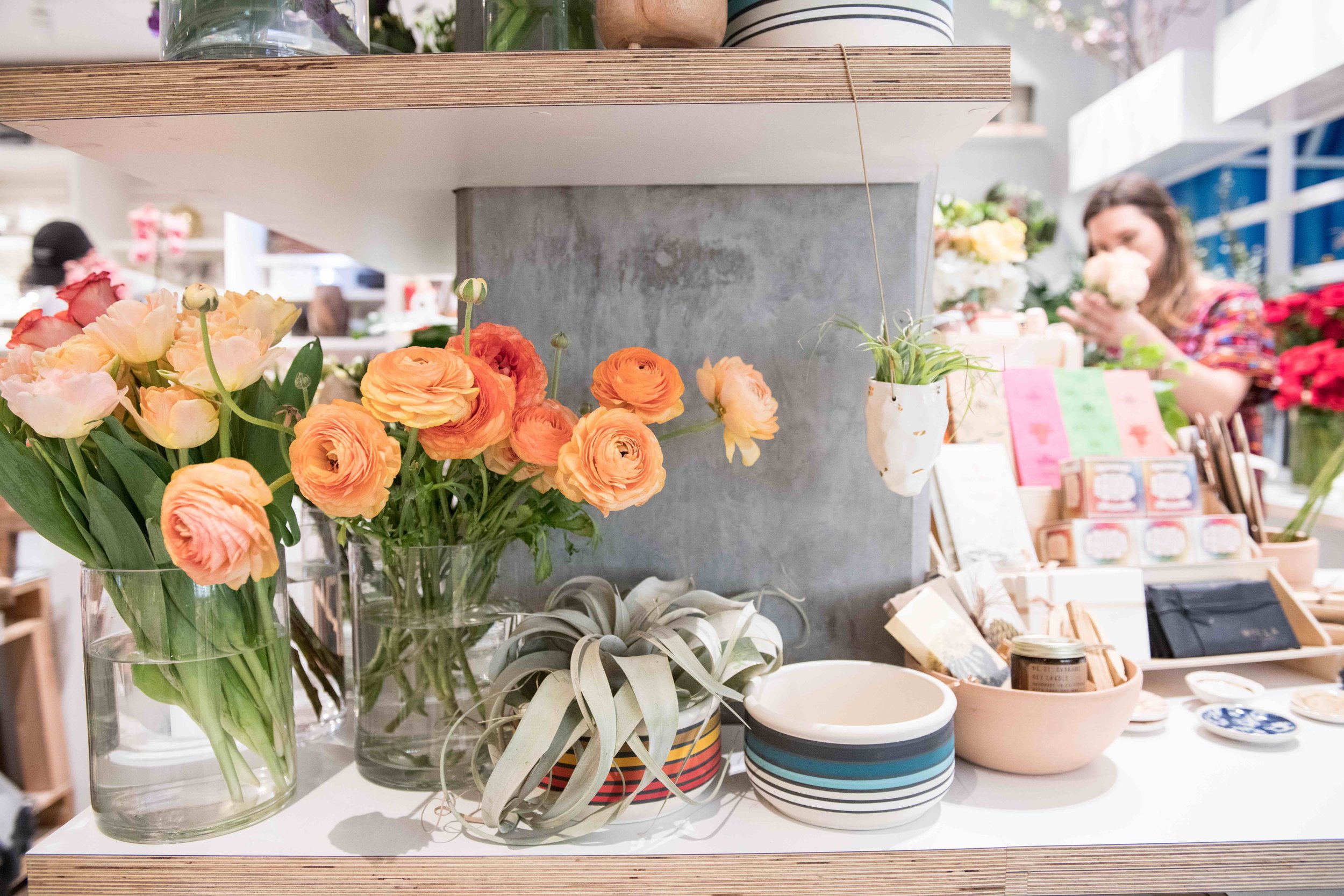
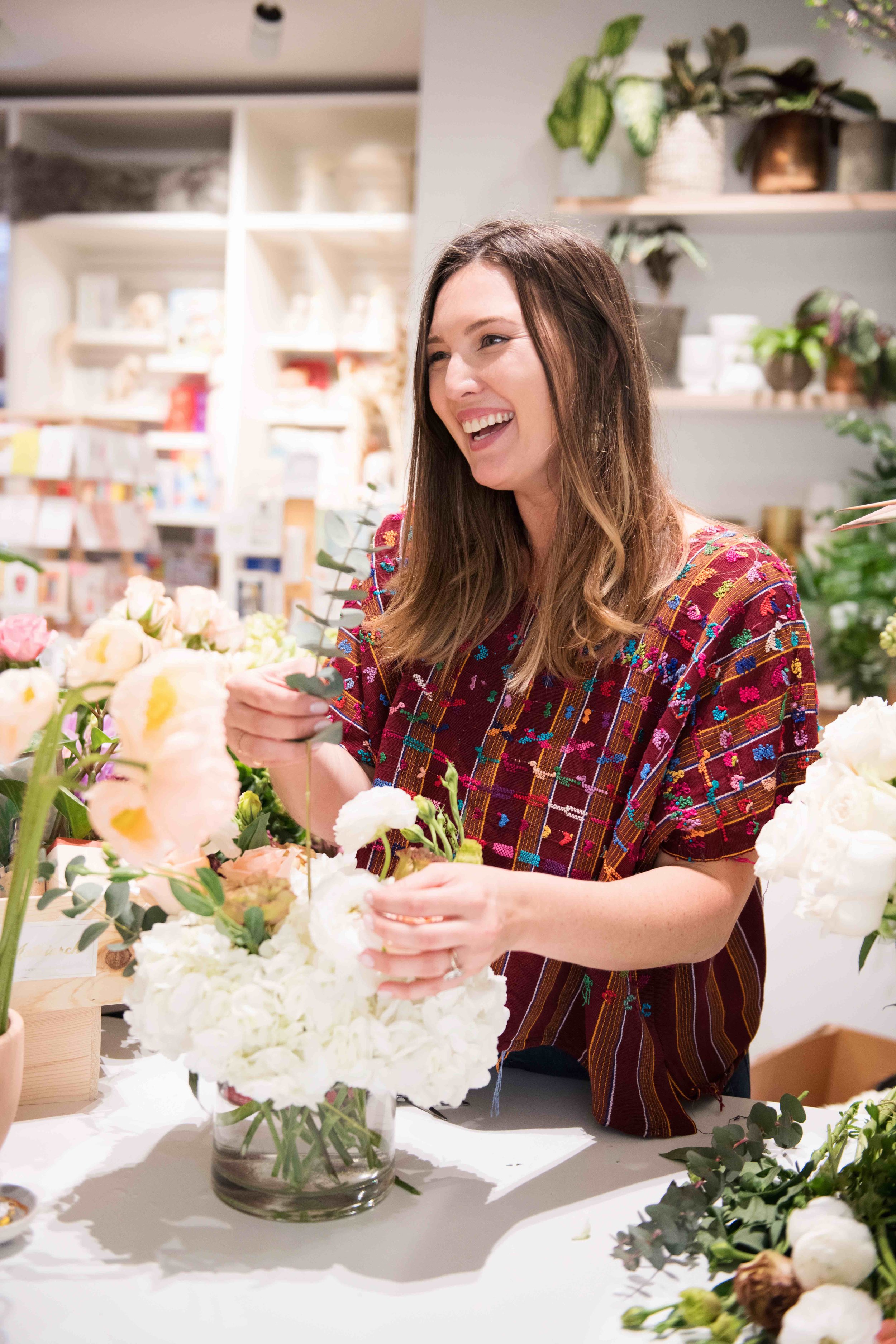
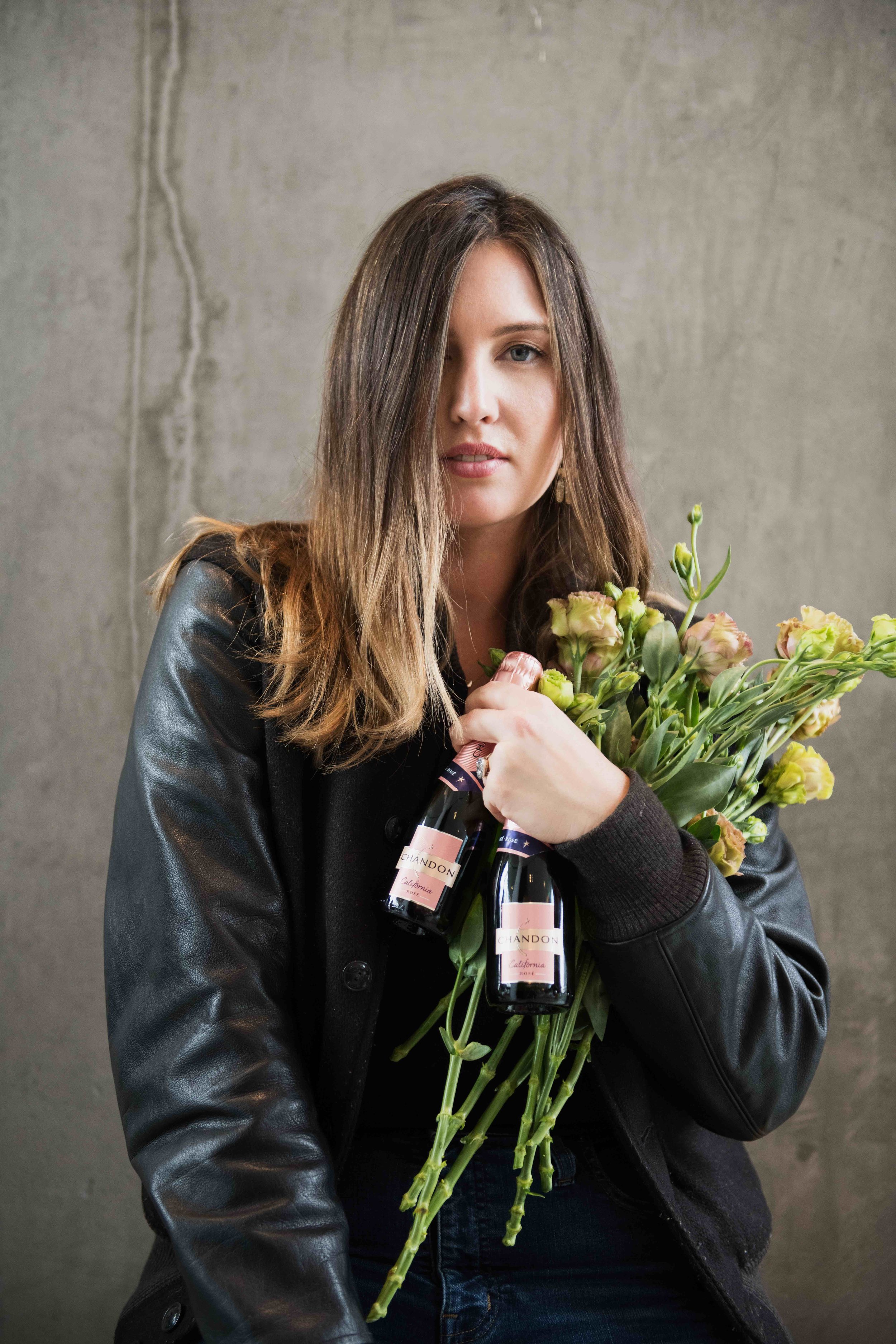

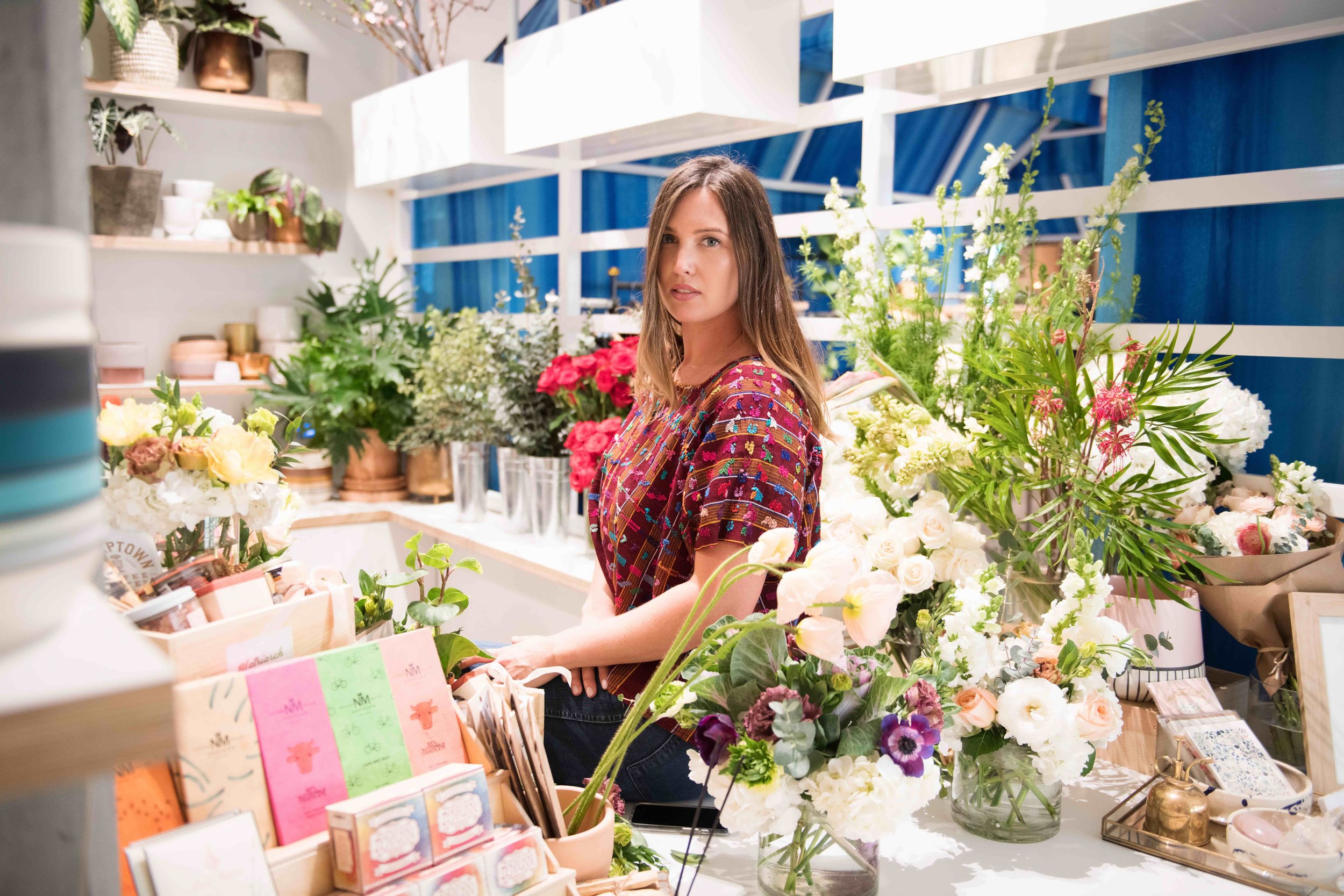
Favorite floral of the moment:
Spring is definitely here early this year and I am loving a greenery called Spirea. It is such a beautiful color and the little white blossoms are so dainty and have beautiful motion.
Flower that you’d like to see put on pause:
Gerber daisies are definitely at the bottom of my list.
Your turn! Be sure to Pop BY and visit Kelsey at Matriarch Floral in store at Fred Segal Sunset:
8500 Sunset Blvd.
West Hollywood, CA 90069
Check her out here: www.matriarchla.com
And follow along on her floral adventures here @flowergirllosangeles
Be sure to check back next month for the next installment of Poppin' By.
Photo credit: Tyler William Parker
MORE FROM OUR BLOG
Create & Cultivate 100: Beauty: Shiva Rose
THE NON-TOXIC NINJA.
THE NON-TOXIC NINJA.
Shiva Rose is holistic and happy.
Almost a decade ago Iranian actress Shiva launched her beauty platform, The Local Rose, a platform celebrating a holistic, healthy life style without sacrificing taste & glamour.
She's dealt with divorce, major health issues, including lupus and other autoimmune disorders, and the grief of being told she only had a year to live at 26, but Shiva's personal agenda and holistic messaging includes taking responsibility for her own health. And her life. She's been a fighter from the beginning. Raised in Iran until the age of ten, Shiva and her family were forced to escape to Paris. They then moved to Los Angeles, where she remains today.
Now the wellness-and-beauty entrepreneur heralds her brand Shiva Rose Beauty, which creates 100% toxic and chemical free skin, body and beauty products, handmade in California and Oregon, USA
Her book Whole Beauty is coming out next Spring.
More from the Shiva goddess below.
Name: Shiva Rose
Instagram Handle: @localrose
Business Instagram Handle: @shivarosebeauty
What does beauty mean to you?
Beauty is what we choose to see, how we choose to live, what we want to cultivate in our lives on a daily basis. The ability to see beauty in the most simple moments, and to live in that is the ultimate gift.
Do you remember a moment when you first felt beautiful?
I think I have always felt most beautiful when connected to the natural world. There have been moments when I've been soaking in some wild hot springs with dear sisters, and have felt totally divine and in my feminine beauty.
"I have always felt most beautiful when connected to the natural world."
Tweet this.
Where do your drive and passion come from?
From my connection to the source. From being in nature. From wanting a better world for my daughters.
What was the impetus for launching The Local Rose?
I started my holistic lifestyle brand before wellness was becoming mainstream. I began it 9 years ago to document my path towards healing from various autoimmune issues. I felt at the time there were not many sites that showed wellness and holistic living in a chic, modern way. I wanted to also bring some love to the many wonderful artisans and healers I was meeting.
What are your biggest fears about running a business?
I try not to think or live in fear. It's a daily practice to substitute love for fear but it can be done with conscious thinking and meditation. I would say some challenges that I do come across are having the stamina and strength to deal with the heavy load. We must create strong nervous systems so we can hold the space for success and abundance.
"I try not to think or live in fear."
Tweet this.
What's something you'd like people to know about your job that they probably don’t?
That I do most everything from writing the posts on my site and making many of my products by hand. I also handle the day-to-day dealings.
IYO-- How can we stay original when we are so saturated with other people's work?
Listen to your unique, authentic intuitive guide. Truly don't do something just to make others happy, but something that lights you up in a deeply powerful way.
Don't do something just to make others happy, but something that lights you up in a deeply powerful way.
What about your career makes you feel the most complete?
When I receive emails from people who have tried the line and see that it works for them. Also from the comments on my blog about certain stores that have touched them. My book Whole Beauty is coming out next Spring and that makes me feel pretty complete, at least for the moment.
If you had to trade jobs with anyone else in the world, who would it be and why?
To be honest I love what I do and truly don't want to trade with anyone. I would just like to create more of this and bring some healing to people in pain. I have been in the depths of despair from divorce, from health issues, from childhood traumas and I want to just let others know that there is a light at the tunnel, once you realize you are the light.
At what point in your career did you find the confidence to really take charge and become the woman you are today?
I feel it was a gradual journey where I began to listen to my inner voice and guide. I did have a light bulb moment after a Kundalini class to create my beauty line. It wasn't so much confidence, but rather deep knowing that this was something I would do. I feel when we open ourselves in meditation, our egos get out of the way and our spirits or souls will guide us.
What's the best advice you've ever been given? Or your favorite piece of #realtalk?
I Say Yes to life and life says Yes to me!
When you hit a big bump in the road, how do you find a new road or a detour?
I take a moment a feel the bump fully. I then will take some time away to refuel myself with the love I receive from mama earth and father sun. I also will try to take a Kundalini class by one of my teachers. These things will usually realign me and help me get back on my path.
What song do you sing in the shower when you’ve had a bad day?
Usually mantras! If not mantras then I love the music of Van Morrison, Dan Dyer, Zeppelin, classical and the blues.
Photo Credit: @davisfactor
Hair & Makeup: @SmashboxCosmetics @TheGlamApp @TheOuai
TO SEE THE FULL CREATE & CULTIVATE BEAUTY LIST CLICK HERE.
Create & Cultivate 100: Health & Wellness: Daina Trout
THE KOMBUCHA QUEEN.
THE KOMBUCHA QUEEN.
Daina Trout is running the kombucha game.
And yet, the CEO and co-founder of Health-Ade Kombucha, AKA the fastest growing kombucha company in the United States, spends her free (ahem, what?) time mentoring younger entrepreneurs. She says it’s an important part of the process that she didn’t have when starting her company in 2012.
Trout explains that often, after speaking with younger entrepreneurs, she'll “discover that they’re trying to have their cake and eat it too. The whole thing about being a successful entrepreneur is that there is some major risk you have to take. That’s the price of the game. Whether it’s a financial or personal risk, whatever it is, you’re taking a risk. I don’t think you’ll meet any successful entrepreneur who didn’t have the moment where they thought, ‘Oh shit, everybody is telling me this is stupid, I’m the only one who thinks this way. I have to quit my job. I have no money.’ Everybody has those stories. So when I talk to the entrepreneurs who are trying to mitigate that risk by keeping their job and their apartments, I tell them, ‘We had to live out of our car, what do you think this is?’”
Not for the faint-hearted, that’s for sure. “When they talk to me like that, I say, ‘OK, you’re not ready to start a business. Give up your apartment for four years. You can’t live the life you have from a corporate, steady and sturdy job, and also start a business. That’s the whole point.”
It's exactly what she did when she launched Health Ade with her two co-founders.
Alongside her co-founders, husband, Justin, and BFF, Vanessa Dew, the now-CEO quit her job. She calls it her most important jump. “I had steady job, where I was moving up and getting awards, to start a kombucha company in the farmer’s market,” she laughs. At first she did attempt to split her time.
For about four months over the summer of 2012 the three co-founders tried working the farmer's market circuit on nights and weekends while keeping on with their day jobs. “I was completely driving myself into a brick wall," Trout says. "I was starting to lose my mind." Adding, "And there is no physical way I could do this if I had a kid.” Noting that at the time, she didn’t.
Right around November 2012 is when the trio knew they couldn’t continue at this pace, nor were they doing at good job at either. They weren't going to expand, “certainly not into Whole Foods,” Trout shares, if they didn't commit. So in December they shook hands, made a pact, and as of January 1, 2013 they were full time Health-Ade.
More about Daina and her badass kombucha journey below.
Name: Daina Trout
Instagram Handle: @dainatrout
Business Instagram Handle: @healthade
From pharmaceuticals to kombucha takeover. We know it's been a wild ride. What's been the craziest twist on your journey?
Having a child while at the same time growing a business past its start up phase was the craziest most challenging "twist" of time at Health-Ade. Now it's a lot easier to take on, because I have more employees and processes to manage the work, and I have 2 years experience at being a mom. But when we were still a start up and he was just an infant--WHOA--was I in for a ride.
You're about to double *I think* your staff... how do you go from managing yourself to managing thousands?
We currently have 107 employees and yes, that was double how we started the year in 2017. This has both been a challenge and a blessing. The challenge: with numbers come complexity. Managing yourself, or even a small team of something like 10 employees, is a lot simpler. With less employees, you don't have to worry as much about leadership skills, communication styles, engagement, and culture. The reason is that YOU as the founder ARE the culture. So, as long as the founder is strong in these areas, the team breathes it. A larger employee number has layers, sometimes far away from the founder, so culture and leadership doesn’t just “happen.” It can easily slip away. You have to be seriously deliberate with how you build your team, your style, your values, your culture once you’re bigger. For me, I noticed a BIG difference when we passed 50 or so employees, and it helped to get an experienced lead in HR to help me tackle the right build. The blessing: with numbers comes support. More people get more work done, and we can hit our goals both strategically and quickly, without too much sacrifice to personal life.
You risked it all. Where do your drive and passion come from?
It comes from different places. In the beginning, I had something to prove...I knew I had something game-changing in me, and I needed to make my mark and show the world who Daina really could be. I got all my drive from that dream and the hustle. Now, that's not as much an influence on me--I'm good with what we've accomplished from that respect. Today it's 2 things that drive me: 1) the importance of bringing real food to the commercial shelf and being a part of this great movement and 2) my team. I am so inspired by my employees. I don't know what I did to attract so many magnificent and intelligent people, but they get me up every morning--it's an honor and a privilege to work by their side, and I don't take it for granted.
What's something you wish you had known about beverage production?
I had no idea how much money it would take. I don't "wish" I would have known this though, because it may have deterred me from starting. I don't think I could have fathomed back then how I'd raise over $30MM in 4 years. In a lot of ways, I'm glad I didn't know it then. You figure it out as you go, just like you always have.
"You figure it out as you go, just like you always have."
Tweet this.
What's something about the biz that surprised you? And you think most other people would be surprised by.
The business can be pretty cut throat. You'd think beverage and food, especially kombucha, would be hippy dippy. But it's not! It's like the wild wild west, and everyone is looking out for themselves.
It's like the wild wild west, and everyone is looking out for themselves.
What is your biggest pet peeve?
Troller law suits just out to make a buck.
What's something you'd like people to know about your work that they probably don’t?
I do my absolute best in every single moment--i give it my all--but part of being at the top means your best always has to be even better tomorrow. So I kind of always feel like I'm chasing and never there. It's lonely and tough to be proud of yourself.
What about your career makes you feel the most complete?
Hands down the people. When I see my team of 107 people truly gather around our tagline--aka my motto for life--FOLLOW YOUR GUT! and work for it and believe it and breathe it, I am in awe. That's so fulfilling.
If you had to trade jobs with anyone else in the world, who would it be and why?
Our pomegranate farmer Gene Etheridge of Etheridge Organic Farms. I miss getting my hands dirty. I love food and nature. I kind of fantasize about working the fields and harvesting fruits.
At what point in your career did you find the confidence to really take charge and become the woman you are today?
There was no inflection point where I switched. It's been more like a constant climb. Each tough experience gets me closer to the woman I was meant to be. The toughest moments in life have gotten me further along. Questions like this make me take a breather and look back at how far I've come--and baby it's fucking far! But I'm only half way up the staircase still. There's a lot more of me to come.
What's the best advice you've ever been given? Or your favorite piece of #realtalk?
Just do it. You will figure it out, just like you always have.
When you hit a big bump in the road, how do you find a new road or a detour?
The most important thing you have to do is accept that it's just a bump in the road and not a dead end. You have to accept that this is where you are, you are not a victim, you are not helpless, and there's no denying it. Once you do that, you're 99% there. Chances are, you can problem solve like a champ already, and it was just your own ego in the way of you jumping on it. Business is a game of CONSTANT detours. It's the people who can pivot the quickest and with the most ease that go the furthest.
Business is a game of CONSTANT detours. It's the people who can pivot the quickest and with the most ease that go the furthest.
What song do you sing in the shower when you’ve had a bad day?
‘Eye of the Tiger’ by Katy Perry. IT gets me re-motivated every time. Especially the "you're gonna hear me roar" part.
Photo Credit: @davisfactor
Hair & Makeup: @SmashboxCosmetics @TheGlamApp @TheOuai
TO SEE THE FULL CREATE & CULTIVATE WELLNESS LIST CLICK HERE.
Create & Cultivate 100: STEM: Leila Janah
EVENING THE PLAYING FIELD.
EVENING THE PLAYING FIELD.
If beauty is only skin deep, then lifelong social entrepreneur, anti-poverty activist, and skincare guru Leila Janah hasn’t gotten the memo.
Since founding Samasource in 2008, the visionary “impact sourcing” company has unlocked thousands of dignified digital job opportunities for people in the the world’s poorest countries. With LXMI, the ethical, organic skincare line she co-founded, Janah continues her mission of ending world poverty by providing fair wage work for marginalized East African women through the harvesting of a rare butter called Nilotica—LXMI’s signature ingredient.
For more on being a woman in tech, how men suck at introductions, and why world travel isn’t always glamorous, follow Janah’s journey below.
Name: Leila Janah
Instagram Handle: @leilajanah
Business Instagram Handle: @samasource, lxmiofficial
Both of your companies share a common social mission to end global poverty. Where do your drive and passion come from?
I knew from an early age I wanted to dedicate my career to social justice. I wasn’t quite sure what form it would take exactly, but my family was always on the front lines advocating for human rights.
It all started with my grandparents. My grandfather was one of the top trial lawyers in Calcutta. Because he grew up poor, he made a point of taking pro bono cases for tribal people who were being discriminated against and had no prayer of finding representation. After finishing university in Paris, my grandmother joined a group of friends called “The Messengers,” and traveled around the world spreading messages of peace. She finally ended up in Calcutta, and that’s where she met my grandfather.
Also, my mother worked for the Sisters of Charity when she was a teenager and my dad instilled a deep sense of social justice in my brother and me. I took the lessons to heart and in middle school joined my local chapter of the ACLU, and even started my high school’s chapter of Amnesty International.
So, you could say it’s in my blood :)
How do you feel as a woman in tech?
When most people ask what it’s like to be a woman in tech, they immediately ask if I’m always getting hit on. Truthfully, I think we’ve mischaracterized the problem. Yes, people hit on each other in business settings. Men and women alike have been the subject of unwanted sexual advances. It’s awful to feel objectified, and nothing makes that excusable.
But personally, I find being hit on far less damaging than what I feel most often: not being seen. This is true even when I’m a speaker. If I’m standing near a man, someone will inevitably come up and talk to the man, assuming I’m his plus one. And when men introduce their wives, they often leave it at that— “oh, and this is my wife, Mary.” I find myself wondering, is that all we get to learn about Mary?
"I find being hit on far less damaging than what I feel most often: not being seen."
Tweet this.
Men, please introduce the women in your life as full human beings with interesting stories, talents, and ambitions, rather than accessories. And women, if you witness a man doing what I’ve described, gently but firmly call him out. Talk to his wife, girlfriend or colleague, and play a part in making another human being feel valuable, rather than a satellite around someone else’s sun.
Men, please introduce the women in your life as full human beings with interesting stories, talents, and ambitions, rather than accessories. And women, if you witness a man doing what I’ve described, gently but firmly call him out.
How have you successfully navigated such a male-dominated field?
I think I’m still figuring out how to navigate it but the success I’ve seen comes from the mindset I’ve chosen to take on. I’m optimistic about what we’re capable of accomplishing as humans and am hopeful we can close the gap between the gender imbalance. In the meantime, I’m deliberate about taking a moment to celebrate things others would consider table stakes for a man–like a woman being appointed to a board, or raising a round of funding–as big wins for moving women forward in business.
Another important note is I don’t consider men my enemies. I receive a lot of support from men as mentors, colleagues, investors and overall champions of the work we’re doing so I choose to focus on the good that comes from those relationships.
What are your hopes for young women who are interested in STEM?
My hope is they stick with it. We need more women in STEM. I recently read a stat that about 50% of STEM college graduates are women–but that number drastically drops after graduation when they begin their careers. I think a lot of this is because we don’t have the right systems– like proper maternity leave–in place to help women thrive in these fields.
I hope to see more men take action here as well. Advocating for things like fair pay, inclusive hiring practices and equal funding opportunities would help create a more even playing field for women.
What are your bigger hopes for the world?
One of the biggest opportunities we have in reducing poverty is getting corporations to change the way they spend money. It’s said the global 2,000 companies spend 12 trillion dollars on goods and services annually. Even 1% of that spent on social enterprises would lift millions out of poverty–imagine! The fair-trade coffee providers, local food services, so many different options for people to work out how to hire low-income people. We currently aren’t incentivized to spend more on social enterprises so it’s my hope we build structure around this to incorporate these behaviors into doing business.
What is your biggest pet peeve?
It’s not really a pet peeve but people often come up to me after a talk or event and say, “Thank you...we need more people like you!” I tell them, “No, we need more people like YOU!” We’re all capable of change and the only way it’s going to happen is if more people get involved.
What are your biggest fears about running a business?
Focus is something I struggle with. My team will tell you I have a lot of ideas–for Sama or LXMI, for other businesses or things I want to try to further our mission. I travel a lot and meet so many awesome entrepreneurs with incredible ideas–it’s hard not to be inspired all the time. My default setting is to create but I have to remember to hunker down and focus on growing our current programs.
What's something you'd like people to know about your job that they probably don’t?
I think my social channels can glamorize my travel and appear as a highlight reel. I post photos of me in various parts of the world, meeting fun people and trying new things from other social enterprises. I’m incredibly grateful for those experiences and chance encounters, which is why I share them as sort of an entrepreneurial diary. What people don’t see is that the travel is constant, often over long hours–I’m usually sleep deprived, dehydrated, running on caffeine and whatever I could find at an airport to pass for food. Being away from family and friends for so long can also be a bit lonely so sharing my experiences on social media helps me feel connected.
Over the past few years, I’ve tried to make an effort to share more of the challenges I face–not just the successes. Hopefully it shows people that, just like everyone, I’m working to achieve balance and the experiences will help other people facing similar obstacles.
IYO-- How can we stay original when we are so saturated by other people's work?
I actually think it’s people’s tendency to think they aren’t original enough so they don’t put their work out there. They think it doesn’t matter. I wish more people felt confident enough to share what they create so we’d be surrounded by more perspectives and a well-rounded lens through which to view the world.
"I wish more people felt confident enough to share what they create so we’d be surrounded by more perspectives and a well-rounded lens through which to view the world."
Tweet this.
What about your career makes you feel the most complete?
I feel most complete when I hear a story about one of our Samasource agents or Samaschool students whose life has been transformed by work–someone who was able to move into safer housing, or provide better education for their kids or family members. We also often hear of agents starting their own businesses with their Sama wages–our workforce is beyond talented.
What’s more, we’ve now seen first-hand that giving work is good for society as it addresses poverty at the root, and for business as Samasource recently became self-sustainable off of earned revenue this past year. What I love most is that we’re applying our Give Work model to new industries like Machine Learning and Artificial Intelligence as well as new labor trends like the gig economy. We’re at the forefront of some of the greatest technology and economic shifts in our lifetime, and working with some of the biggest corporations who are redirecting their procurement dollars to radically transform people’s lives (nearly 60k, to date!). It’s pretty incredible.
If you had to trade jobs with anyone else in the world, who would it be and why?
That’s a tough one. I would likely be a conservationist of some kind, but I was blown away by “West With the Night,” a book by Beryl Markham. Markham was the first aviatrix (love that word) in East Africa, and she set a record flying west over the Atlantic in 1936, in the early days of aviation. Her memoir is full of gorgeous images of Africa, Los Angeles (her second home), and horses (her second love).
At what point in your career did you find the confidence to really take charge and become the woman you are today?
I think my most character defining moments have come from really challenging decisions. The most recent that comes to mind is the decision to merge Samahope, the first crowdfunding platform for medical treatments (which we launched in 2012), with Johnson & Johnson in early 2016. We funded over 16,000 critical medical procedures for women and children - things like surgeries for birth injuries that destroyed women's lives in rural Africa and Asia. Seeing the avoidable suffering that still marks people's lives in many parts of the world due to lack of basic medical care is heartbreaking.
But we realized that Sama wasn't the right organization to scale this business, and that even though we raised over $1M for the procedures, we'd never be able to scale the platform as fast as a big health organization could. It felt like giving up a baby. My cofounder Shivani and I cried about it. But I think it was the right thing to do, and because of our increased focus Samasource was able to scale much faster and help many more people. It was also a major growth moment for me as an entrepreneur.
What's the best advice you've ever been given? Or your favorite piece of #realtalk?
My grandmother once told me, simply, to, “Trust the world.”
"My grandmother once told me, simply, to, 'Trust the world.'"
Tweet this.
I also like Ben Horowitz’s, “Don’t punk out and don’t quit.” Entrepreneurship is hard. It’s so easy to give up and go do something else–to go back to a big company and make a lot of money instead of scraping by to get your idea off the ground. Emotional resilience, the ability to not quit, is probably the most important (and often overlooked) thing in entrepreneurship–more than brilliance or talent or raising a lot of money.
When you hit a big bump in the road, how do you find a new road or a detour?
I zoom out. I go look at the stars or the sea. I spend time in nature to understand my own smallness–that helps me put things in perspective. I also think meditation, prayer, or simply reflecting on the core values that brought you into doing this work in the first place are all helpful tactics in making it through a rough patch.
I zoom out. I go look at the stars or the sea. I spend time in nature to understand my own smallness–that helps me put things in perspective.
What song do you sing in the shower when you’ve had a bad day?
Probably “Work” by Rihanna. Ha ha, I talk about giving work all day so sometimes will change the line to, "Give work work work work work."
TO SEE THE FULL CREATE & CULTIVATE STEM LIST CLICK HERE.
Create & Cultivate 100: Beauty: Alli Webb
THE DISRUPTER.
REVOLUTIONIZED THE BLOWOUT.
A blowout is one of the easiest ways to feel better about yourself.
That is, if you can do it.
Which is exactly what Alli Webb, the blowout brain behind Drybar, the styling only salon first launched in Brentwood in 2010, figured out.
Prior to launching Drybar, Alli had a mobile salon. In 2008, she began a side business called Straight-at-Home, which provided in-home blowouts on a referral basis in LA. She was driving all over town, blow drying her mom friends' hair. Prior to that she was a stay-at-home mom, and the struggle of getting her own hair done, let alone clean, was all too fresh in her mind. Realizing there was a marketplace for women to get an affordable blowout, in an amazing space, and have a great experience to boot, she was on the road toward Drybar. "That was the first baby ah-ha moment when I realized that I needed to expand," she says, "because I would book up really fast." But instead of expand the mobile business, Alli knew it was time for a brick-and-mortar, well-curated experience in order to service more women. "I felt like opening a shop would allow me to create a better experience and I could oversee it better." That feeling was right.
Drybar now services 70+ locations across the United States and Canada, and has a growing product line.
More from Alli below.
When did you realize, we've really got something here?
We knew that there was something really special here. I’d like to tell you that this was my grand plan this whole time to expand this thing as big as it is now but it truly wasn’t. I was up at night doing the math to see what we could do to make the business viable but, it was really early on that we realized we were on to something pretty amazing.
You received helped from your brother to launch the first storefront, was that an easy convo?
You know, people want to support people who they believe in. My brother had been watching my little mobile business on the sidelines, and he was like “Oh this is a good idea, it sounds very interesting.” I feel like I got really lucky. My brother has been very successful in his own right working at Yahoo. I knew nothing about raising money or how any of that works when I first started. There were a lot of conversations and talking him into it, but he came to me and said, "Hey, I’d be willing to put up the majority of the money and you guys will have sweat equity," which was a term I didn’t even know at that time. So, I learned. And my husband, Cameron and I did end up putting in, basically our life savings, which wasn’t very much. Michael put in about $250,000 and we put in about $50,000 which really isn’t even that much, but it was all we had.
How did you begin to bran the company once you had funding?
Look, you need to get it as right as you can in the beginning, because you only get one chance. We all felt so strongly about how to unveil this thing-- with tremendous customer service, amazing branding, and the blow out. It just all came together. We knew what we wanted from a successful business launch. Also aesthetically I didn’t want one person having a blue dryer, one person having a red dryer. There were all these little things that I thought about constantly-- like removing the mirror so that the customer could have that big reveal. My head was deeply wrapped around the whole experience.
How does it feel to have disrupted the industry?
We never thought of it as a disruptive business. I was betting on the fact that there were enough women like me out there, with naturally curly hair, that were already figuring out where to get blow outs. Again, never meant to be disruptive. So when people started to say I changed the industry a year into it, I was like “Oh shit! We did change the industry!"
Growing up, my brother I watched our parents run their own businesses. So we had a, “Let’s start our own business mentality!” But we also thought, “Let’s treat people really good, and do this amazing thing.” That was it. In the back of my mind we hoped it would catch on and we would continue to grow. I don’t think any of us knew how big the opportunities were going to be.
Were you ever nervous or scared?
I remember feeling, nervous and worried that other salon owners would hate me that we did this. We started taking away their blow up business. But we were like, but listen, we’re going to send you color business because women want both and it’s good for everybody.
I remember the first time we met Chris McMillan. He came up to me and told me like what a big fan he was and I almost passed out. He was somebody that I’d grown up admiring.
"If it’s fun it won’t feel like work."
Tweet this.
What do you think is your secret weapon?
I really think it’s kindness. I try to be really nice to everybody all the time no matter who they are or what their situation is. I wish everybody was like that. It’s just so much easier to be nice and I’m shocked when people aren’t. I was raised on the philosophy of treat people how you want to be treated.
What is your day-to-day like?
One of the ten core values of Drybar is "have fun." I really do feel like the people that you work with are almost like your family and they’re the people that you’re with more than anybody else. You have to find them enjoyable or it’s just not worth it. I’m a huge believer in that and I say when I’m at my office that I like there to be a certain amount of silliness and fun-- I think it brings out the best in people. People want to work somewhere fun and you want to be excited to go into your job. I know it's so cliche but if it’s fun it won’t feel like work.
Photo Credit: @davisfactor
Hair & Makeup: @SmashboxCosmetics @TheGlamApp @TheOuai
TO SEE THE FULL CREATE & CULTIVATE BEAUTY LIST CLICK HERE.
Create & Cultivate 100 Philanthropy: Ty Stiklorius
TIED UP IN GOODNESS.
TIED UP IN GOODNESS
What can't this woman do?
The daughter of an immigrant father, Ty Stiklorius, says her dad had expectations for his daughter to be James Bond meets Lauren Bacall meets Super Woman.
Seeing as Marie Claire just named her one of their "Women Changing The World" on their annual New Guard 2017 list and Fast Company named her on of their Creative People of 2017, for combining traditional management services with social activism, we'd say she's come close to hitting that target.
The founder and CEO of Friends At Work, a media and impact agency that partners with leading artists and thinkers, FAW launched in 2015 and manages artists and influencers including John Legend, Lindsey Stirling, Fletcher (C&C 100 honoree) and Madame Gandhi (also a C&C 100 honoree). Alongside Legend, Ty is one of the principals of Get Lifted Film Co., production company based in Los Angeles. Under the Get Lifted banner, the trio has served as Executive Producers on the HBO documentary “Southern Rites,” WGN’s hit series “Underground” and the award-winning film “LaLa Land.”
With an MBA from The Wharton School of Business and a BA from The University of Pennsylvania, she's using her brains and badassery for good.
More from Ty below.
Name: Ty Stiklorius
Instagram Handle: @Stiklori
Business Instagram Handle: @FriendsAtWork
Can you chat us through the inception of Friends at Work?
I had been a manager for over a decade focusing on helping artists thrive but within other people’s infrastructures. At 40 I realized it was time to own my ambition and launch my own company so that I could execute on a big vision for something beyond a management company with better services, more focus on wellness and social impact, more transparency, more creative services & business development and overall a better focus on long-term sustainable artistic development. And not just with musicians but with leaders of all kinds - astronauts, civil rights leaders of our time, etc.
"At 40 I realized it was time to own my ambition and launch my own company."
Tweet this.
What was the moment you knew it was time to launch something of your own?
It wasn’t one moment. It was a long process of building my experience, relationships, and confidence to take the lead. Starting a company is a big responsibility. I knew that when I did it I couldn’t fail my artist partners or my team. I knew I had to be ready, have the right funding, vision, and mix of the right team to be better than what I had seen elsewhere. It’s an iterative process of improving. But when my contract was up at my old company I knew I was ready to leave and start my own company.
Where do your drive and passion come from?
I cultivate goosebumps. I lead with heart and passion. I stay in an inspired zone. I have always been that way. The drive is likely informed by a combo of my education, upbringing and my immigrant father’s expectations for me to be James Bond meets Lauren Bacall meets Super Woman.
My immigrant father had expectations for me to be James Bond meets Lauren Bacall meets Super Woman.
What does it mean to be a social impact company?
It means we prioritize making a positive impact on the world. We only work with artists and leaders who want to use their platform to create positive change and help others.
Do you think you've found your true calling?
In some ways, but I am constantly evolving and honing what that is. I think it changes as a human being evolves.
Who are some of the people who have championed your work?
John Legend. Dave Wirtschafter and Brent Smith. Troy Carter. Gary Gersh. Erik Flannigan. Kevin Mayer. Priya Chordia and Greg Propper. Rob English. Lindsey Stirling. Adina Friedman. Chuck Ortner. Sylvia Rhone. Jonas Stiklorius. Aaron Rosenberg. Mike Jackson. My Dad and Mom and old friends. You need a lot of people to believe in you and support you. Being an entrepreneur who is taking a leap & trying to change the world is not easy.
In addition to FAW you work with John Legend to launch #FREEAMERICA. What about incarceration policies drew you to the cause?
John and I had worked to improve K-12 education for many years. We launched The Show Me Campaign in 2007 with that aim. We believed that a good education was the path to success. But in our work we kept bumping into the school to prison pipeline. We saw places in the US where kids were more likely to end up in jail or prison than college. We were involved in a lm by Eugene Jerecki titled “The House I Live In” about the failed war on drugs. We helped promote the lm and screened it at churches. John Lewis helped too. It woke us up. Then John Legend suggested I read Just Mercy by Bryan Stevenson and The New Jim Crow by Michelle Alexander. Those books changed us. We started learning more about how the United States is the most incarcerated country in the world. And at one point I said to John “you need to do a Johnny Cash and perform at prisons and jails around the US and draw attention to this issue.” A couple months later we had put together a team to help us do just that and we launched #FREEAMERICA. John has performed at jails in Texas, juvenile detention centers, max security prisons, a women’s correctional facility in WA, at immigration detention centers and has visited a prison in Portugal. We humbly listened to and learned from people affected by the system. And we helped tell their stories. That’s evolved into constantly honing our strategy to fix our broken system, to raise awareness, to focus on various strategies to reduce our prison and jail populations and to focus on rehabilitation rather than punishment.
Are there any fears associated with your work? If yes, what are they?
I am aware of risks and dangers, but rather than be fearful, I prefer to come up with strategies to address them. For example, these horrific shootings that have happened at live concerts are frightening, but the first thing I want to do is figure out how to be helpful, how to help us heal and come up with strategies so it won’t happen again. I try not to let fears overwhelm me.
What's one of the most culturally transformative evenings you've ever had?
Once I danced at the White House till around 1 am. Obama came out and danced with everyone. Questlove was to my left. Dave Chappelle was to my right. Tears were flowing. It was one of the biggest moments of joy, celebration, and happiness I’ve ever experienced. I can’t even explain how great that night was and how culturally transformative it was. To see the White House celebrating this moment of community, love, achievement.
What's something you'd like people to know about your job that they probably don’t?
It requires a lot of creativity and an ability to stay optimistic. I’ve heard managers say, “I am not the creative person, I couldn’t pick the single if I tried.” The best managers are deeply creative people who help their artists learn about why Bruce Springsteen is so great and worthy of deep study. The best way to stay in a creative flow space, work out of the Hammer museum once a week and never let the brilliance of life get dull.
"Never let the brilliance of life get dull."
Tweet this.
You work on so many projects and campaigns. What about your career makes you feel the most complete?
Not sure what it means to feel complete. But to me, I guess that feeling comes from my family, from love, from our FAW team, from having had a lifelong friendship with John Legend, with seeing Lindsey Stirling thrive and achieve her dreams, with having a bigger outlook on what we can achieve beyond ourselves.
If you had to trade jobs with anyone else in the world, who would it be and why?
I have always wanted to be a painter. Maybe Picasso or Georgia O’Keefe. How cool to paint all day long!
At what point in your life did you find the confidence to really take charge and become the woman you are today?
It’s a process, not one point. It took years and years.
What's the best advice you've ever been given? Or your favorite piece of #realtalk?
Don’t pre-suffer. Don’t worry. Work!
When you hit a big bump in the road, how do you find a new road?
I hunker down with friends and we dream up some new dope shit to do. I meditate. I do the daily practices that keep me in a good healthy positive space. Big bumps are actually smaller when you know how not to inflate them.
What song do you sing in the shower when you’ve had a bad day?
Ella Fitzgerald & Louie Armstrong’s “Let’s Call The Whole Thing Off,” or any song on Burnin’ by The Wailers.
Photo Credit: @davisfactor
Hair & Makeup: @SmashboxCosmetics @TheGlamApp @TheOuai
TO SEE THE FULL CREATE & CULTIVATE PHILANTHROPY LIST CLICK HERE.
Create & Cultivate 100: Food: Lindsay Jang
THE SHARPEST SKILLZ.
THE SHARPEST SKILLZ.
Growing up in Alberta, Canada, Lindsay Jang, started bussing tables at 11 at a Chinese restaurant called Golden Captial.
Her whole family worked there. She learned the value of hard work early, but she didn't find her calling until years later. After dropping out of both art school and management school, she moved to New York, got a job at Nobu and finally felt at peace. That was 2004. She kept hustling. In 2009 her and business partner Matt Abergel, moved to Hong Kong. They kept honing their skills, both in love with prep of Japanese cooking and yakitori.
While Matt worked, Lindsay wrote the plan for Yardbird, their modern izakaya and yakitori restaurant. The created the space they wanted to go on Sundays. They created their dream. And the energy they put into Yardbird was immediately evidenced by the flocks who lined up outside to taste. Wait times were legendary. Within weeks they became one of Hong Kong's most-hyped restaurants. Hype hasn't slowed down.
At the end of last year, Yardbird spread its wings, migrating from Bridges Street to Wing Lok Street, adding lots of extra space. Yardbird is not her only venture.
Lindsay has impressively earned success across multiple verticals—the restaurant industry with Yardbird, Ronin, and Sunday’s Grocery, the media world with MISSBISH (a site for street wear media for girls/female driven platform), and fashion via the MISSBISH label.
Next up, Lindsay introduces Hong Kong favorite Yardbird to the West Coast with the opening of the Downtown L.A. restaurant, which will be named Birdyard, followed by the launch of MISSBISH’s Los Angeles office in 2019. Apparel available now at shopmissbish.com.
Woah LJ. We're so into it.
More from Lindsay below.
Name: Lindsay Jang
Instagram Handle: @lindsayjang
Business Instagram Handle: @missbish and @yardbird
You started bussing tables at 11. So where do your drive and passion come from?
My parents taught me the meaning of work ethic at a very young age and I attribute all the opportunities I've had to the simple acts of keeping my head down and working hard.
You've said that Yardbird is your dream space. That you imagined and opened the spot you'd want to go on Sundays. Now that you live in that dream, what's it like?
It's more amazing than I ever could've imagined. It has evolved into a global community of wonderful people. I get to work with the best in the business day in and out. I couldn't be more excited for what's to come.
What is your biggest pet peeve?
Dishonest, ego-driven people.
You changed the HK restaurant scene. But people are always adverse to change. (i.e. someone telling you that you'd never survive with a "no reservations" policy). How do you listen to the naysayers or those that don't agree with you and stick to your guns?
I don't listen. LOL.
What do you think is more important in business: the numbers or the gut decisions?
Initially your gut and then finding the balance between how you feel and what makes sense from a business perspective.
What are your biggest fears about running a business?
Growing to a size where I don't know my core team intimately.
What's something you'd like people to know about your job that they probably don’t?
It's all about your team. Nothing happens autonomously.
"It's all about your team. Nothing happens autonomously."
Tweet This.
IYO-- How can we stay original when we are so saturated with other people's work?
Trust your instinct and be daring to try something different. Hire young talent and listen to them.
What about your career makes you feel the most complete?
The ability I have to help other people grow.
If you had to trade jobs with anyone else in the world, who would it be and why?
Oprah. She gets to inspire and nurture people every day while defining her own path and means to an end. She has conviction, talent, and a huge heart.
At what point in your career did you find the confidence to really take charge and become the woman you are today?
I think I've always been the person I am today, I've just been given more opportunities as I've gained more experience.
What's the best advice you've ever been given? Or your favorite piece of #realtalk?
Work with people smarter than you.
When you hit a big bump in the road, how do you find a new road or a detour?
I don't dwell on the mistake or failure. I just go into problem-solving or moving forward mode.
I don't dwell on the mistake or failure. I just go into problem-solving or moving forward mode.
What song do you sing in the shower when you’ve had a bad day?
I have a terrible voice. Even I don't like to hear it. LOL.
We recommend singing and dancing throughout the day as a preventative measure to bad moods.
TO SEE THE FULL CREATE & CULTIVATE FOOD LIST CLICK HERE.
Why Ban.do's CCO Says There's No Shame In The Hustle Struggle
Pursuing your passion isn't all glitz + glam.
Our girl Jen Gotch is back with her business advice series. This week, the CCO of ban.do + breakout star of Instagram stories is answering your burning questions on the infamous work-life balance. One of our favorite pieces of gold from JG? "There shouldn't be any shame in the struggle of doing what you LOVE!"
Check the videos below for more gems on pursuing your passions!
Q: HOW DO I PERSEVERE TOWARDS MY GOALS + BALANCE CAREER AMBITIONS WITH MENTAL HEALTH/STRESS?
Q: HOW DO YOU PREVENT YOURSELF FROM BURNING OUT?
Jen also designed a super soft, short sleeve t-shirt as a little tribute to her advice series and 15% of the proceeds will be donated to writegirl, an la-based creative writing and mentoring organization that promotes creativity, critical thinking and leadership skills to empower teen girls.
Why This CEO Says You Have to Risk It All
Sorry. There's no half assed entrepreneurship.
Would you quit your job and risk it all for your business?
That’s what Daina Trout, CEO and co-founder of Health-Ade Kombucha, did in 2012. During graduate school at Tufts University for Nutrition, Trout discovered her love for holistic and fermented foods. But when she found herself climbing the corporate ladder of a pharmaceutical company in her late twenties, she felt her career going a little sour. And not in a healthy kombucha way.
Rather, Trout was coming home at night in tears from a corporate job that left her "feeling so unfulfilled." Though she was “moving up the corporate ladder and doing pretty well,” she explains, “I’m somebody who doesn’t even take Tylenol. So to work for a pharmaceutical company was weird. I was a number. It was very red-tapey and I was particularly rebellious. There were 100,000 employees there and I wanted to be a leader. I felt like I had it in me to do that.”
"I wanted to be a leader. I felt like I had it in me to do that.”
Tweet this.
Alongside her co-founders, husband, Justin, and BFF, Vanessa Dew, the now-CEO quit her job. She calls it her most important jump. “I had steady job, where I was moving up and getting awards, to start a kombucha company in the farmer’s market,” she laughs. At first she did attempt to split her time.
For about four months over the summer of 2012 the three co-founders tried working the farmer's market circuit on nights and weekends while keeping on with their day jobs. “I was completely driving myself into a brick wall," Trout says. "I was starting to lose my mind." Adding, "And there is no physical way I could do this if I had a kid.” Noting that at the time, she didn’t.
Right around November 2012 is when the trio knew they couldn’t continue at this pace, nor were they doing at good job at either. They weren't going to expand, “certainly not into Whole Foods,” Trout shares, if they didn't commit. So in December they shook hands, made a pact, and as of January 1, 2013 they were full time Health-Ade. “I remember that first day we showed up, January first and realized, ‘Oh shit, there is no paycheck coming. And we have no money.’ Maybe 600 dollars. It was really dumb in a lot of ways when you look back at it on paper. I don’t know if you have to do it like that, but for us, this is our story.”
"We’re not cautious people. If an account wants to carry Health-Ade I don’t see how I could say no. And that’s the beautiful thing about being able to paint your own canvas: We get to make the choice and we deal with the impact."
She says from the beginning they set the pace at turbo. "We’re not cautious people. If an account wants to carry Health-Ade I don’t see how I could say no. And that’s the beautiful thing about being able to paint your own canvas: we get to make the choice and we deal with the impact."
During the startup stage, it was high impact all the time. “Those next two years were the toughest," she says. "Physically tough. We were manufacturing and brewing kombucha. Who do you think was carrying the cases around the brewery? Delivering it to stores? Working the farmer’s markets? It was us. I was in the best shape of my life, but physically and emotionally taxed. There would be times I would take a walk, look up to the sky and look for any kind of sign that I had an ounce of sanity in me.”
Health-Ade is now a national brand and report being the fastest growing kombucha company in the U.S. Something Trout calls, “a crazy ride,” but for now she’s “on the horse and it’s exciting.” In 2016 they raised more than $7 million in venture funding from CAVU Venture Partners.
This year alone the company is seeing 4x growth, which many companies never see. “But it’s hard,” she says. “There is a misconception out there that it's glamorous,” Trout says of starting a business. "We had to dedicate our entire life. It’s almost like having a child,” shares Trout, who is now the mother of a two-year-old.
And yet, she says, there is a lot of positive. "I had to start this business. I had no choice in a way. It was a voice within telling me 'There is something bigger out there for you. You’re going to regret this your whole life.' Now I can make my own rules and it is so incredibly fulfilling at the end of the day, no matter how bad of a day I’ve had I never go to bed thinking ‘I don’t want tomorrow to come,’ or wake up the next morning thinking, ‘Oh my God, I don’t want to go to work.’”
The CEO says the closest thing to the entrepreneurship highs and lows is being mother for the first time. “I’m 36 and have had a lot of experiences, and nothing in my life has come even close to starting a business, except for having an infant."
"Nothing in my life has come even close to starting a business, except for having an infant.”
Tweet this.
Like motherhood, Trout says, "You eventually come to terms that you need to find your own way. Follow your instincts. Starting a business is very similar. I had to find confidence in myself and my decisions. Once you get the confidence, it’s over. It’s a complete confidence game. I think that’s why men traditionally have been better at this. But women are realizing, ‘Hey we’re fucking awesome too and we can do this. That’s all it is.”
Doing it they are. “This year we’re going to sell two million cases.” Considering five years ago the co-founders were making the product by hand with siphons in their tiny apartment closet, "lucky to make 60 cases per week," to sell “two million is insane and really cool." That means the pace hasn't slowed down, nor has the uncertainty. "We’re running this thing really fast right now. And it’s a discomfort zone.” All the time Trout says.
But it all comes back to the company's tag line: Follow Your Gut, which the CEO jokes everyone assumes is about the gut-positive health benefits of probiotics. While that's fitting, it’s also not the case.
To risk it all, Trout and her co-founders really had to trust their own instincts. “It has to do with how we started this business: you surrender to the fact that nobody is going to give you the answer. You hold the paintbrush. And the sooner you realize that, the more you can paint. Our whole lives we’ve always had someone to assist us with that paintbrush. A manager or a teacher, someone you can call on. Maybe you don’t realize that you’ve gone through life painting with assistance or painting by numbers. The reality is, starting a business is like a huge blank canvas where nobody knows what you want to paint, but you.”
Arianna Schioldager is Editor-in-Chief at Create & Cultivate. You can follow her @ariannawrotethis.
MORE FROM OUR BLOG
Dream Careers: This Woman Rode a Great White Shark
And five other local Hawaii women crushing it.
photo credit: Pexels
We love the beach as much as the next Cali-girl. But do you know what we love more? Women who are making waves.
That’s right. Ladies who are blue crushing their dreams and aspirations. And since we’re heading to Maui for a fab pop-up at the newly revamped Marriott Wailea with Kelly Oxford, Sophia Rossi, Grasie Mercedes, Whitney Leigh Morris, Carley Rudd and Barefoot Blonde, we wanted to dig into some local Maui women living out their career dreams in paradise.
To join us for our #CCxMarriott popup in Maui on May 20th, hit the link at the bottom of the article to RSVP. First come, first served a Mai Tai.
1. Marissa Eveland and Melissa Jasiny
This Maui-based duo are the co-founders of Issa de’ mar, a swimsuit line that began with a passion for hand-sewing their own swimwear and testing it on the local female surfers to make sure it could stand up to the elements. It did... and locals couldn’t love it more. The line, named after the founders’ combined nickname, “The Issa’s,” paired with the Hawaiian saying for “of the sea,” launched in March 2013. At first they sold suits out of a tiger painted ice cream truck with Roam Hawaii, a mobile marketplace they started with their closest friends. Word began to spread across the island that there were swimsuits that didn't sacrifice on look or North Shore performance. And while the duo may have at first experienced many late nights and tears when hand-sewn pieces didn’t fit as expected, everything is now moving along swimmingly. The brand is currently sold in major retailers everywhere from Hawaii to the Netherlands, proving fashion meets function swimwear is a radical market.
2. Ocean Ramsey
Growing up surfing and driving, Ramsey has always been close to sharks. Whether swimming alongside of them, studying them extensively, or educating others about their existence, sharks of all shapes and sizes hold a special place in her heart. Ocean has made it her life’s work to understand these often misunderstood and feared creatures. She takes daily free dives with sharks (in the open ocean), and now owns two local businesses that are centered around exposing locals and tourists alike to these ocean creatures. She has also hosted a TED Talk titled “How sharks affect us all”.
3. Kimi Werner
A United States National Spearfishing Champion, a certified culinary chef, and an award winning artist, Kimi is a seemingly fearless babe who draws her life’s inspiration from the ocean. Known most readily as the woman who rode a great white shark (literally, here’s proof), we greatly admire her courage for tackling the impossible. Born in Maui, Werner is an accomplished spearfishing champion, but after years of competition, she quit the sport to focus on free driving and enjoying the ocean more holistically.
4. Chef Bev Gannon
Beverly Gannon is one of Maui’s most popular chefs. Born in Dallas, TX, Bev is a local culinary master and owner of several different restaurants on the Island. She is head chef at the Hali’maile General Store and as a result of her successful leadership, is also the author of a popular cookbook: “The Hali’imaile General Store Cookbook. As one of the OG chefs credited with the development of Hawaii regional cuisine in the ‘90s, Chef Gannon is a James Beard award winner.
5. Coco Ho
A member of the the Pro Surf Tour, Coco Ho is a local legend. Born in Honolulu, Coco began surfing at the age of 7. (NBD.) She was the champion at both the 2014 Los Cabos Open Of Surf WQS 6 Star and the 2014 Oceano Santa Catarina Pro WQS 6 Star. Coco has been voted top three in Surfer Magazine’s fan favorite surfer poll. And the pro surfer posed naked for ESPN The Magazine's Body Issue, 2014 saying, “I want people to be able to embrace being strong. It is feminine and it is beautiful.” Mahalo and cheers to that.
Want to attend the event? RSVP here! Space is limited.
MORE FROM OUR BLOG
Scene & Overhead: Exclusive BTS of Our Kickoff Create & Cultivate NYC Brunch
The conference was a smashing success. But first, we brunched.
photo credit: Tory Williams
We kicked off our magical #createcultivateNYC week with a boss brunch in the city thanks to our friends at Tinder. There's nothing quite like coffee, mimosas, and stacks of Little Park pancakes to get the conversation going.
Create & Cultivate CEO and founder, Jaclyn Johnson, kicked off the morning festivities with a personal tidbit-- the newlywed met her (now) husband on Tinder. Which, of course, brought up the changing times and success stories!
Lauren Probyn, Tinder's Director of Marketing Events, chatted about the increasing rate of success stories and how the company is starting to see the first wave of what they've dubbed "Tinder Tots." (AKA kids born to Tinder matches.)
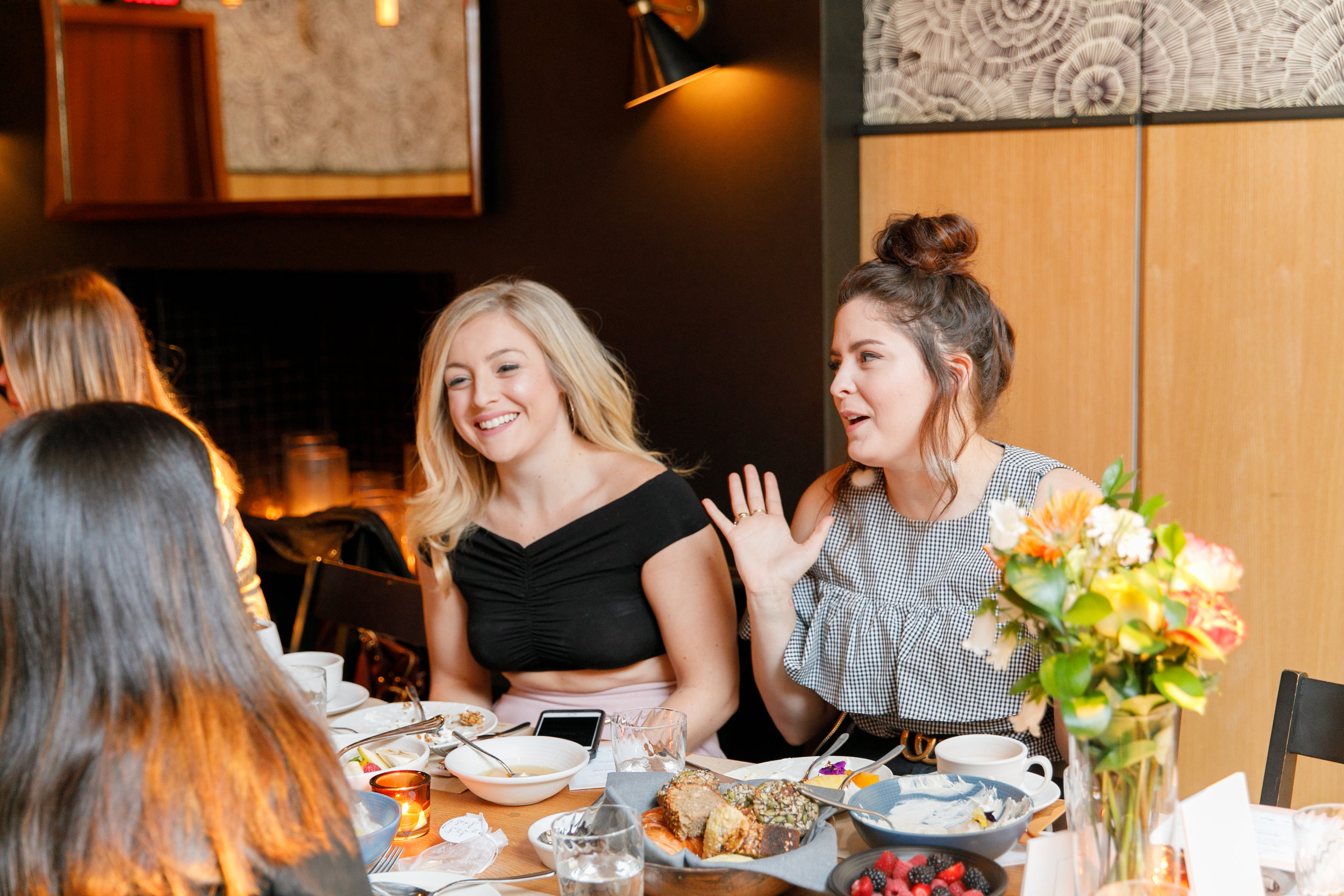

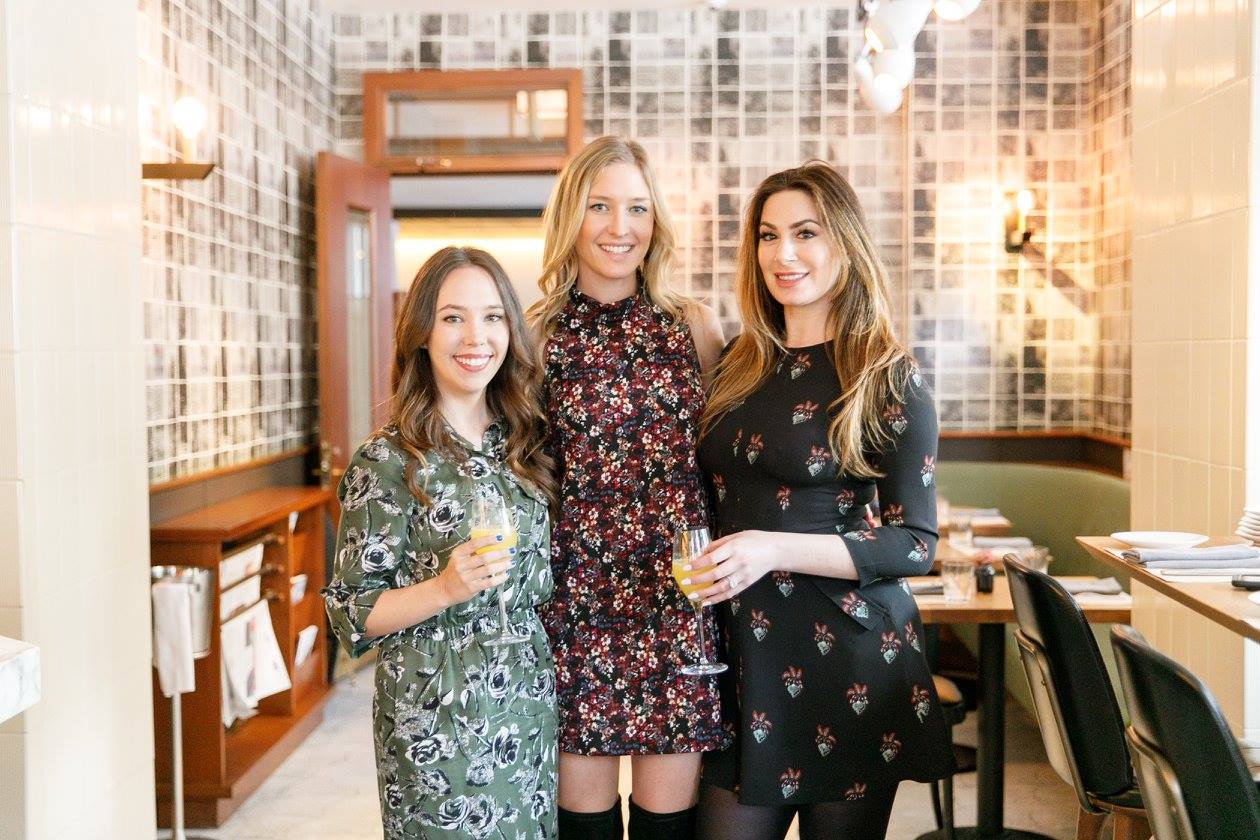
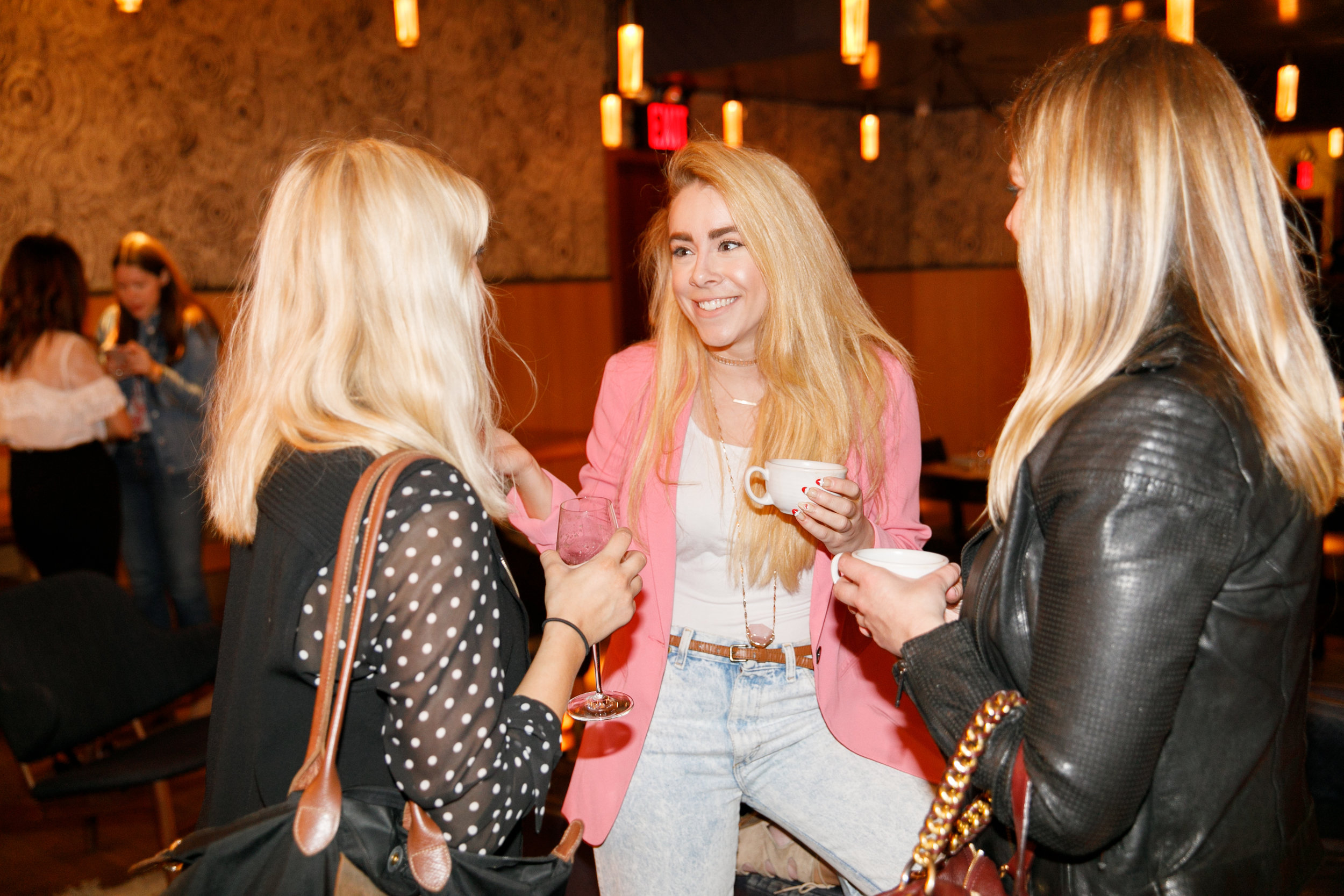
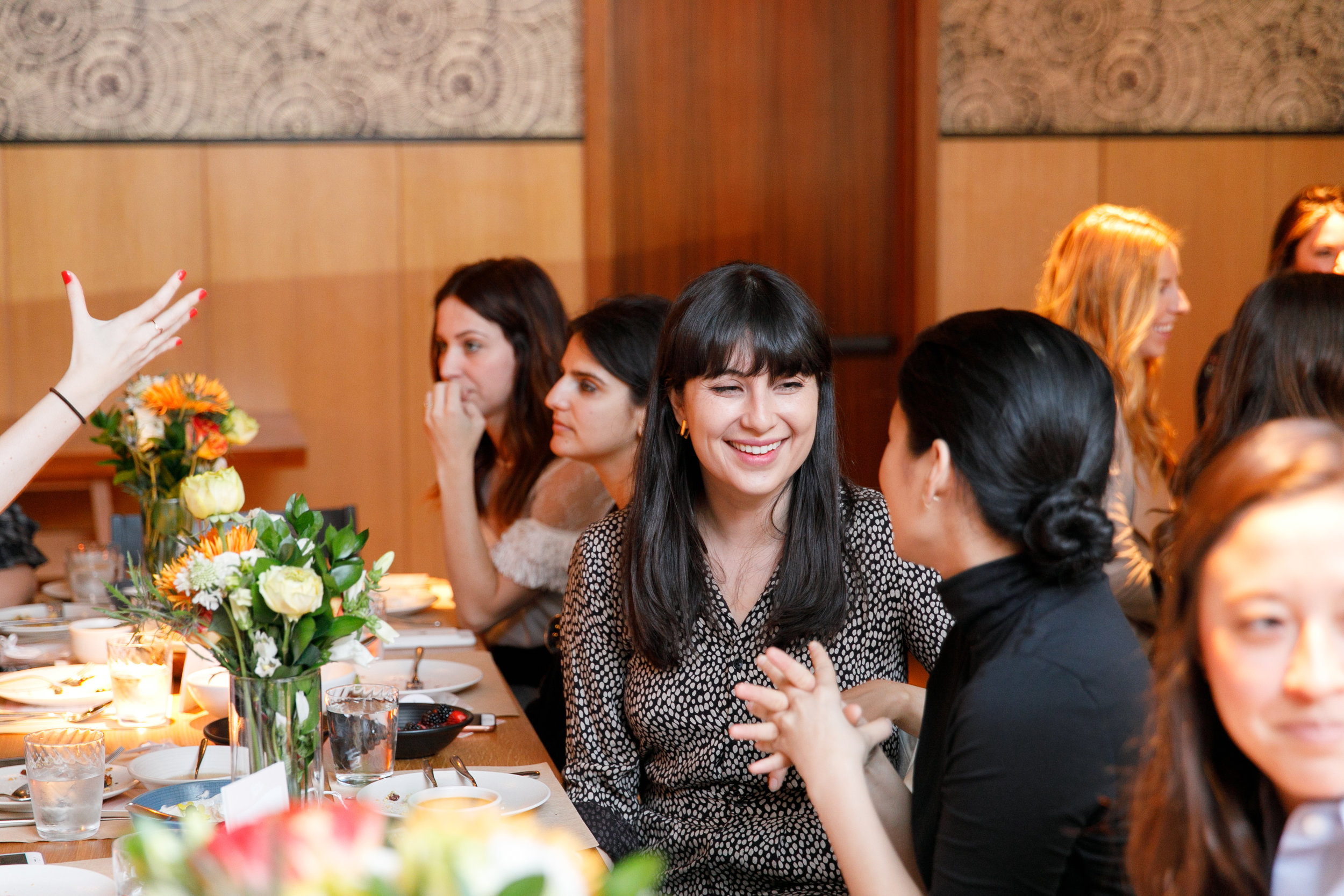
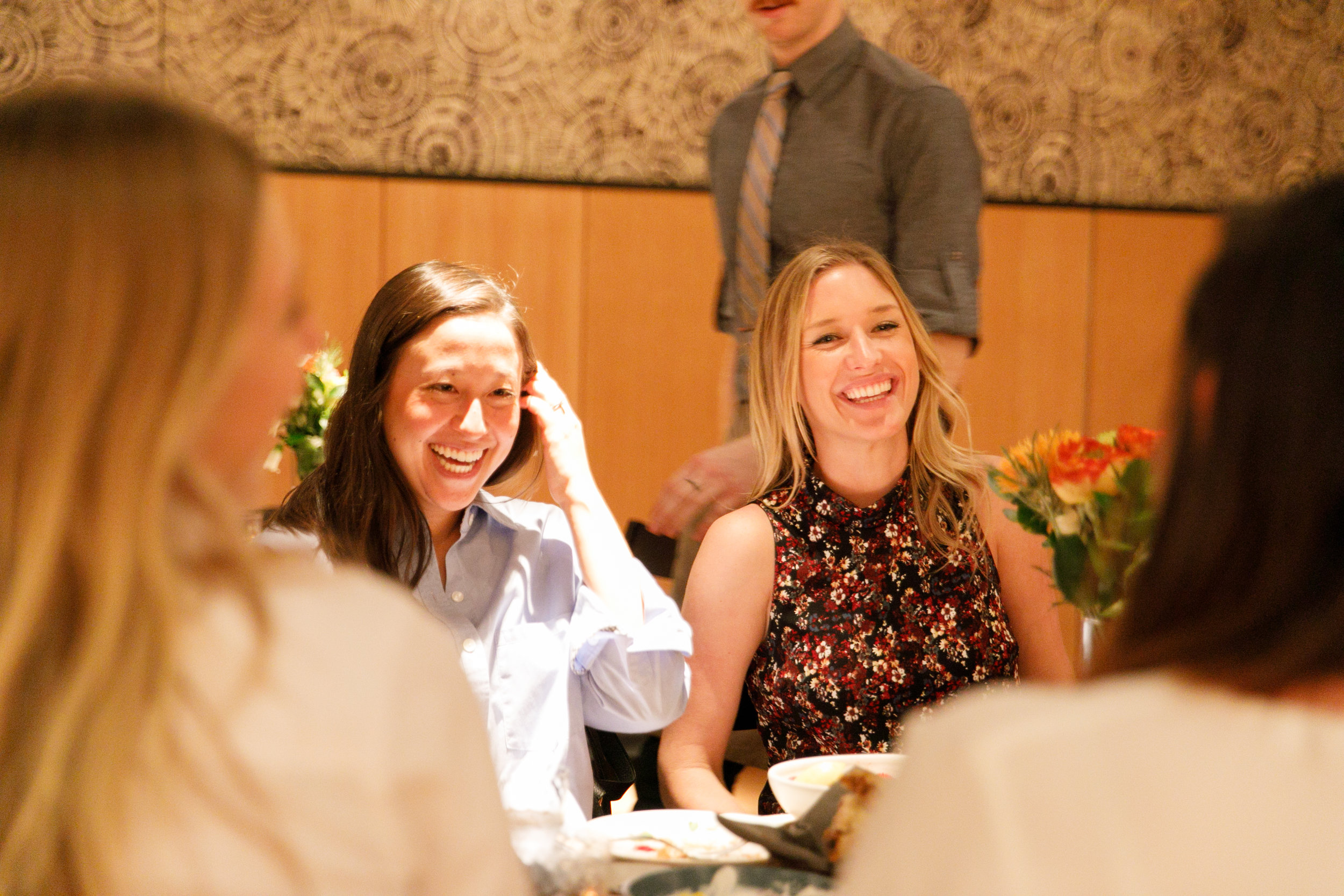
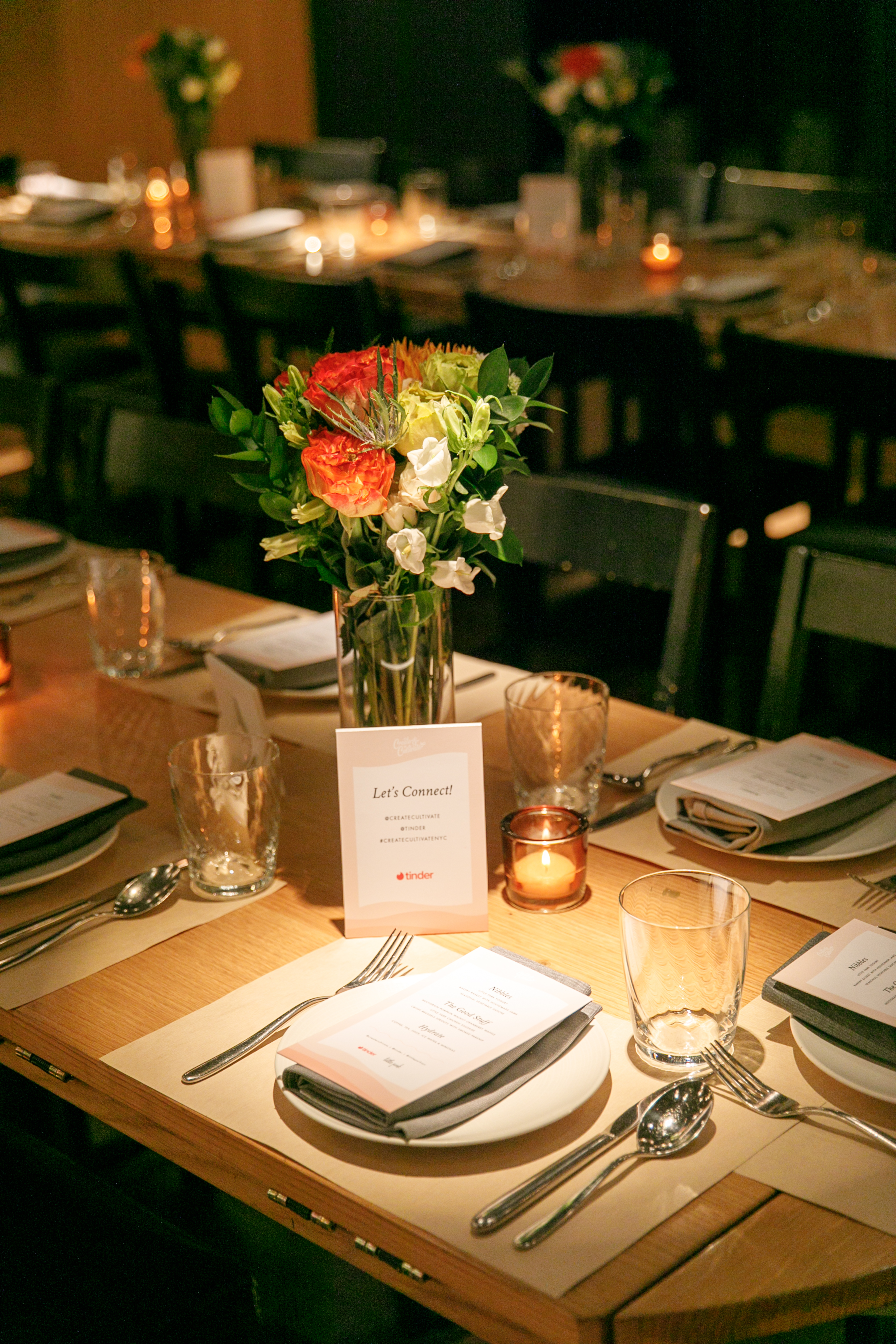
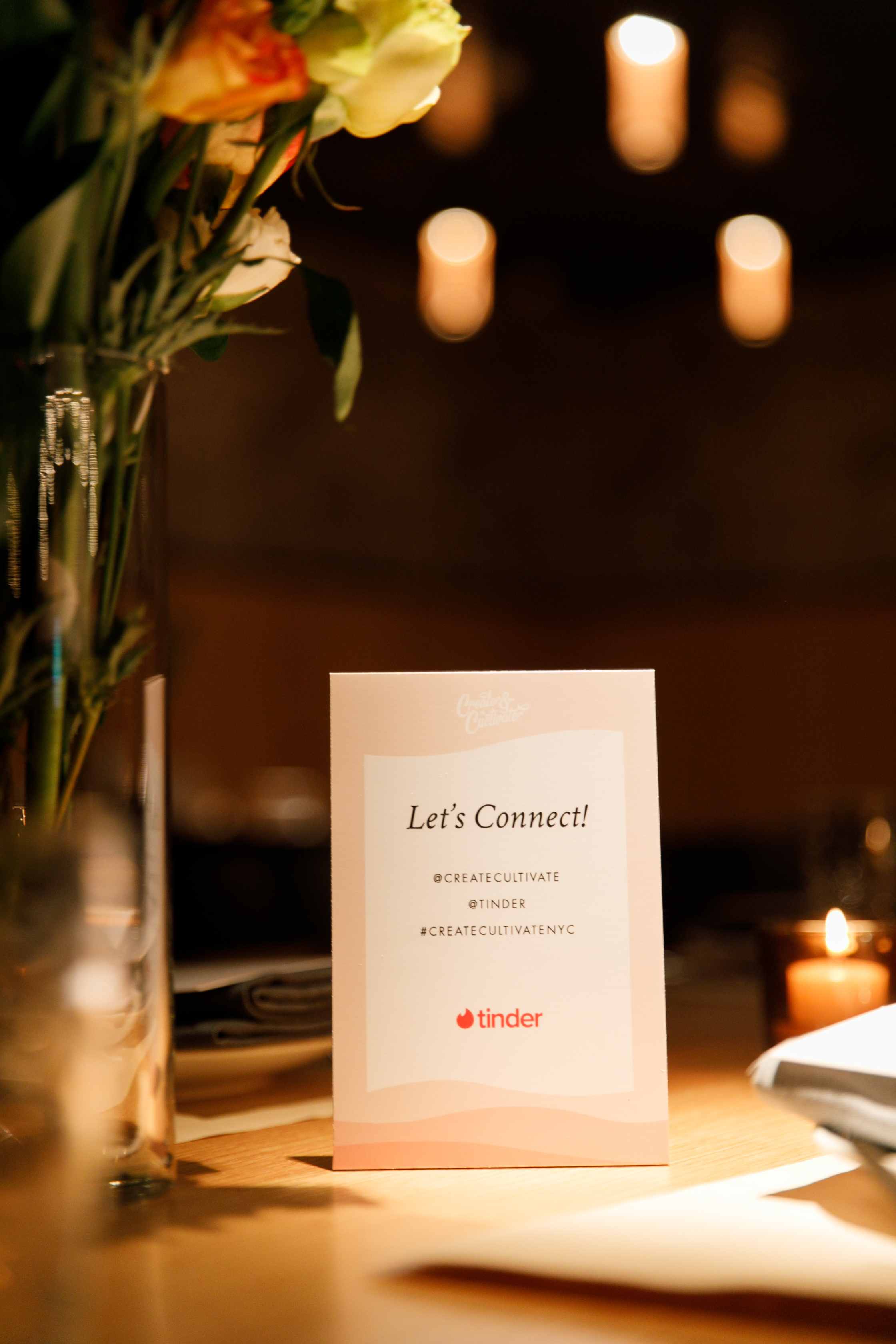
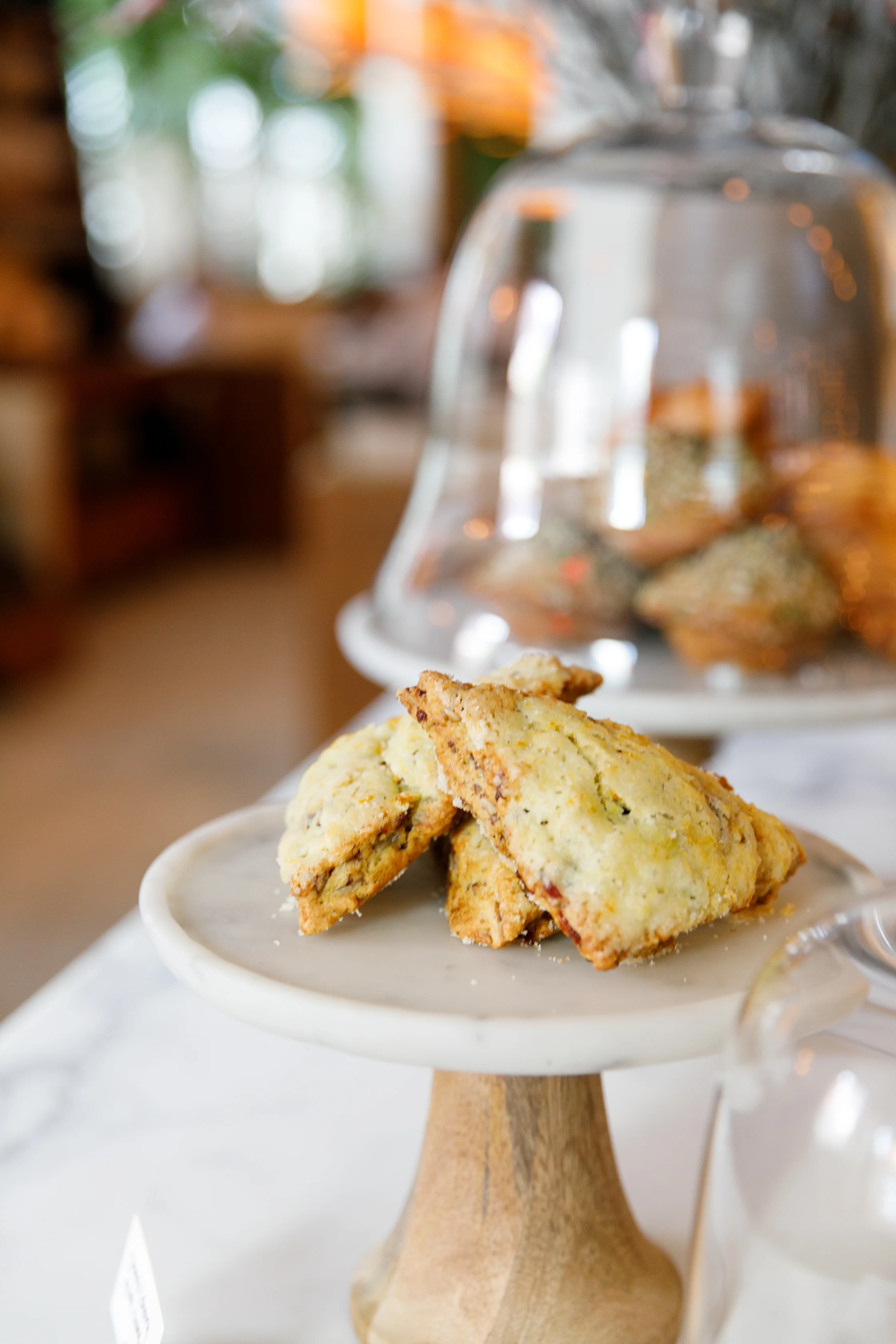
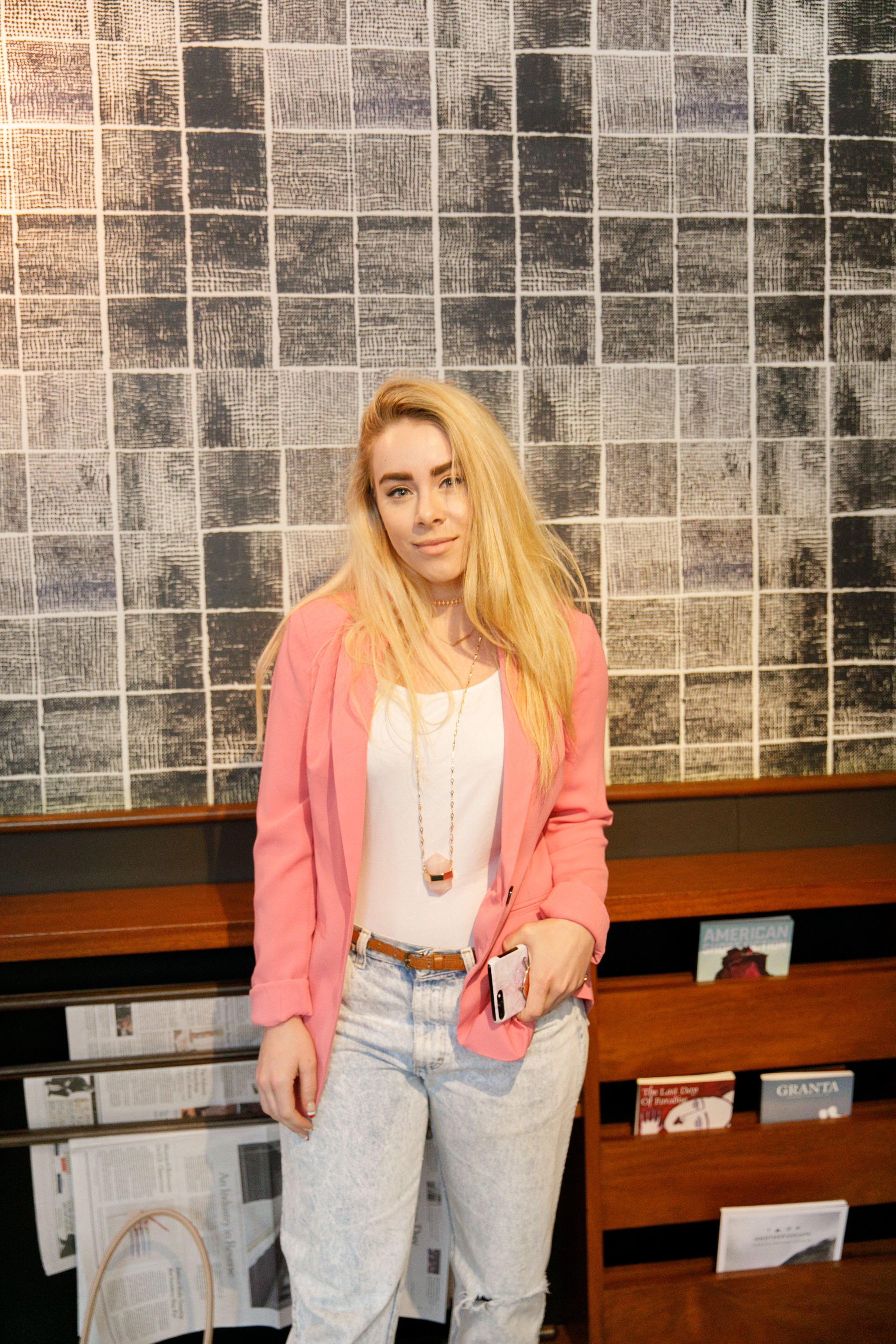
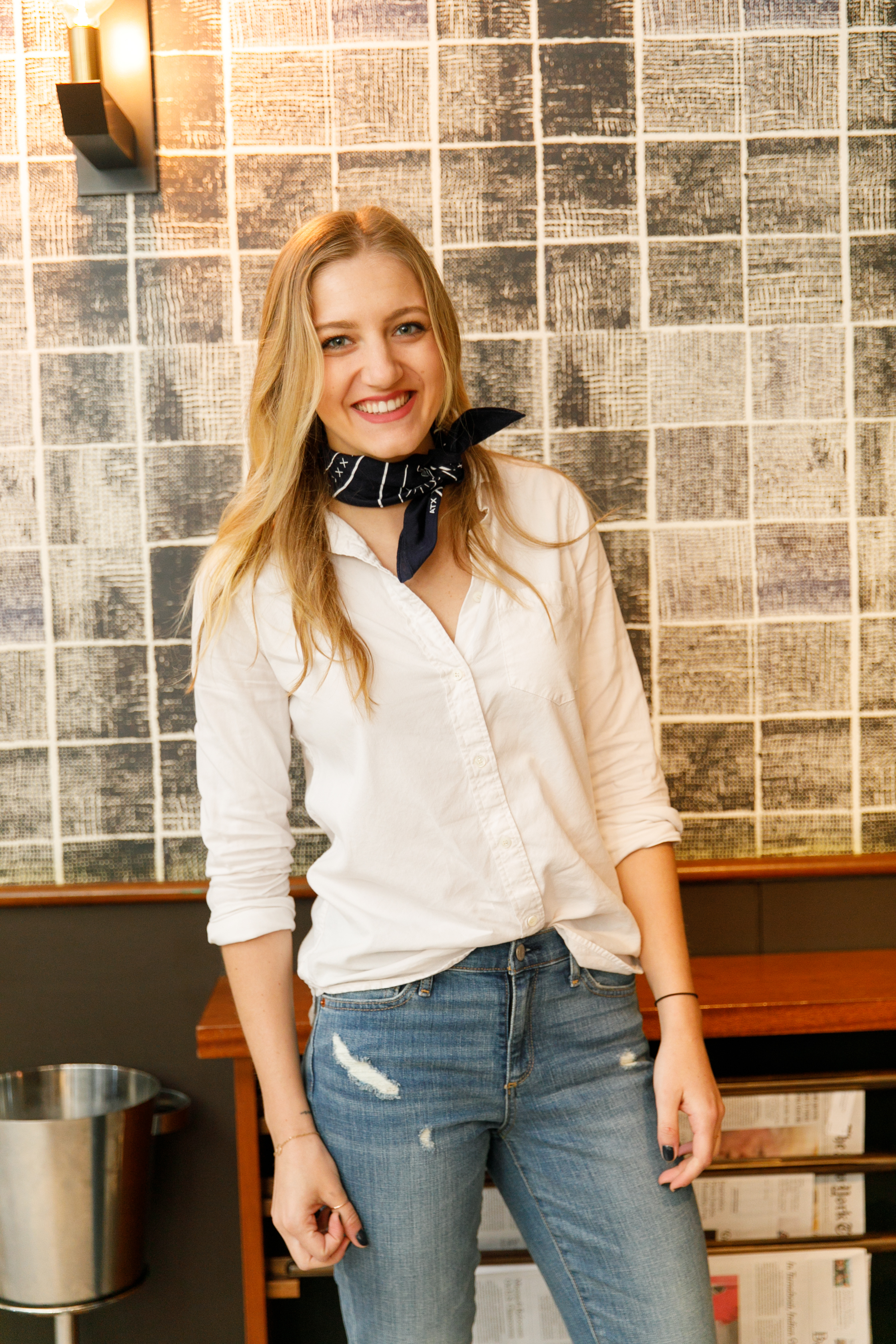
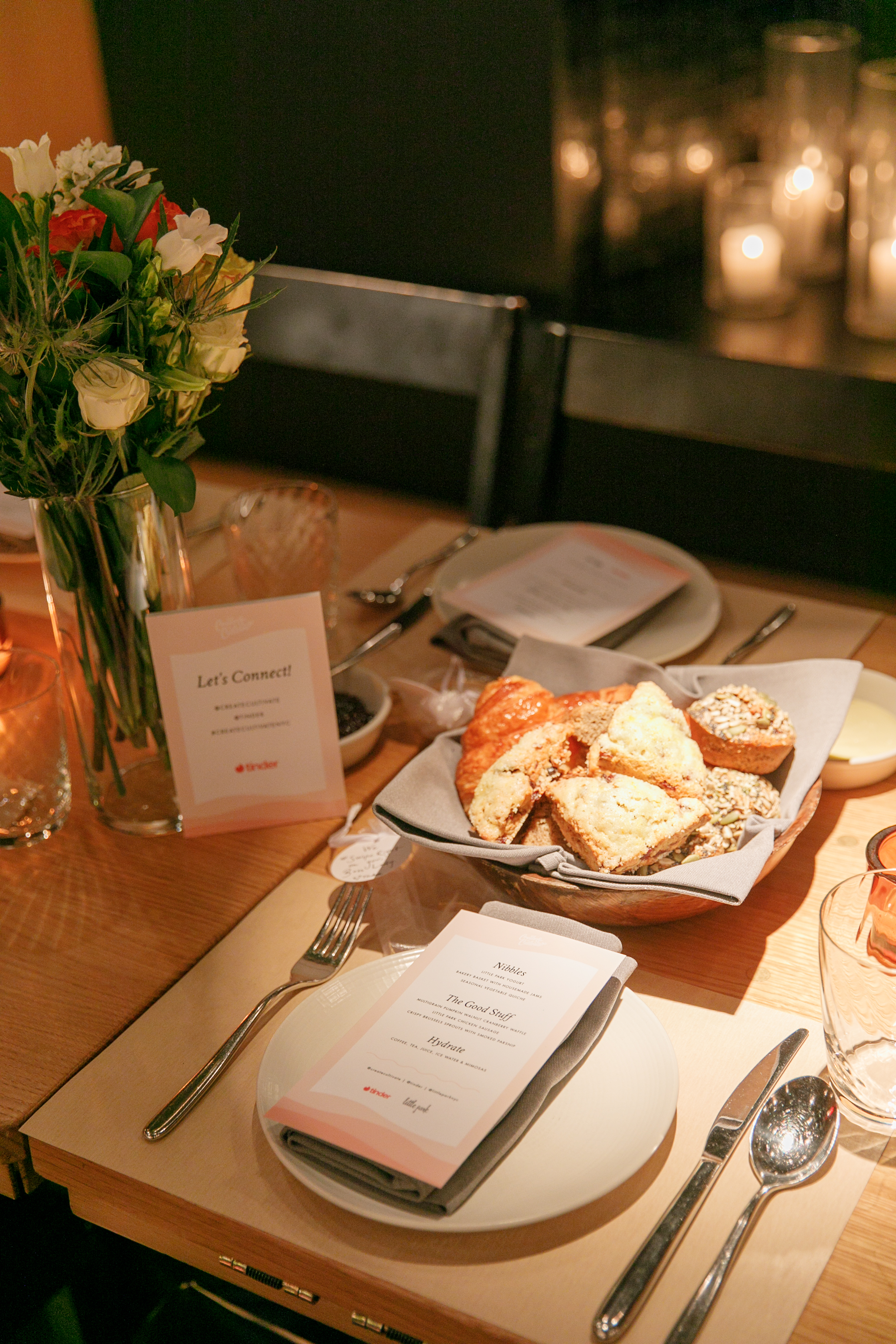
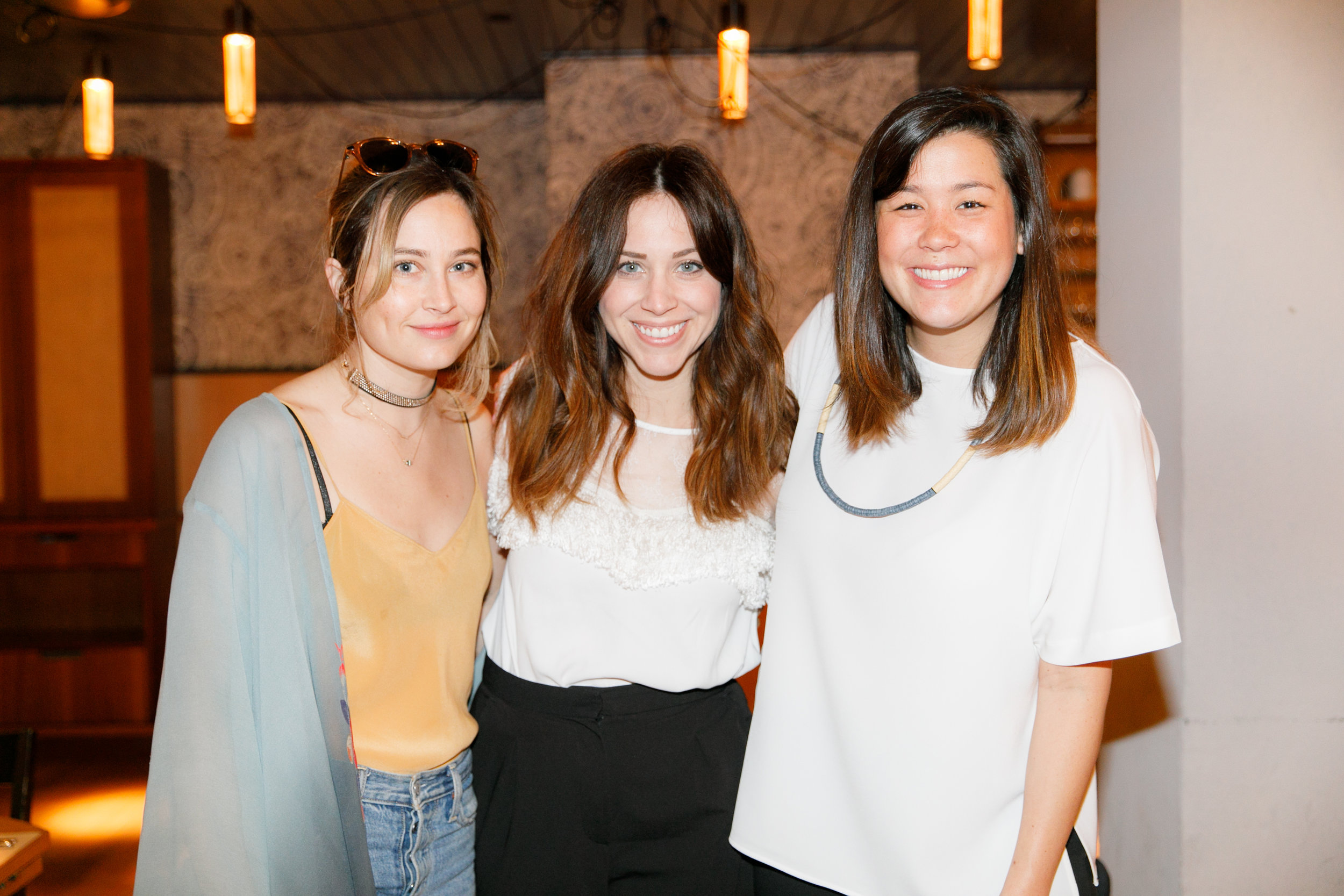
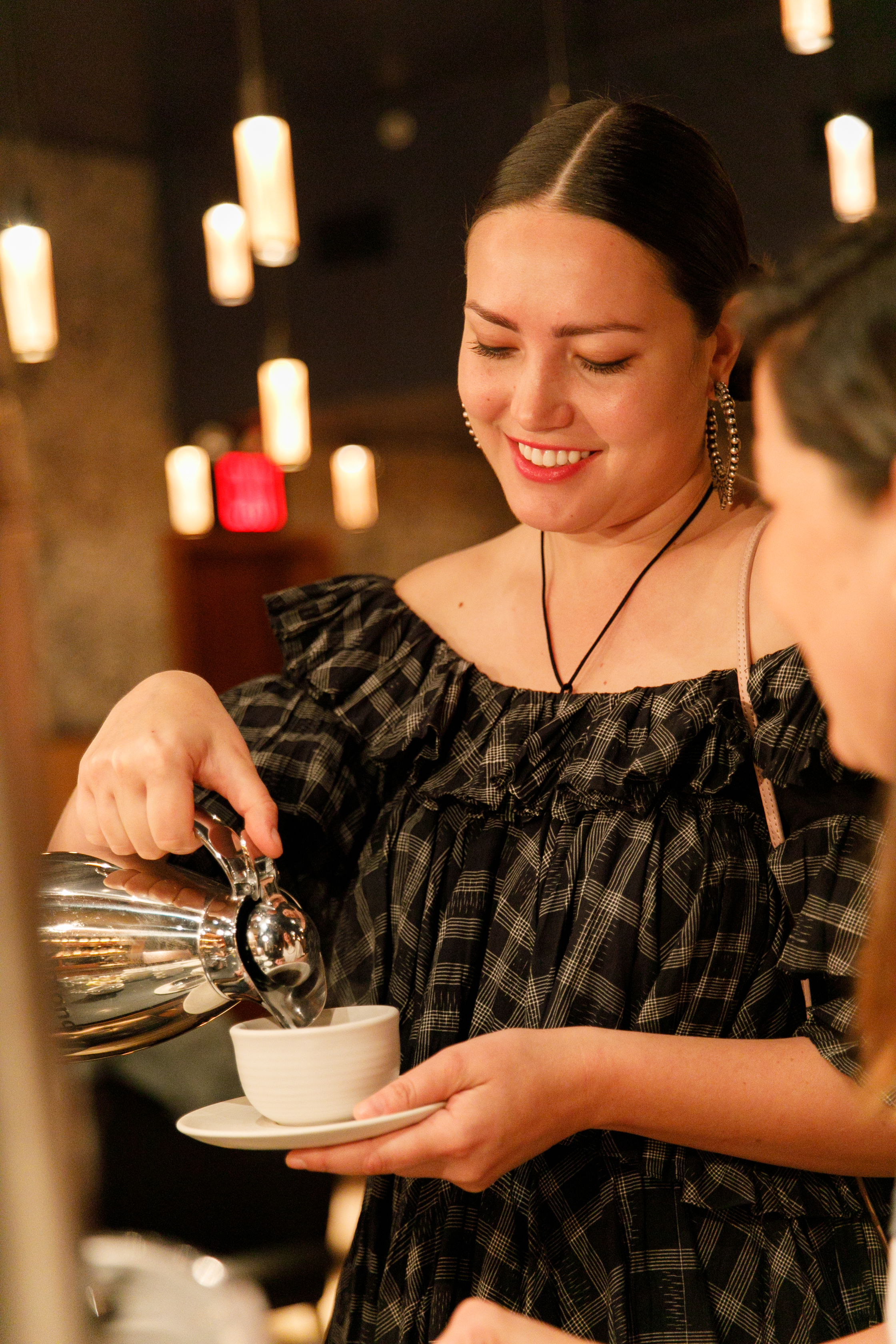
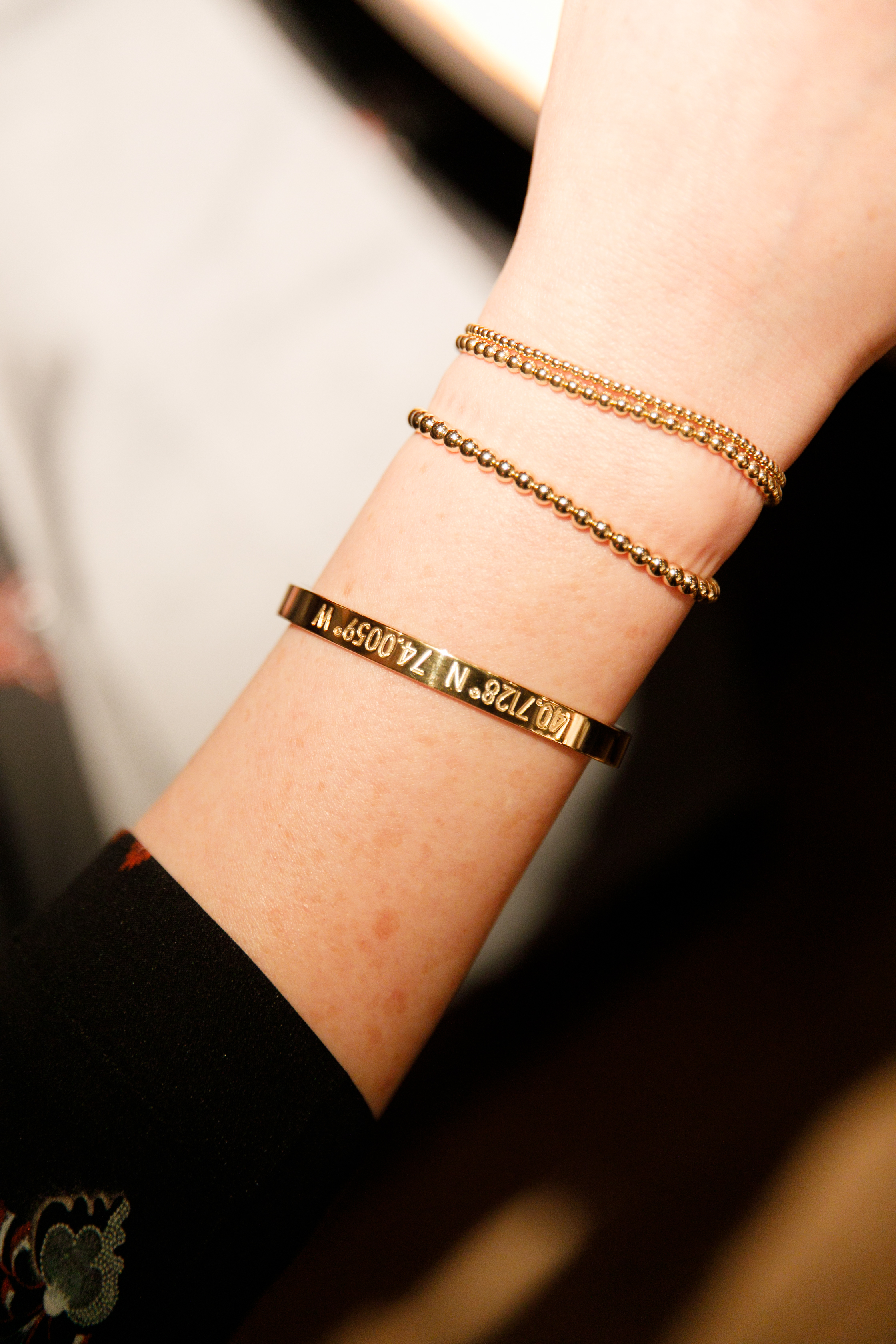
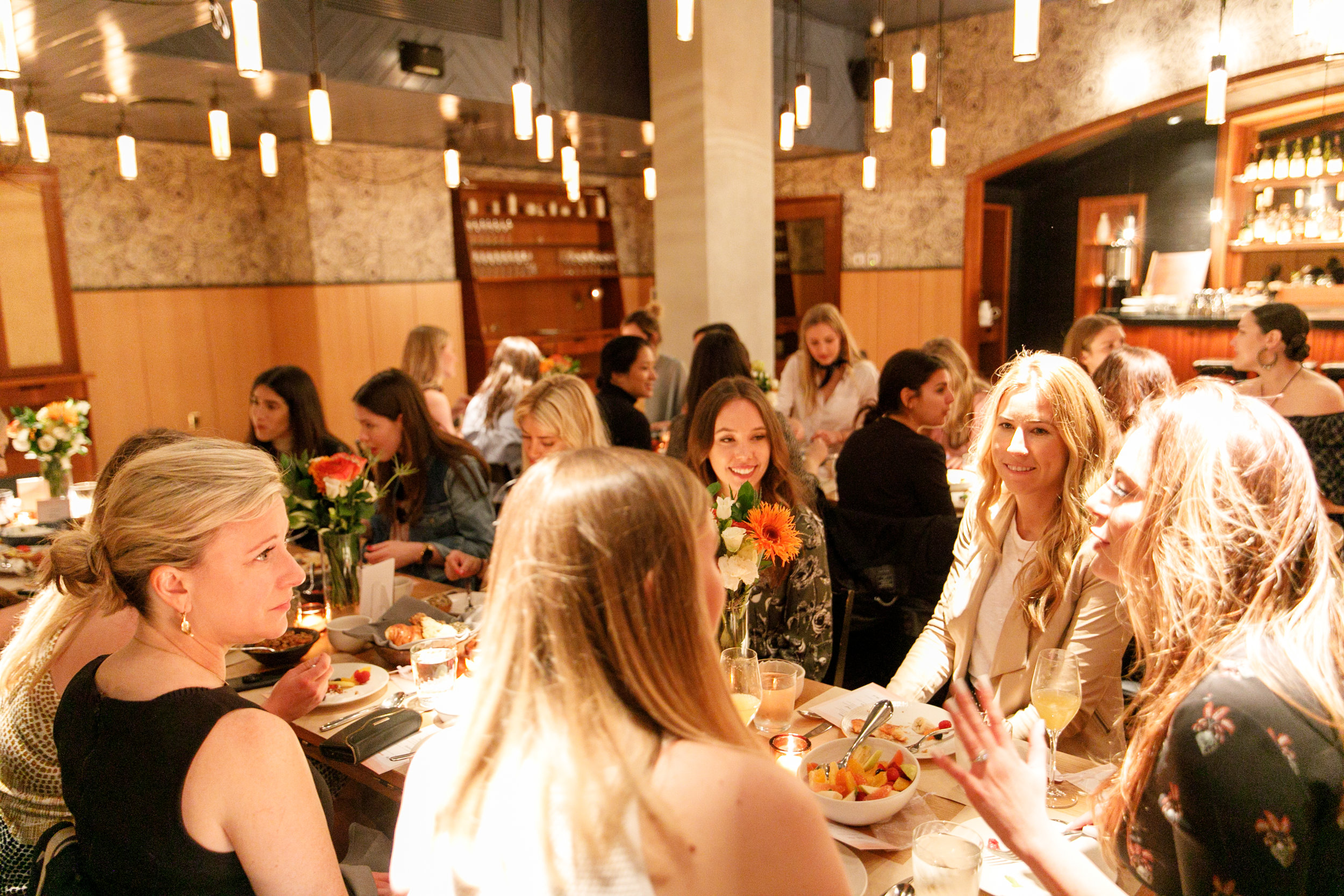
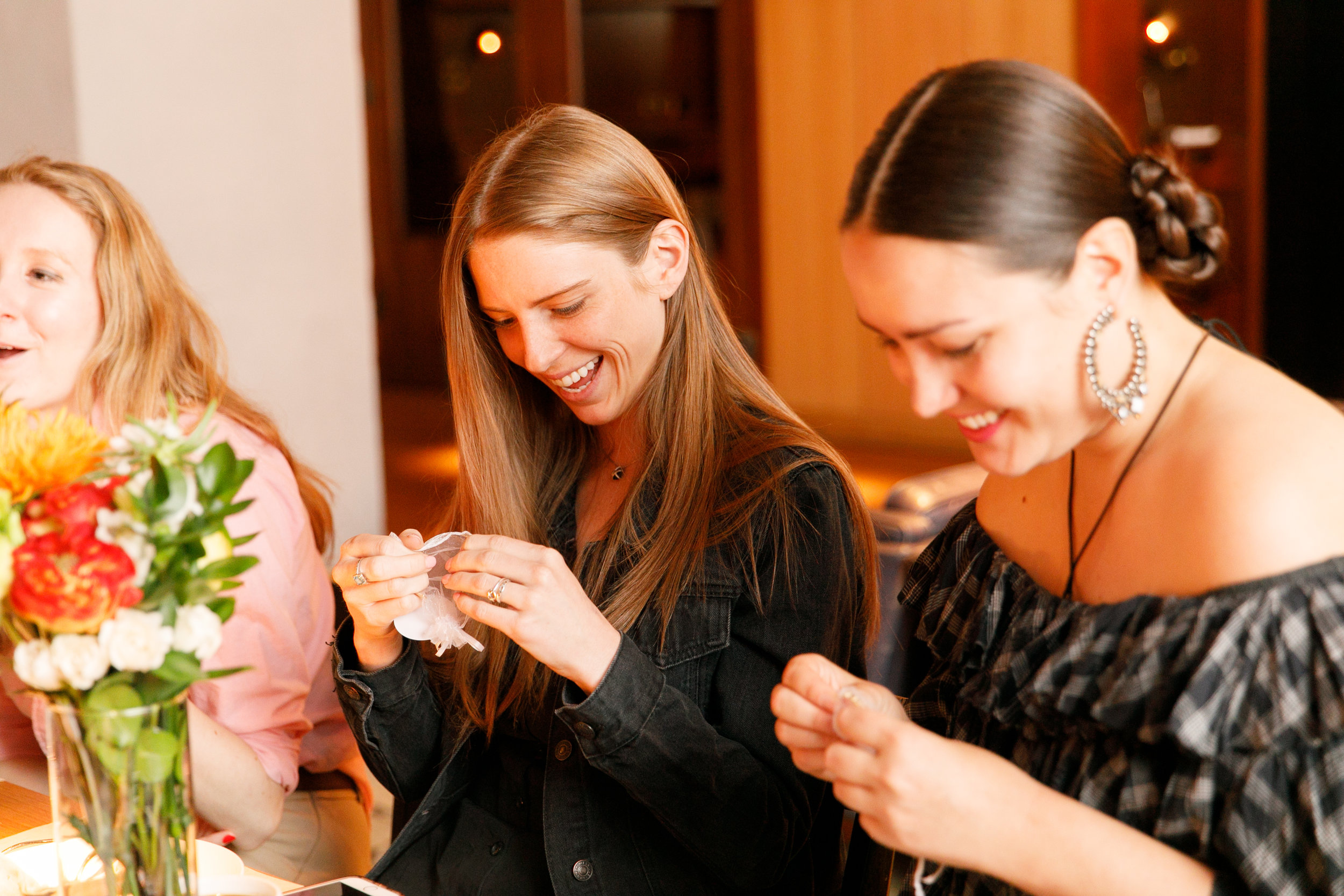

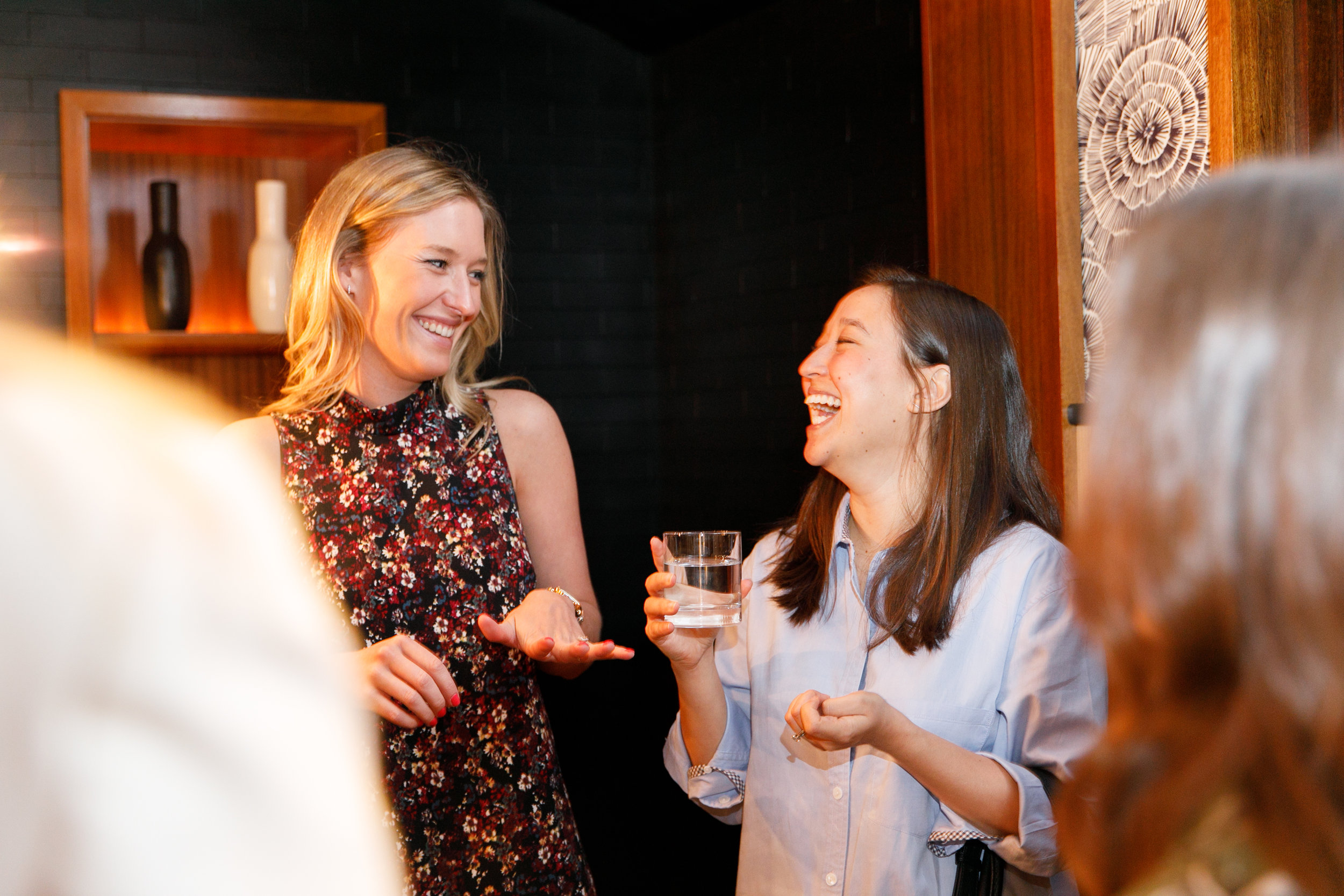
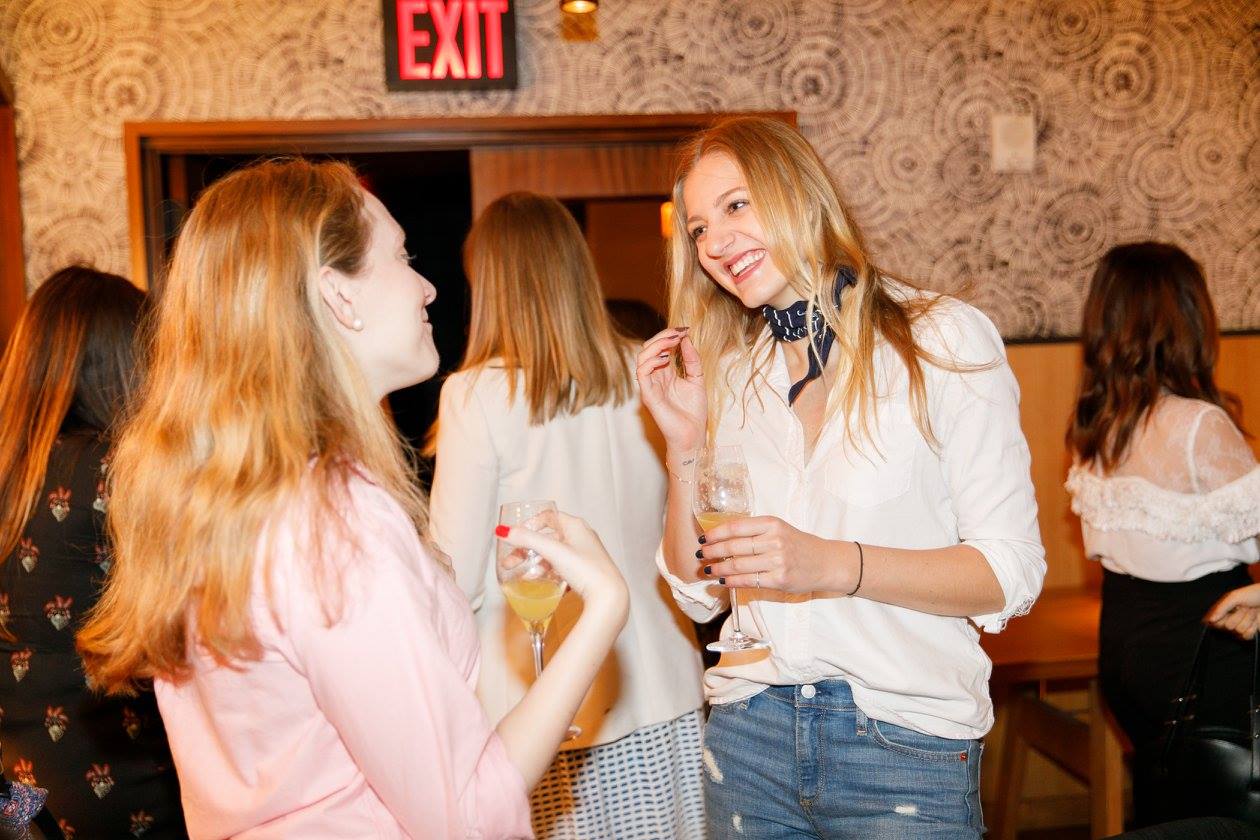
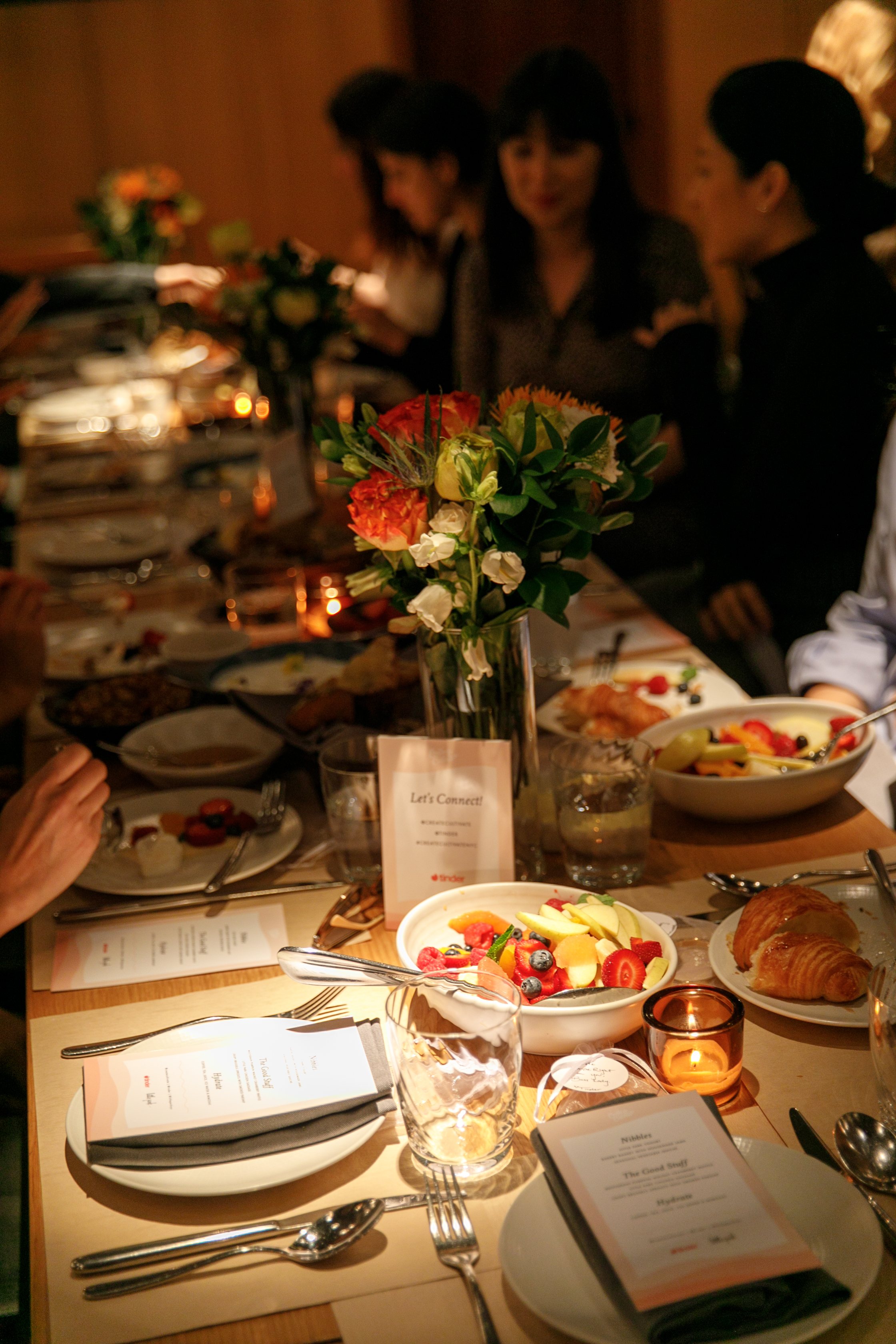
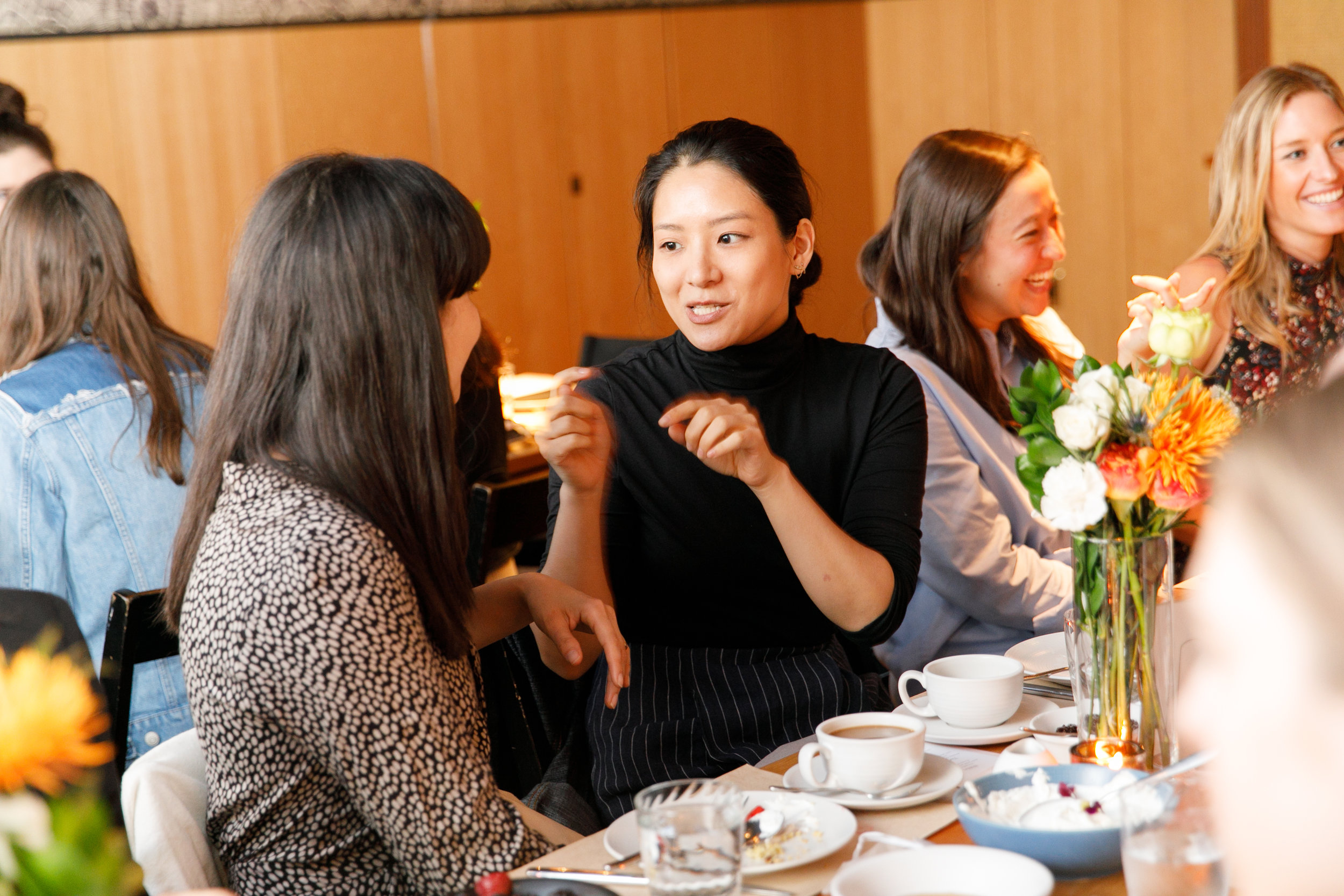
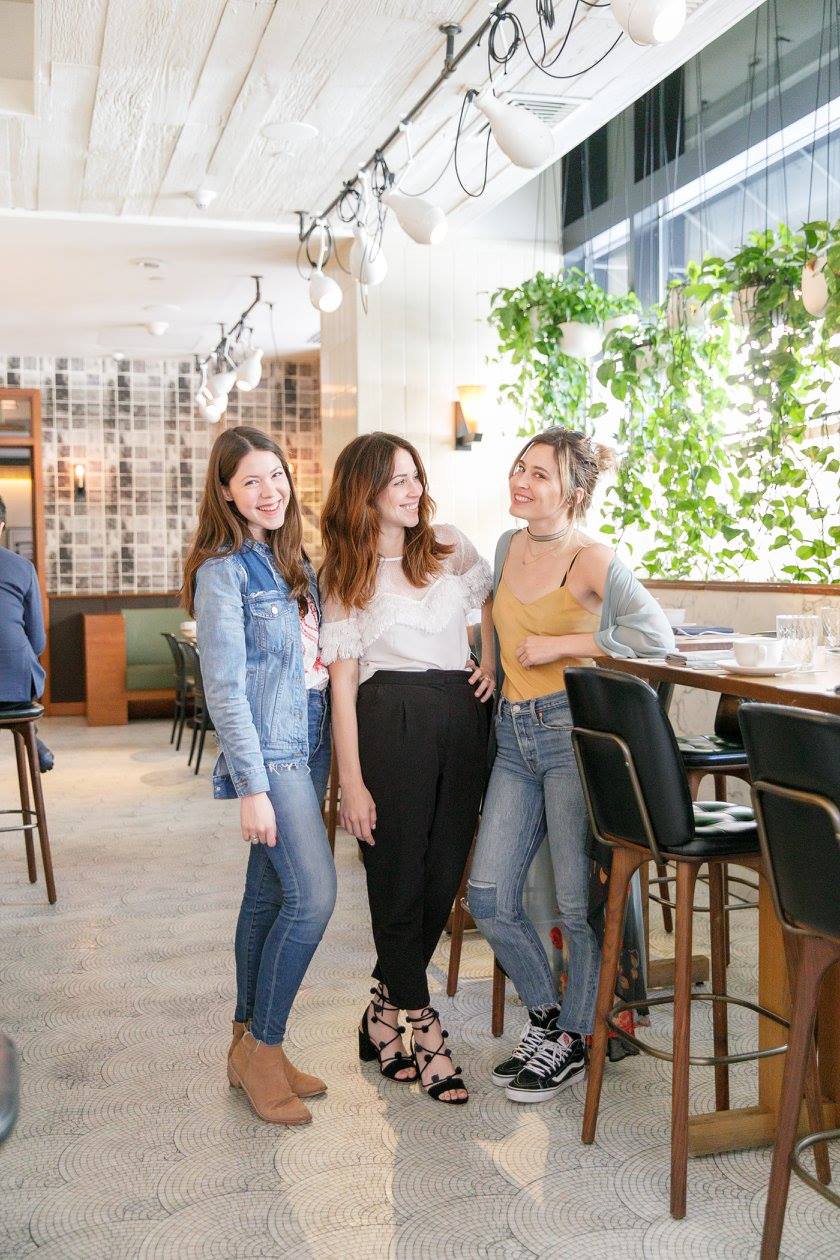
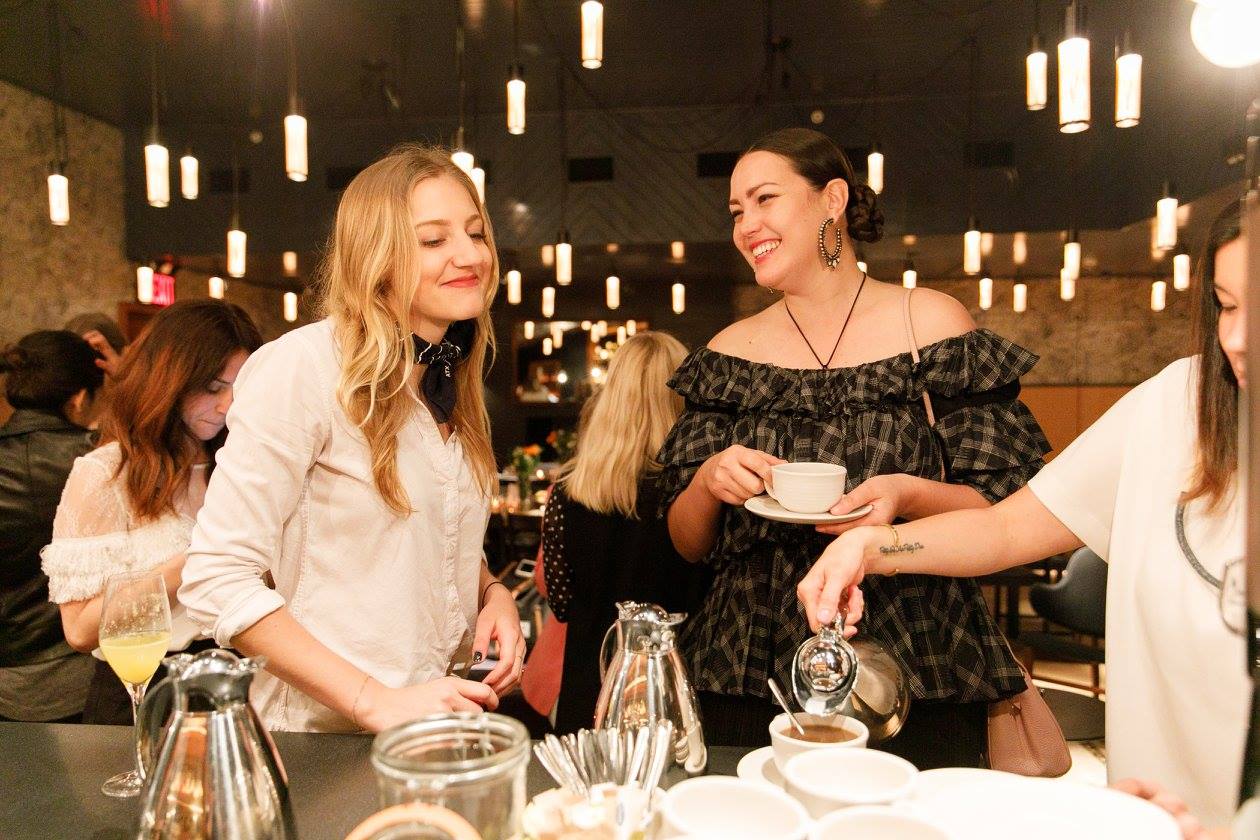
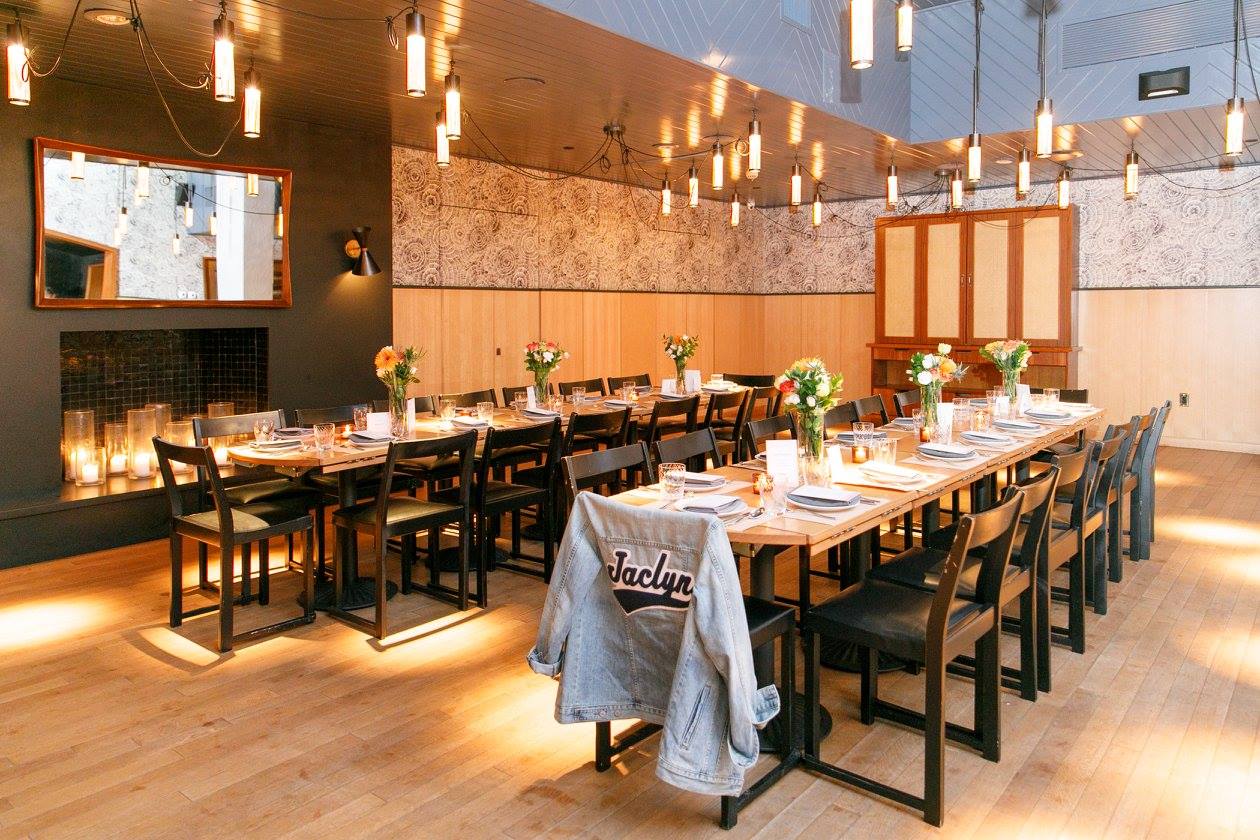
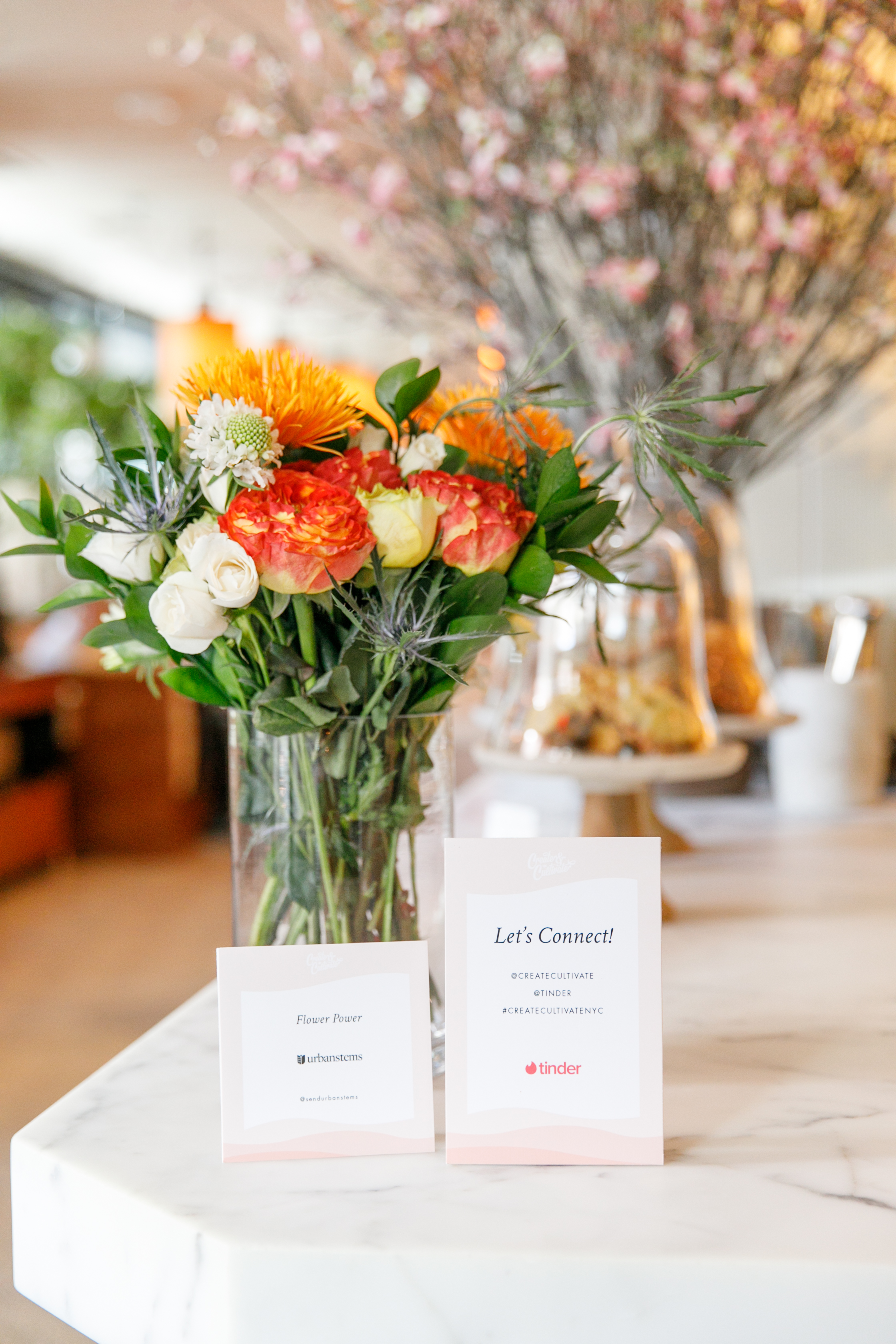
Naomi Hirabayashi, co-founder of Shine, which recently announced it's surpassed half a million users in its 1-year and finished a successful 2.5 million dollar seed round, has seen the firsthand benefits of making wellbeing accessible. (Interpersonal relationships being an integral part of the well-being train.) "I think we're at a tipping point in society," she said to the table, which included Forbes' Emily Drewry and Olivia Rose Wright, founder of Rallier. "The old model of meeting a person ONE way was so isolating. It's now more in your power to figure out what you want."
"The old model of meeting a person ONE way was so isolating. It's now in your power to figure out what you want."
Tweet this.
Speaking about figuring out what you want, Brand Strategist and Maude co-founder, Eva Goicochea shared a bit of advice. "My mom always used to say, 'your job doesn't exist yet.'" Noting that we don’t know what the future of the workplace looks like (so look out!)
Florals from Urban Stems adorned the tables where NYC-based blogger Rach Martino joked about Twitter's emergence as a comedic platform, noting that her boyfriend and his friends screenshot tweets and send them back and forth. "It's like the guys version of Instagram," she laughed.
And NYC-based blogger Noelle Downing dropped this little anecdote about dealing with the ever-changing blog world. "I was in Germany and did an Instagram Live from a hot tub wearing a bathing suit," she said. During the Live Steam there were plenty of commenters throwing shade about how the brunette beauty shouldn't be live streaming in a bikini. Post-stream, Noelle said she received lots of DMs from her followers asking, how she deals with rude comments. She told them, "I don't spend my time on negativity."
We call that something to toast to.
Be sure to click through the above gallery to see all the gorgeous images from the event!
MORE FROM OUR BLOG
Two CEOs Walk Into a Conference Room
What follows is not a joke.
The original version of this article appeared on Darling.
Darling and Create & Cultivate have a long-standing relationship. Some might even call it a BFF-work friendship, seeing as CEO Sarah Dubbeldam of Darling and Jaclyn Johnson CEO of C&C have been friends for over five years.
So when Darling thought it would be fun for the two of them to get together, and have a quick catch-up, we thought, of course! What's better than getting real IRL?
Sarah, with and Darling managing editor Teresa Archer stopped by our West Hollywood office to meet up with Jaclyn and talk a little about why we love women, supporting female-owned companies, and the memories from the early days.
Teresa Archer: At the beginning of where you started, did you envision where you were going?
Jaclyn Johnson: It’s so funny because I always think the best businesses have no business plan. For me, when I started it was purely happy accident. I got laid off of my job before I started No Subject and the only way to go is up from rock bottom.
I always tell people, for me, it wasn’t like “I have a business plan, I have all this outreach.” It completely happened naturally and the way it was supposed to. Similarly, with C&C I was really young. I was 23, I didn’t know a lot about starting a business. I was the creative, I had all these ideas but I didn’t know about taxes and cash flow — all those things as a business owner you need to know about. So I hit a lot of trials and tribulations early on and really C&C manifested from that. I really wanted to start a community where freelancers could get together and ask, “What are you doing?” and “What’s working for you?”
So it really started out more DIY and retreats, but morphed based on my personal experiences and also the ones I heard from the other women. I saw women really need this advice, they really need a community where it’s giving you hard-hitting facts but also looks like something you want to be a part of; not a gross conference room or a legal zoom.
There’s this drawing of “the path to success” and it shows everybody thinks it’s A to B, but in actuality it’s all winding and crazy and it’s true! I mean we [Sarah and I] have known each other forever and I feel like it’s so funny to see your friends skyrocket like this. Six years ago we were like, “We have ideas!” Now, we have companies!
… the only way to go is up from rock bottom.
Sarah Dubbeldam: Yeah, we started with our mission statement which was just this concept of somehow the world being better. Originally I wanted to write a book, but we thought people have already written books about this kind of thing, so what’s a continual conversation? And we landed on a magazine.
From the beginning I wanted it to be a blog and a magazine. There wasn’t social media then, that came later. We always knew we wanted to do retreats and events and video was kind of a small inkling in my mind and I didn’t know how to do it. I was kind of the opposite [to Jaclyn] I was like, “I need a business plan!” I was an art major and I”m a creative, visionary person and I didn’t know how to do that so I partnered up early on with some people who were business majors at my college.
It was always so complicated and terrible. I had 95 versions of the plan on my computer and I was Googling “business plans” and I’d download these PDFs. Super extensive and some even said, “You just need a 1-sheet and charisma…”
JJ: [laughing] A 1-sheet and charisma! Amazing!
SD: Yeah, I was really confused about how to actually start. Same thing as you, though, we just started online content, which led to the print. It was about taking advantage of opportunity. You have to focus and figure out the shortest path to helping the business grow. That’s the hardest thing: not getting sideswiped by ideas that aren’t what you should be focusing on. Now we’re going into video because its just the most natural next step from the magazine. Darling has become a media company so that we can reach out past print and keep the dialogue we’ve started going in a really active way.
You have to focus and figure out the shortest path to helping the business grow.
TA: Awesome. What’s each of your most precious memories of the early days?
JJ: It’s funny; things sometimes happen at such warp speed that we’ll joke and talk about, “Remember that office we had that was so teeny and weird slash under construction the whole year we were there?” There are so many moments where you never think in a million years you’ll end up where you’ll end up.
I remember getting so excited about signing deals that were $2,000 and I was like, “We’re rich!” I always tell people when you’re first getting started to enjoy the beginning because once you are in it, you are IN it and you can’t even get your head up for five seconds to say, “We’re doing a great job, congrats!”
It’s always so funny to look back on, like original logo ideas. It’s horrifying! But it’s kind of the best, because you think “I can’t believe this is what I did.” All the archives show how far you’ve come.
SD: I think that my best memory of those days is shipping magazines out of my living room…
JJ: Oh, amazing!
SD: Yeah. We had like a million padded mailers in our living room, all the way to the ceiling, tables set up and our interns coming to ship them from our home. Our landlord even came and said, “You’re running a business out of your house, I’m gonna kick you out!”
The second memory is when Anthropologie emailed us to buy magazines and we didn’t know what to do. They ordered a magazine and one day we put a shipping label on that said, “Anthropologie Headquarters.” We realised that they had emailed us and were trying to buy magazines on our site but we had no wholesale set up. They were our first big retailer.
All the archives show how far you’ve come.
TA: Ok, last question. What do you each love about the other person’s brand and company?
JJ: Oooh I love this question! I am obsessed with Darling’s aesthetic, I feel like it’s very on point. I feel like there are very few brands you can look at and say, “That’s so Darling.” You’ve done such an amazing job, from the magazines to the dinners to the photo shoots to the website. You’ve built a brand that has such a feeling, an emotion and cinematic quality to it. I feel like that’s very hard to do, it’s so crowded in the market, it’s hard to differentiate yourself, but that’s what you guys have done.
SD: Thank you! Likewise, because I’m such a visual person I remember first going to your website and remember the colors, the bold font. It’s so clear what you do as a vision. From the beginning it was such a clear mission.
And your events are just gorgeous! I mean, even looking at your Instagram you get such a feeling of, “I wish I was there!” Your attention to detail is just perfect, from invites to the promoters you choose, you’ve made C&C be the coolest “next big thing.” It seems the coolest thing to be at for women in business and influence. You’ve really branded yourself as “We’re the best at this.”
So there you have it. We really, really like them and they like us. Stay in contact with Darling and check them out at Darling Magazine.
MORE FROM OUR BLOG
Brooklyn Decker On Why Tech Is More Supportive Than Hollywood
Sure it's 94% male, but who run the world?
Photo credit: Smith House Photography
When Brooklyn Decker and Whitney Casey, CEO and founder of Finery, the new online platform that's been described by users as "the Clueless closet on steroids," took the C&C stage at SXSW last Sunday, they broke down the realities of being women in tech.
Alas, truth bombs are kind of Decker's MO. Of her friend and the company's Chief Design Officer, Casey told the Austin audience, "There is always one girlfriend in everyone’s life who will tell them the truth and that is Brooklyn Decker."
“It’s brutal,” chimed in the actor. “But it’s the truth.”
A former anchor who has won two Emmys and is a published author, Casey said she's had plenty of bad ideas before Finery. And when it came to bringing the idea to Decker, she came armed with a Powerpoint presentation. “Yes," she said, "for my own friend, because I knew she would want to know.” Decker did. (It worked.)
What unfolded, power point by power point, was a service that might revolutionize the way women shop and dress. With patent pending technology that harvests data that already exists online, Finery skips over the manual labor part of an creating an online closet. At its simplest Finery culls through your email (and thereby every purchase you've ever made) and loads it into a virtual closet.
“There’s all sorts of software to manage your finances, your travel, your music, but we found the millennial women will spend more than 250-300,000 dollars on clothes in their lifetime," shared Casey. "So why isn’t there something to manage your wardrobe that’s not analog? Some sort of tech that could find anything you’ve ever purchased and put into a wardrobe?” Therein is the meat of Finery, the world's first wardrobe operating system, and the reason Brooklyn came onboard.
But making a career shift is difficult for anyone-- let alone someone doing it under the public microscope.
"Modeling to acting is the most cliché transition one can make," Decker shared about her first career switch. "The biggest challenge is that you’re making big mistakes on a pretty big stage. You don’t have the luxury of making mistakes in private or on a small scale." But in a way it prepared her for this next role. "It would be silly or ignorant of me to say that it hasn’t opened a ton of doors, but people are instantly skeptical and people instantly doubt you. I certainly don’t come from a tech background. You have to work that much harder and find women who are willing to help you along the way and teach you-- teach you how to pitch to a VC, for instance, because how does one learn how to do that?" the Austin-based actor asked.
Photo credit: Smith House Photography
It's something they did, first going the traditional $ route— approaching VCs.
"It did not go well," said Casey. "One asked us to set him up on a date. So we decided to go with angel investors-- they are all women." Women like Miroslava Duma and Decker herself who is an investor in the company. “Also,” added the author, “because they wanted 30 percent of the company.”
"Luckily with women in technology— it’s an incredibly supportive environment," said Decker. "Without those women I wouldn’t have been able to make the transition.” Beta users include Man Repeller Leandra Medine and Lauren Santo Domingo.
Casey told the crowd that figuring out your bottom line when you’re first starting is all about looking into the future. “You have think about the company when it is wildly successfully,” shared the CEO. “Look at what 20 percent of that success means. You also need to think about your employees. As a startup you’re not going to be able to hire the people that you want without giving them equity. And as a startup you want everybody there to have equity because when things do go wrong you can look at them at say, ’This is your company too.' That’s our mantra. Everybody who enters is part of Finery. And the more you give to a VC the less you have to recruit really great talent. The more you keep giving away, the less your employees are gonna get. You always have to be thinking about your employees first.”
"You always have to be thinking about your employees first.”
Tweet this.
"It was disheartening to realize the kind of things I needed to do to get into these VCs,” shared Casey. “Calling a friend of a friend of a friend… what if I didn’t have those friends? It should be a meritocracy. Money should be available for every good idea out there. I found that was not the case.”
Even the connections Brooklyn and Whitney did have, didn't mean they'd it was a shoo-in. Sometimes they would't even open the Finery deck.
“I have this crazy thing that everyone should have called MixMax. I know when you open my email and I know when you’ve opened up a link,” said Casey. This service gave the pair a competitive edge when walking into pitch meetings-- they knew if they had to start at the beginning or if they could launch into why Finery is different and why it will be successful. Their other bit of advice? Decker told the C&C crowd, “Be incredibly well-researched on the market that you’re entering. Understand it so well and it will help you prepare for any meeting.”
“You have to sit back listen. And then do your own spiel. Know every single one of your competitors so you know your value add,” said Casey. “Your value prop[ostion] is the most important.”
Photo credit: Smith House Photography
Despite the uphill VC climb, neither women were deterred. In fact, Decker told the crowd that she's been invigorated by the community of women she's encountered.
“Coming from the Hollywood side of things I have never seen a more supportive bunch of women than I have seen in tech. They really do come together. It’s difficult as a young female, but you can do it.”
"I have never seen a more supportive bunch of women than I have seen in tech."
Tweet this.
Decker brought up tech investor Jesse Draper of Halogen Ventures, an early stage venture capital fund focused on female founded consumer technologies. “She has no skin in our game, but as a female in technology she wanted to introduce us to other people. That’s what women are doing. When she [Draper] invests in a company, she tells them once you’re successful you must invest in other female-run, female-founded companies. That’s a really strong choice. And it’s a place we want to get with our company.”
“Look we can’t all be founders, we can’t all have money to invest," Casey elaborated. "But we can all buy from women, use products that women make, and then we will all be successful.” She also told the crowd: "If I were a young woman right now I would learn how to code." Simple, but truthful advice. 94% of tech startups are male. It's up to us to change it.
“Women are successful because they support each other,” added Decker, who also gave attendees some pertinent info. Not everyone has access to capital or app developers, but the actress explained, “There are now apps to help you build apps. They provide a standard map. It won’t be super innovative but it will show proof of concept. Also, in all of these big cities there are development bootcamps now. The whole point is to give people jobs. If you have a startup idea and you’re far enough along, I highly recommend tapping into that resource.”
As for who Finery wants to tap? Casey wants the average woman who wears 10% of what's in her closet. Decker got a little more specific. “I don’t want to be a total cliché, but Beyonce,” the Chief Design Officer said about her dream user. “She has so many events, has her kid, two more on the way. She’s our user, she’s our girl.”
MORE FROM OUR BLOG
Uncommon Opinion: I Don’t Want to Be the Boss
Head honch-no thank you.
Personally, I blame Bruce Springsteen because no one blames him for anything ever, but that doesn’t take away from the fact that we have romanticized the idea of the Boss.
The Boss is in charge. The Boss has flexibility. The Boss takes fancy lunch meetings. The Boss also carries the weight of the company, everyone’s salaries, deals with HR, paychecks, keeps the company afloat, and more.
Head honch-no thank you.
Do you think Grace Coddington wanted to be Anna Wintour? Maybe somewhere along the 25 years she worked for Vogue she thought, ‘I’d like to be Editor-in-Chief,’ shortly thereafter realizing, “Oh no, I’d much rather smile!”
That doesn’t mean she wasn’t aspirational and kick-ass at her job. "Do I dream very much? Do I dream predominantly about fashion?” she asked herself in the 2009 documentary The September Issue. “No,” she answered, “I dream much more about cats.”
I can’t help but feel the same. I have dreams and hopes for myself, but running a company or making Forbes 30 Under 30 aren’t them. Jokes on them! I'm over 30. (Cats have nothing to do with my dreams either.) But why does that feel so uncomfortable to say out loud? As if it makes me less powerful, less feminist, less of the woman I should aspire to be. We hold professional advancement in higher regard than performing well in our position.
Running the show means that if shit hits the fan, it’s your fan and you’re cleaning it. Yes, it also means there is the potential for a high payout. The accolades are more high profile. The dinner party invites might be better and the dream wardrobe more of a reality, but the pretty version of jet-set-dinner-party-squad-goals boss that we see projected through the Valencia filter on IG isn’t real life. Everyone knows that, and yet we are still conditioned to think that "boss" means success.
Well, CE-no thank you. Here are 5 reasons why.
IT’S RESTRICTIVE.
TO me, the idea of being the boss seems like being the Queen or King; neither are roles I’ve ever wanted to play. There are rules, restrictions, public personas— things you can and cannot say, etiquette and financial stressors. Sure, as Queen you don’t need a license to drive (or in the case of Queen Elizabeth to ill) but you are in charge of all your subjects. Or in the case of being the boss, your employees. (Fun fact: Queen E owns all of the swans in the Thames River.)
When you are the boss there are no job requirements. Your job is everything. When you own the company you don’t get a raise because you performed well; most often that money is pumped back into the company to show potential investors that you believe in your idea.
BEING THE BOSS OFTEN MEANS $$. BUT MONEY CAN’T BUY HAPPINESS.
Let’s hit refresh on that always cited Princeton University study published in 2010 that found that happiness rises as income rises up until you hit $75,000 a year. At that dollar point, happiness ceases to improve as you earn more.
The study actually found the opposite to be true. Those who are happiest are proven to be more productive which, leads to better pay.
Not all founders or bosses are unhappy, but the stakes are higher, so is the pressure, and as we’ve heard from Create & Cultivate panelists, “Founder depression is real.”
YOU HAVE LESS JOB MOBILITY.
When you are unhappy or unfulfilled by your job or career path, you can change it. (This should not be taken as advice to monkey around from one career branch to another.) But with less responsibly comes more mobility. When you are in charge, or own your own company, that company has custody over you. You can’t simply pick up and leave— there are people who rely on you after all. No pressure.
Moreover, shuttering your own company and going to work for someone else is viewed as a set-back. Even if it's not true, people view it as a failure. Having to walk away from a company you created is not a position I want to be in.
Being crucified on the cover of Variety as a failure? Seems unpleasant as well. Multi-million dollar payout and all (see point 2).
IF YOU DO WHAT YOU LOVE...
You’ll never work a day in your life. So the saying goes. This is one of those really tired, unrealistic job-related aphorisms that f’s with people’s heads. Even if you love what you do, you will not like it all the time. In fact, you might hate it some days. TOTALLY OK TOO.
As employees we tend to give ourselves more leniency when it comes to the days we don’t like our jobs. When you own the company, or when you’re the boss, there is more pressure to believe in and love the work.
It’s simply not possible to love it all the time. As a founder you have to be obsessed with your company to make it work, but obsessions come in waves. Some days are easier to ride out than others.
When you're the boss it’s very stressful and scary on the days when you’re simply not feeling it.
THERE IS NOTHING WRONG WITH NOT BEING THE BOSS.
So you don’t want to be the boss? GREAT! Let's high-five each other. There are currently almost 10 million boss hashtags on IG.
You can be a high-performer without being in the highest position. Success doesn’t mean car or corner office or cabana. You can create an amazing career without striking out on your own. Being someone's right hand doesn't mean you've chopped yours off.
[If you do want to be the boss: read this.]
Success means going home and having the ability to dream about cats. It means that you are satisfied with the decisions you’ve made for your career. For many people that means acknowledging that you don’t want to own a company or be in charge.
Even it if means you don’t own all the swans, you’ve still got the wings to fly.
Arianna Schioldager is the Editorial Director of Create & Cultivate, and therefore, not the boss. Find her on Instagram: @ariannawrotethis and on this site she never updates www.ariannawrotethis.com
More from our blog:
Beauty: Melody McCloskey, Style Seat
Took her seat the table.
This article is part of our Create & Cultivate 100 List created in collaboration with Dove, you can view the full Beauty List Here.
Took her seat at the table.
Melody McCloskey, co-founder of leading beauty booking destination StyleSeat, is proof that sometimes outsiders do it better. As CEO and co-founder of the booming beauty giant — in 16,000 cities since 2011, and facilitating more than $3 billion in appointments — McCloskey is empowering industry professionals to take ownership of their success, not unlike the route she took to get here.
McCloskey’s journey to startup queen was anything but typical. In college, she majored in International Relations and French. She got her first taste of tech working as a PR Manager for an early stage tech company, and later at Current TV, a small network started by Al Gore. It wasn’t long before she worked up the confidence to quit and start her own business.
“In the beginning, my co-founder and I hit the pavement in a real way. We spent our early years out with the beauty professionals, in their salons, in their homes, listening to what they needed to better run and grow their business,” she says. “Because we were so close to our customers since day one, I gained real confidence that what we were building was important and needed.” Raising capital for a female-fueled beauty company in a sea of white male VCs, on the other hand, didn’t come so easily. “Fundraising is perhaps one of the biggest challenges I faced. Asking investors for money is not an enjoyable experience for me, and it’s not why you start a company,” notes McCloskey. But there’s no denying money helps. “If you want to be a certain size faster, it can be necessary. Because so many tech VCs are male and white, they didn’t understand the beauty industry or our customer base, which is overwhelmingly female and diverse. They wanted to fund companies they deeply understood, and we did not fit that description.”
"Asking investors for money is not why you start a company."
Tweet this.
Having arrived in tech via the road less traveled, there were no shortage of moments when McCloskey doubted her own capability and whether or not she deserved to be here. “I almost didn’t start my company because I was afraid that I didn’t have the right background, or that I wasn’t smart enough.” For all the women struggling with similar self-doubt, the beauty impresario warns against counting yourself out. “If you love something, and you’re tenacious and don’t put up with bs, you can do whatever you want to do.” She hopes that StyleSeat inspires more women to discover their unstoppability, whether it’s fast-tracking that career change or going full force on that side hustle. “The biggest thing that limits you is yourself.”
Today, StyleSeat has a network of more than 300,000 beauty professionals servicing more than 10 million users, with McCloskey closing out countless women-to-watch lists. For the first-time founder, it’s been a rollercoaster of fear, emotion, and trial and error, one that she’s gotten much more comfortable riding with experience and age. “The first few years of starting a business you’re doing several things a day that scare you without any experience doing them. Hiring a lawyer, building a profit loss statement, hiring incredible talent, closing a business development deal.” The fear never goes away, but you learn to cope with it. “I used to feel close to paralyzed every day, and then I got used to doing scary stuff all the time and now, even though the things I’m doing are so much bigger scale, I’m less scared because I know, whatever it is, I’ll figure it out.”
"If you’re tenacious and don’t put up with bs, you can do whatever you want to do.”
Tweet this.
Right now, McCloskey is focused on making StyleSeat a thriving, high return business, but she’d love to try her hand at angel investing — “I want to be everything I thought was missing when I was coming up. It would be so much fun to hang out with entrepreneurs, who are super weird and crazy, and help them pursue their dreams.”

